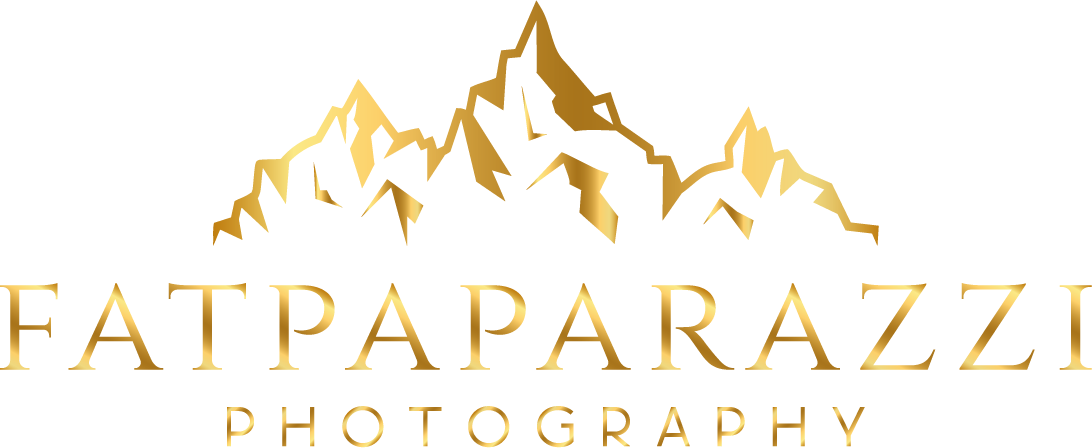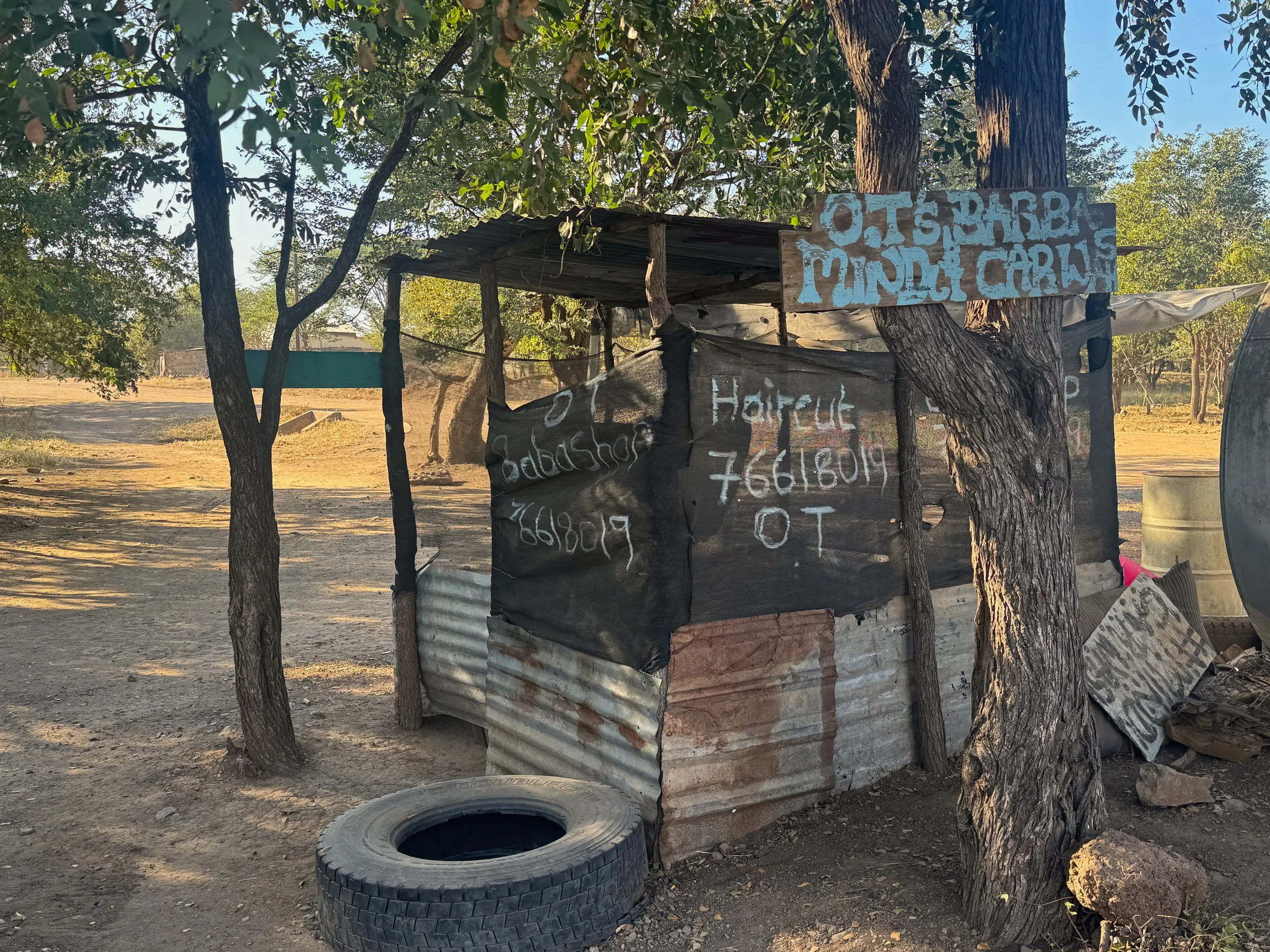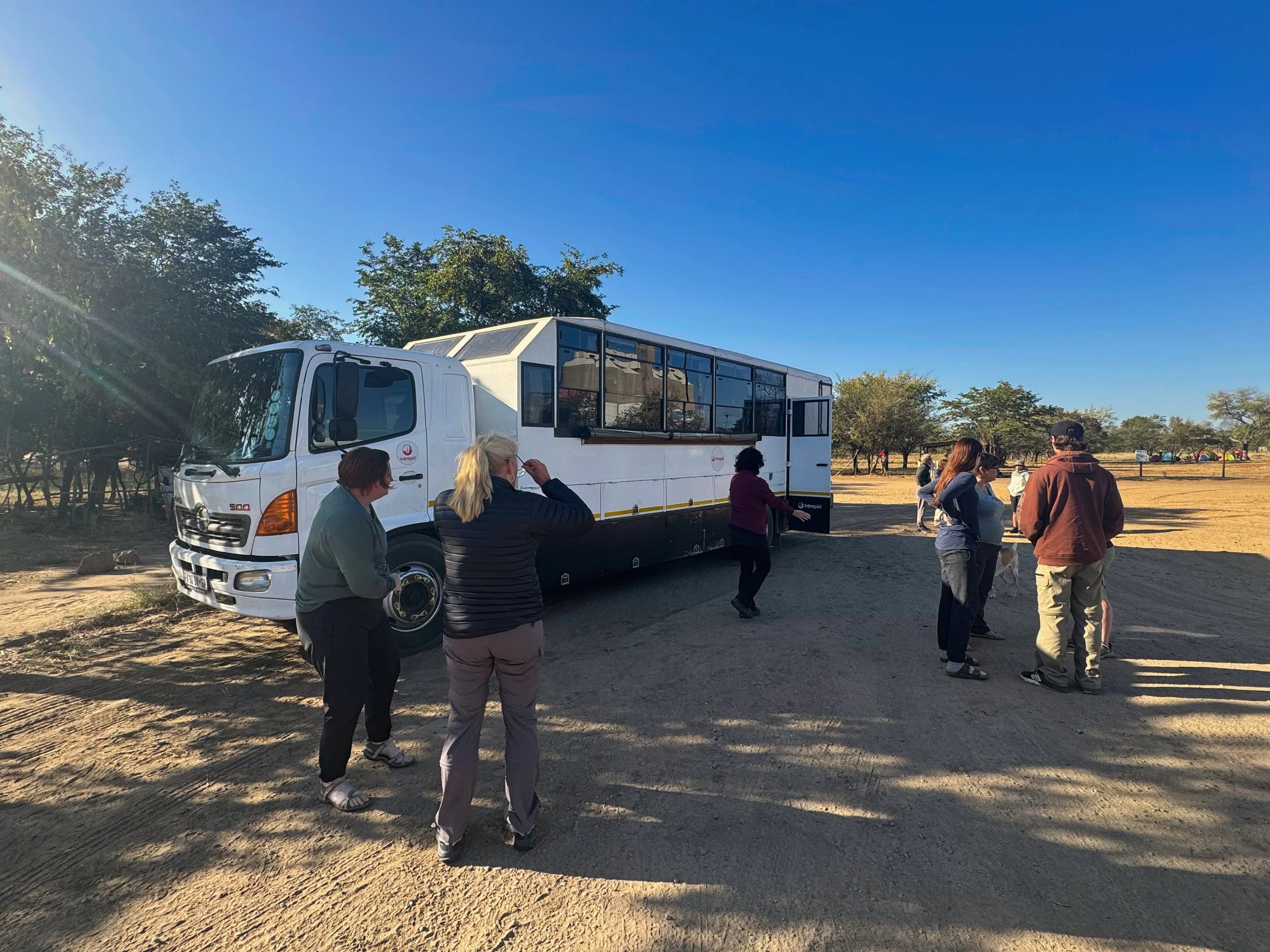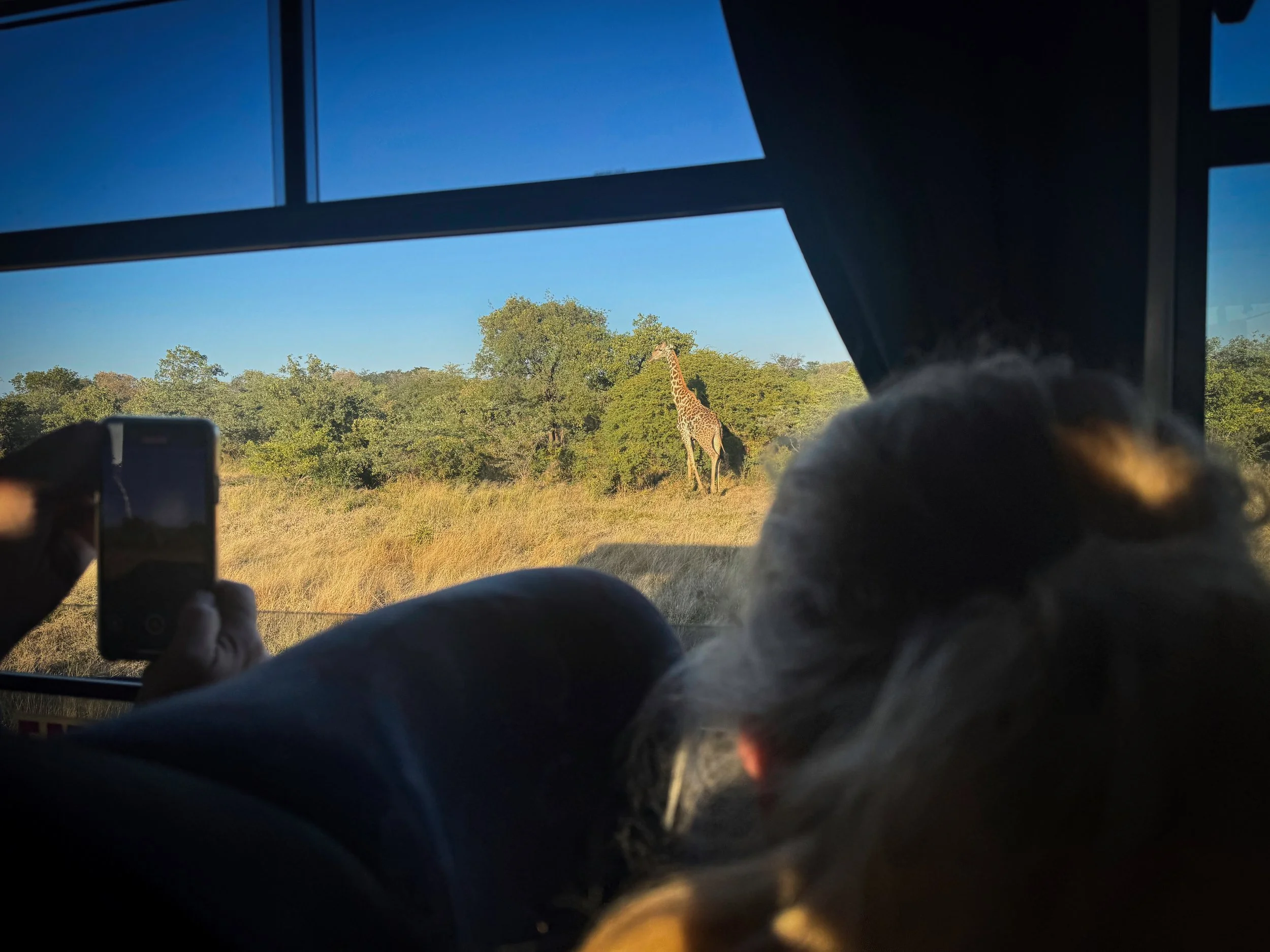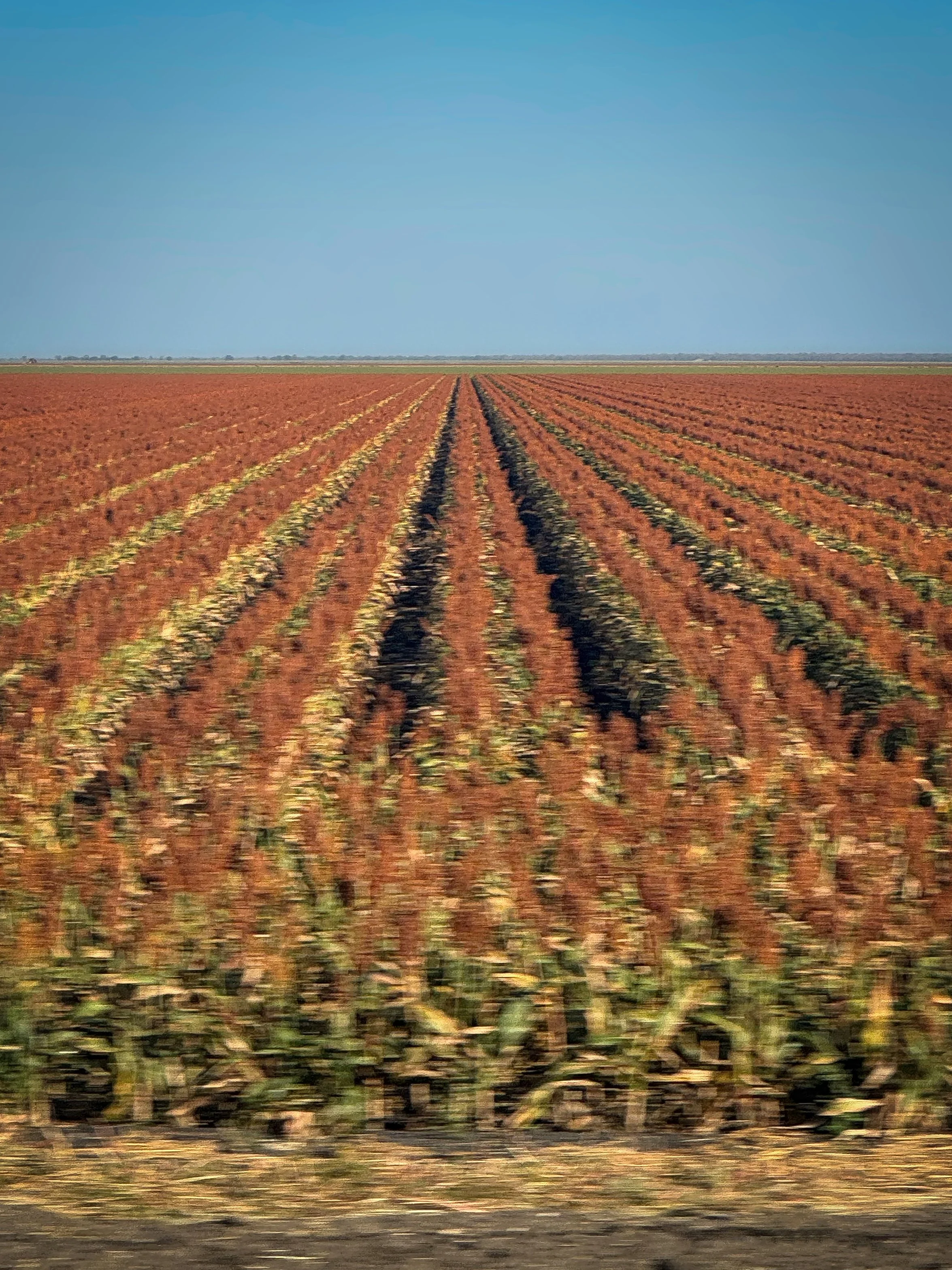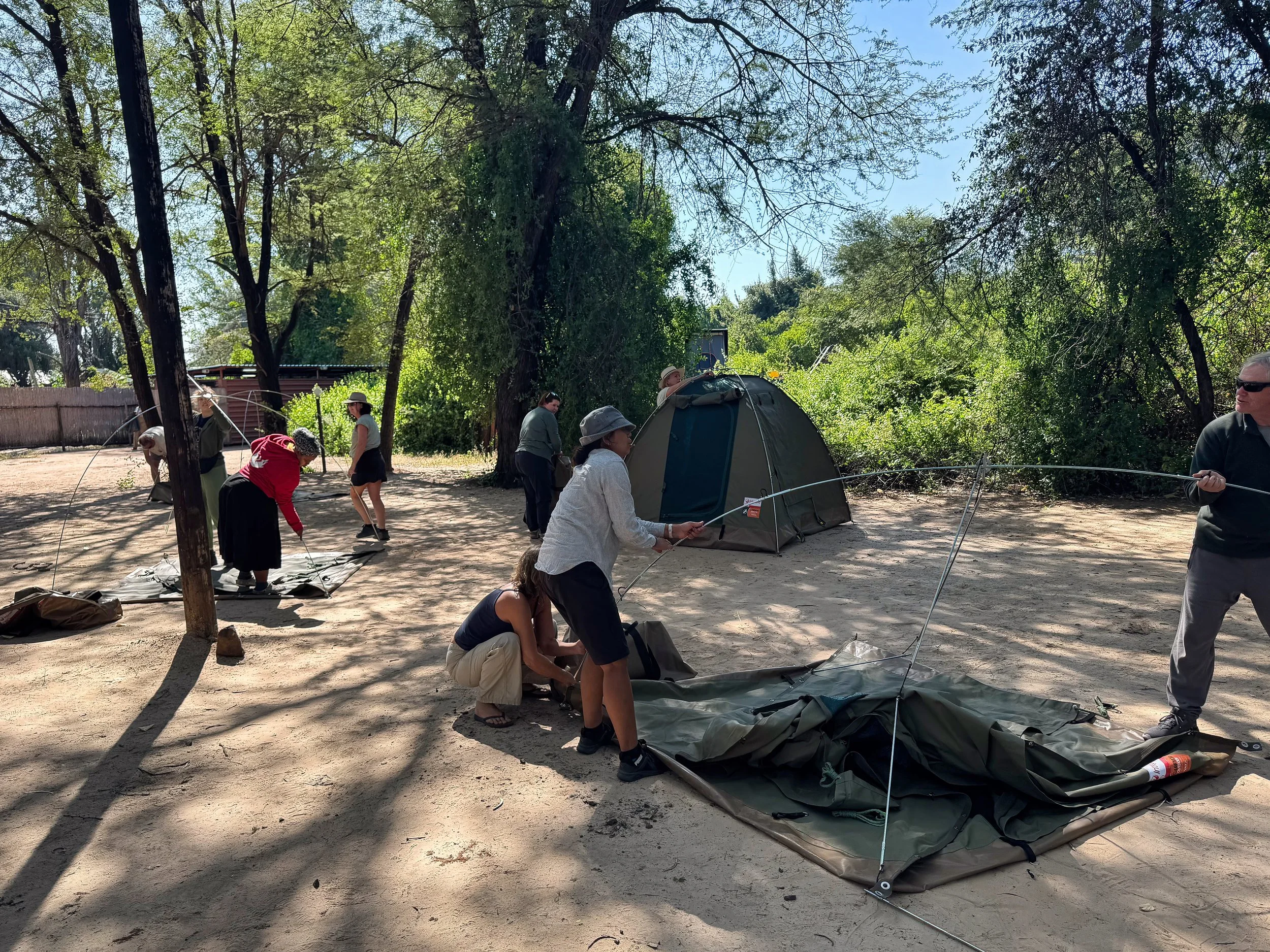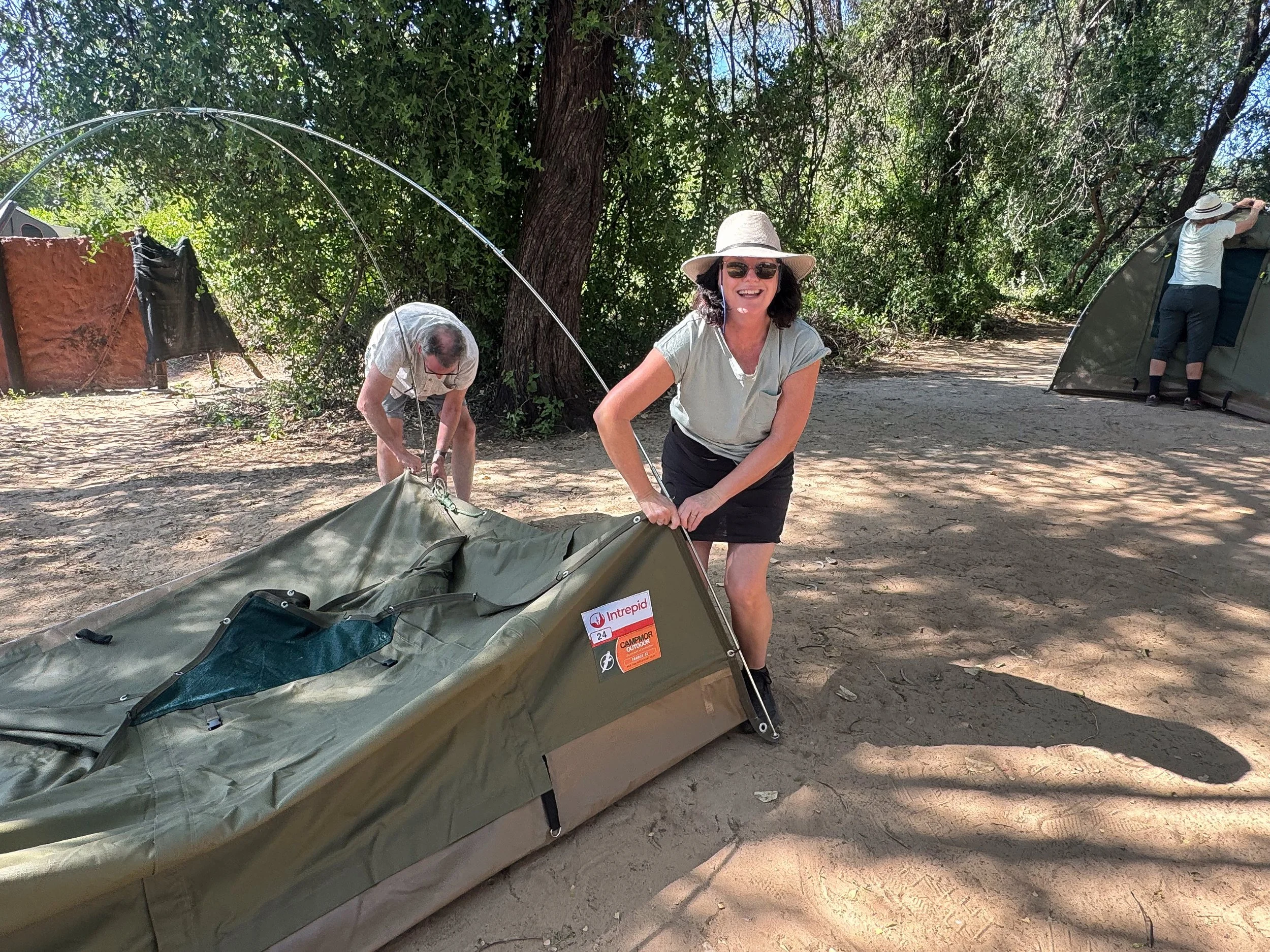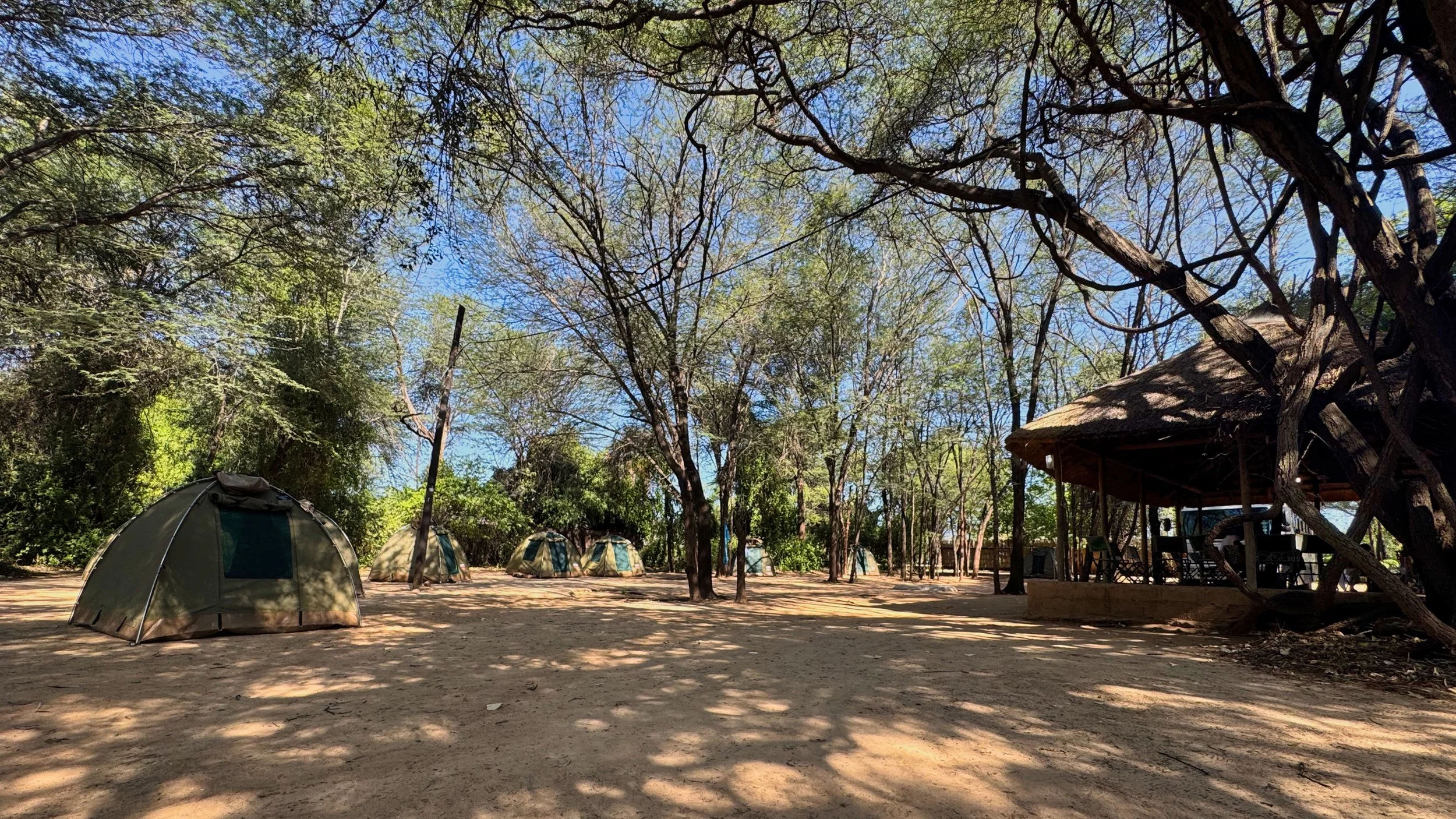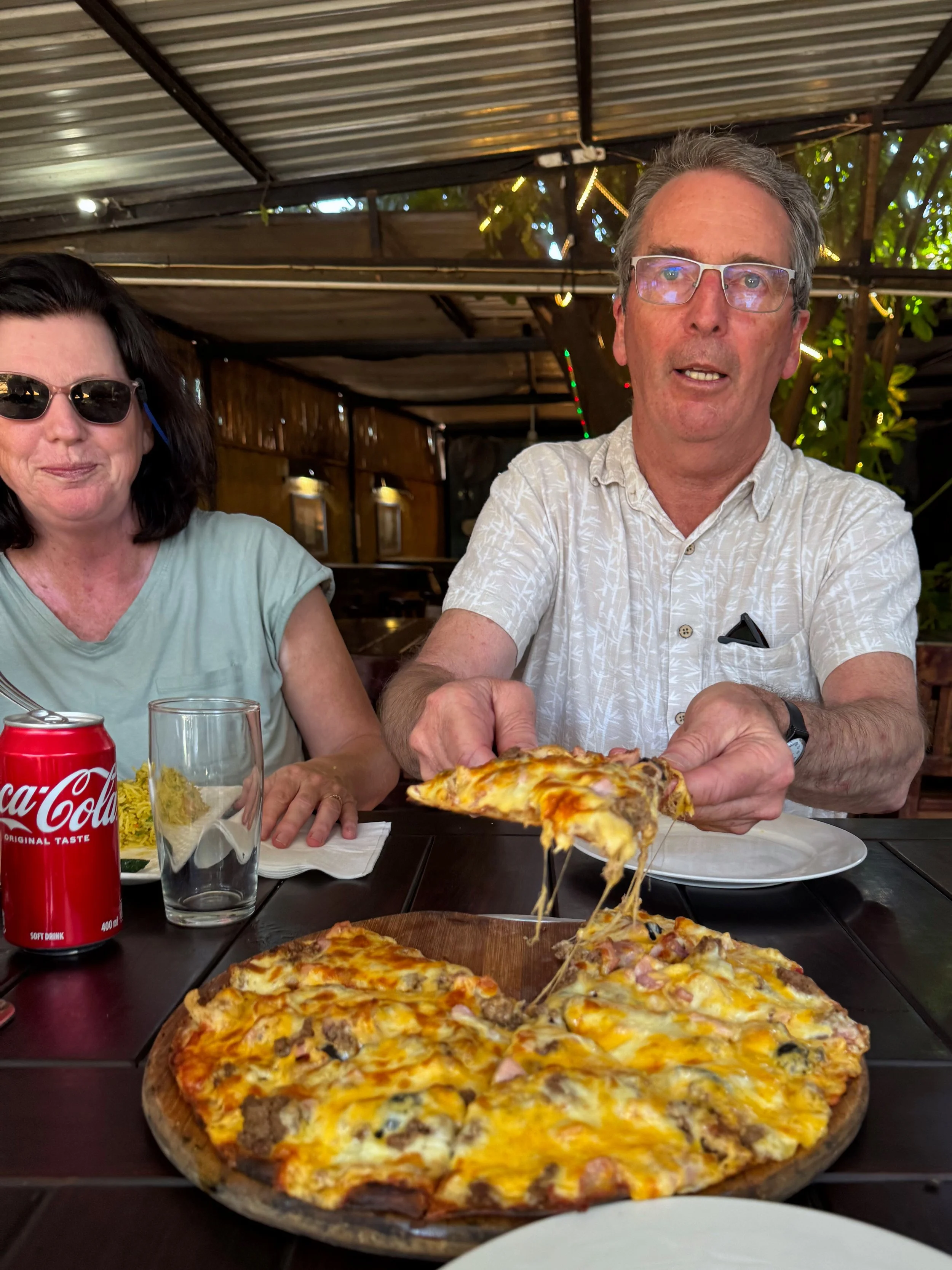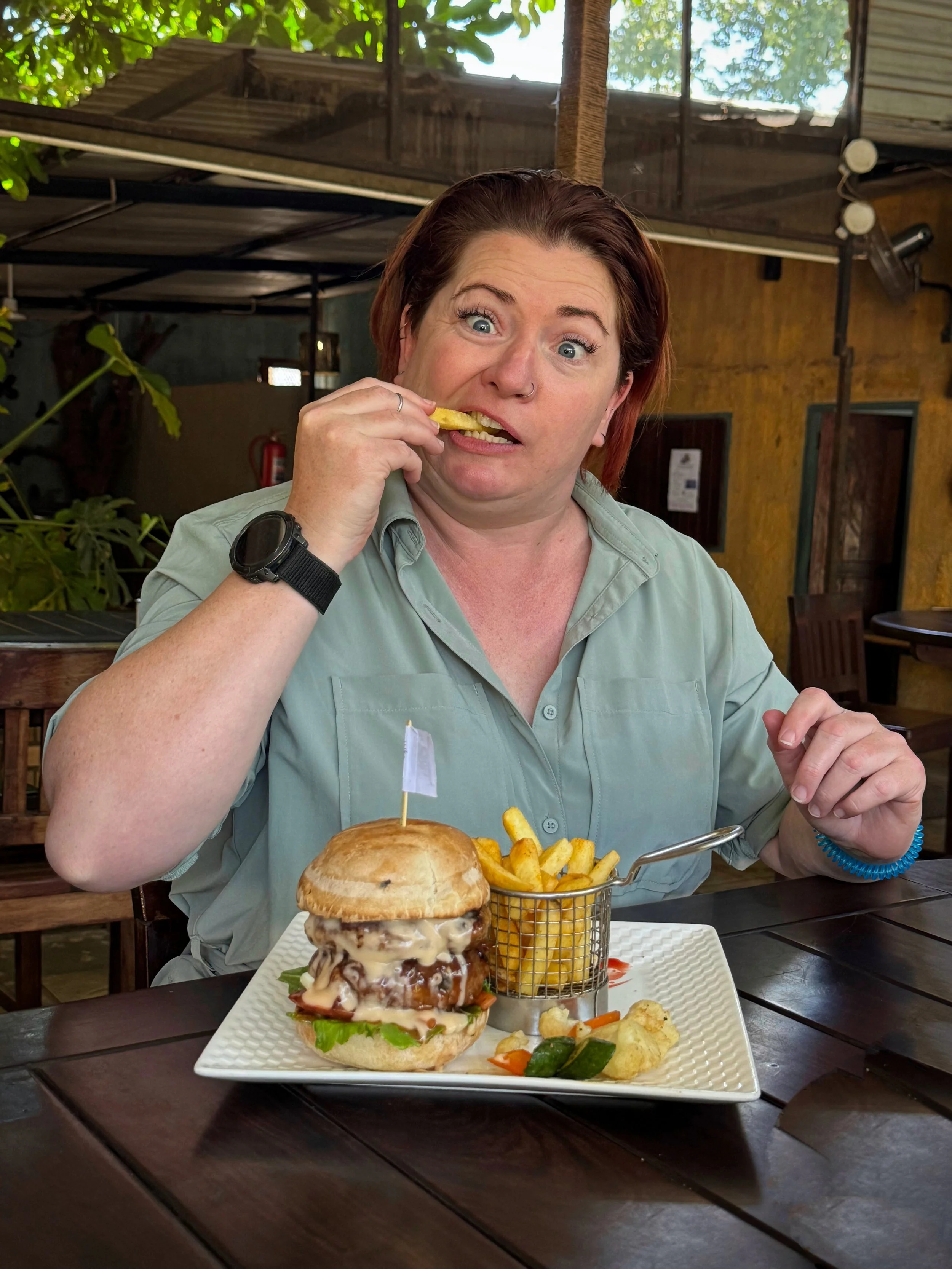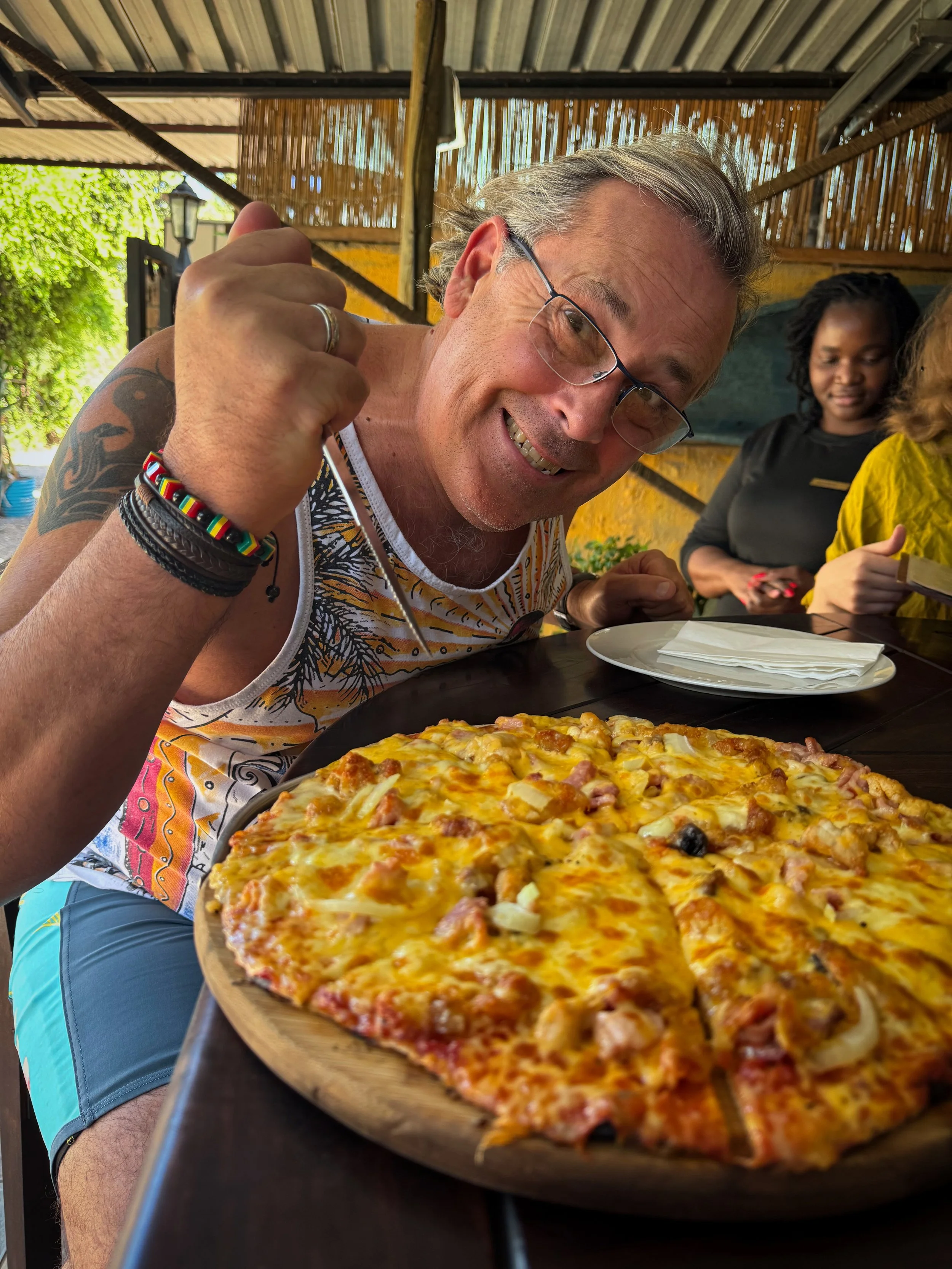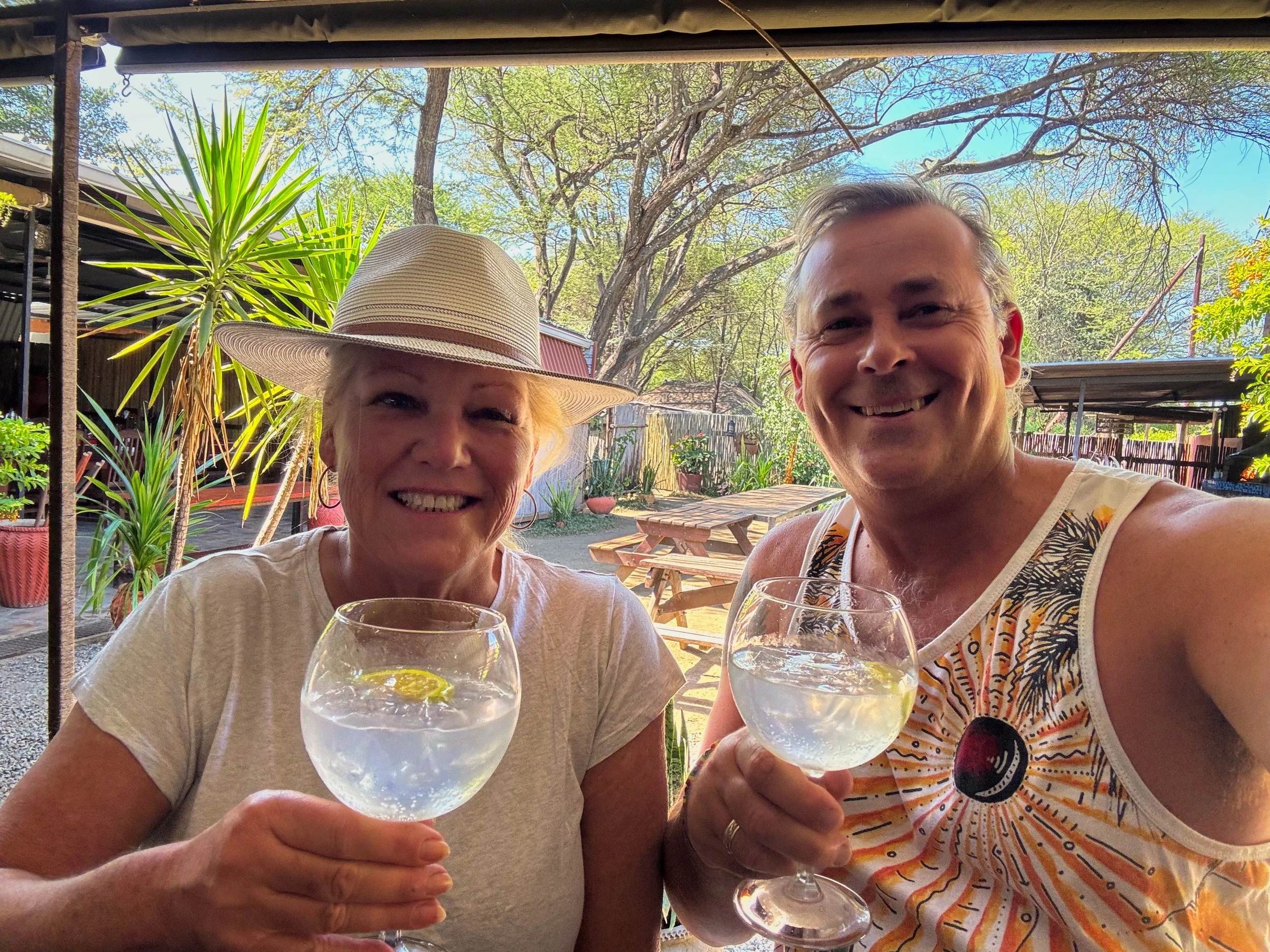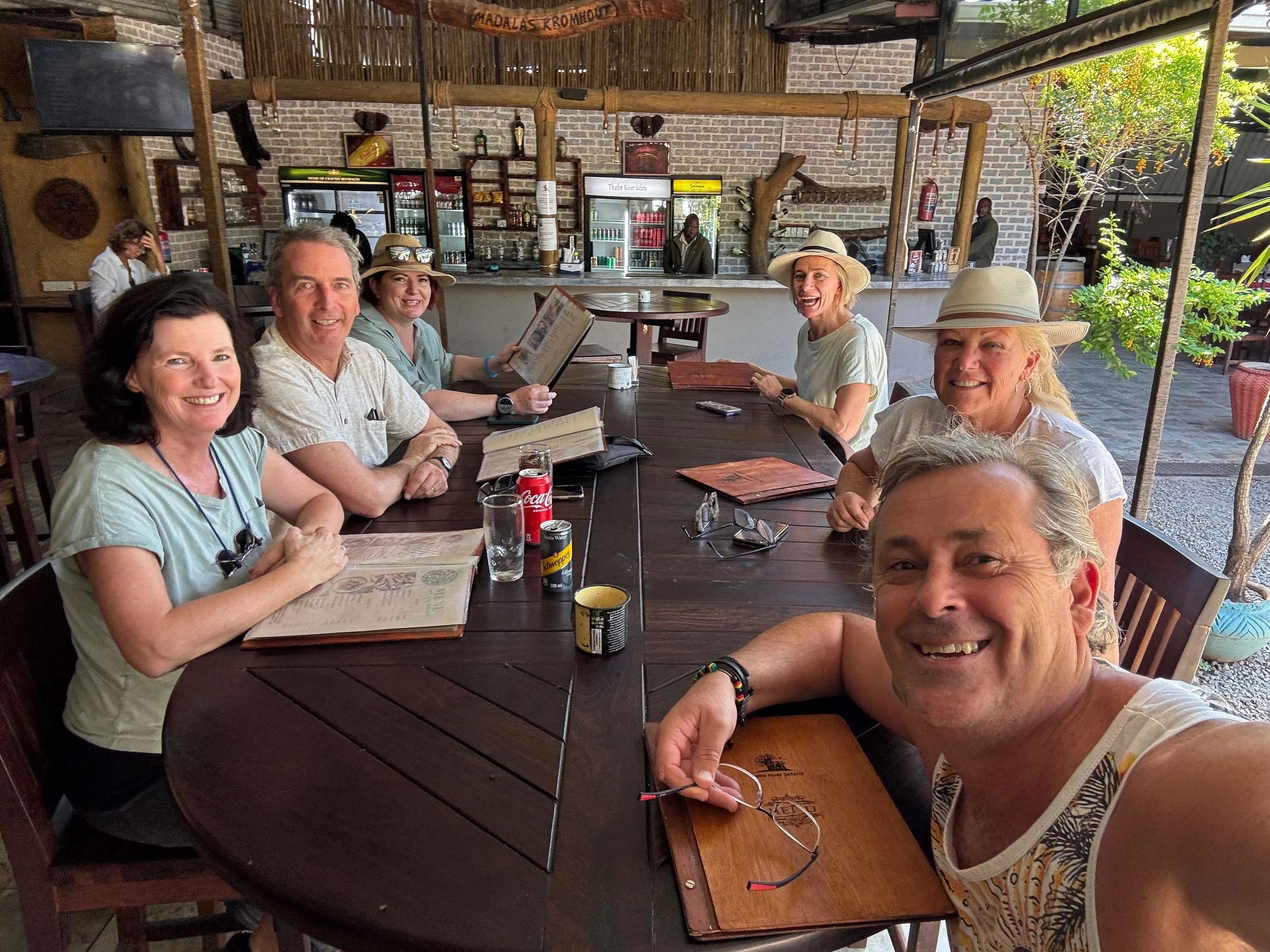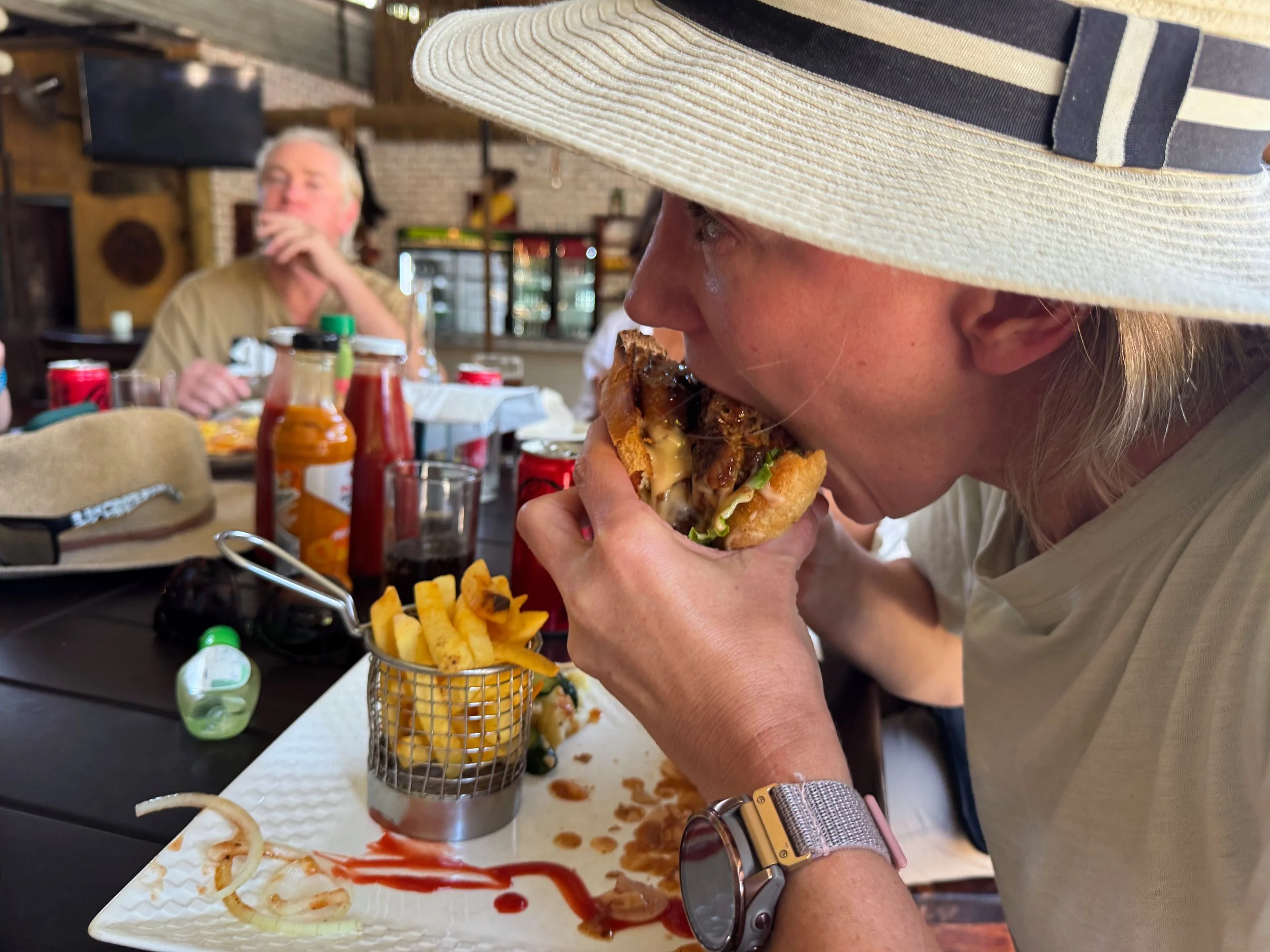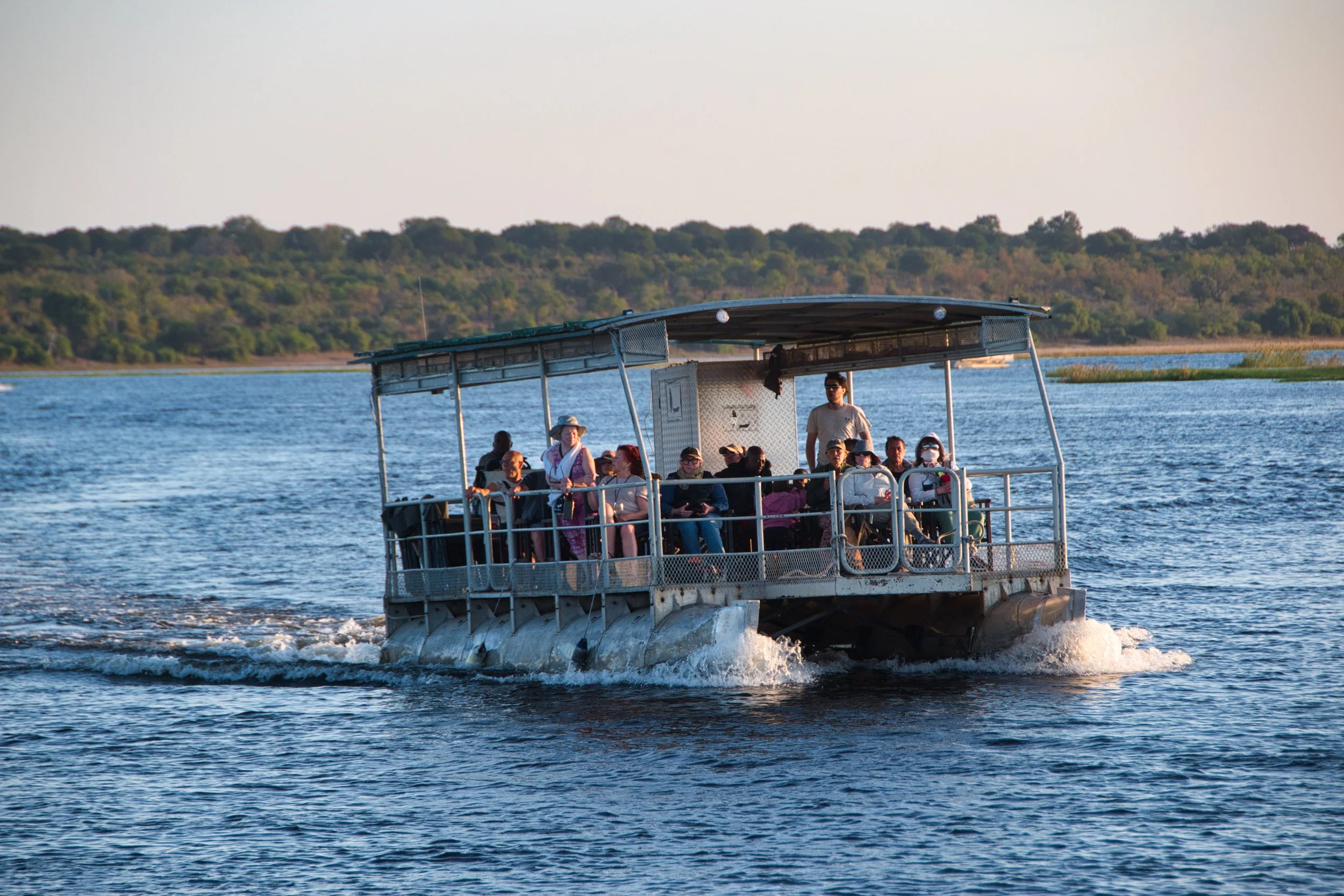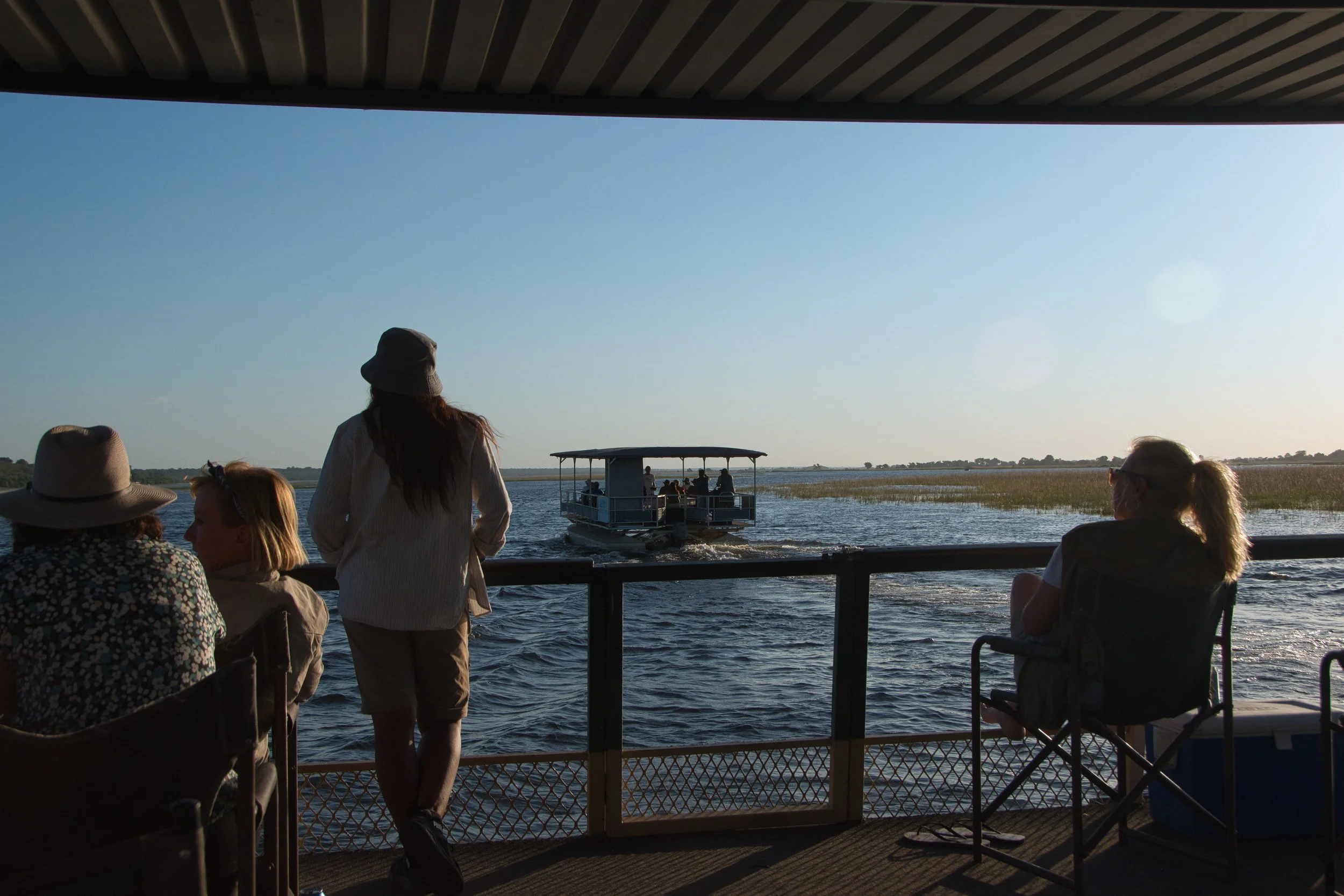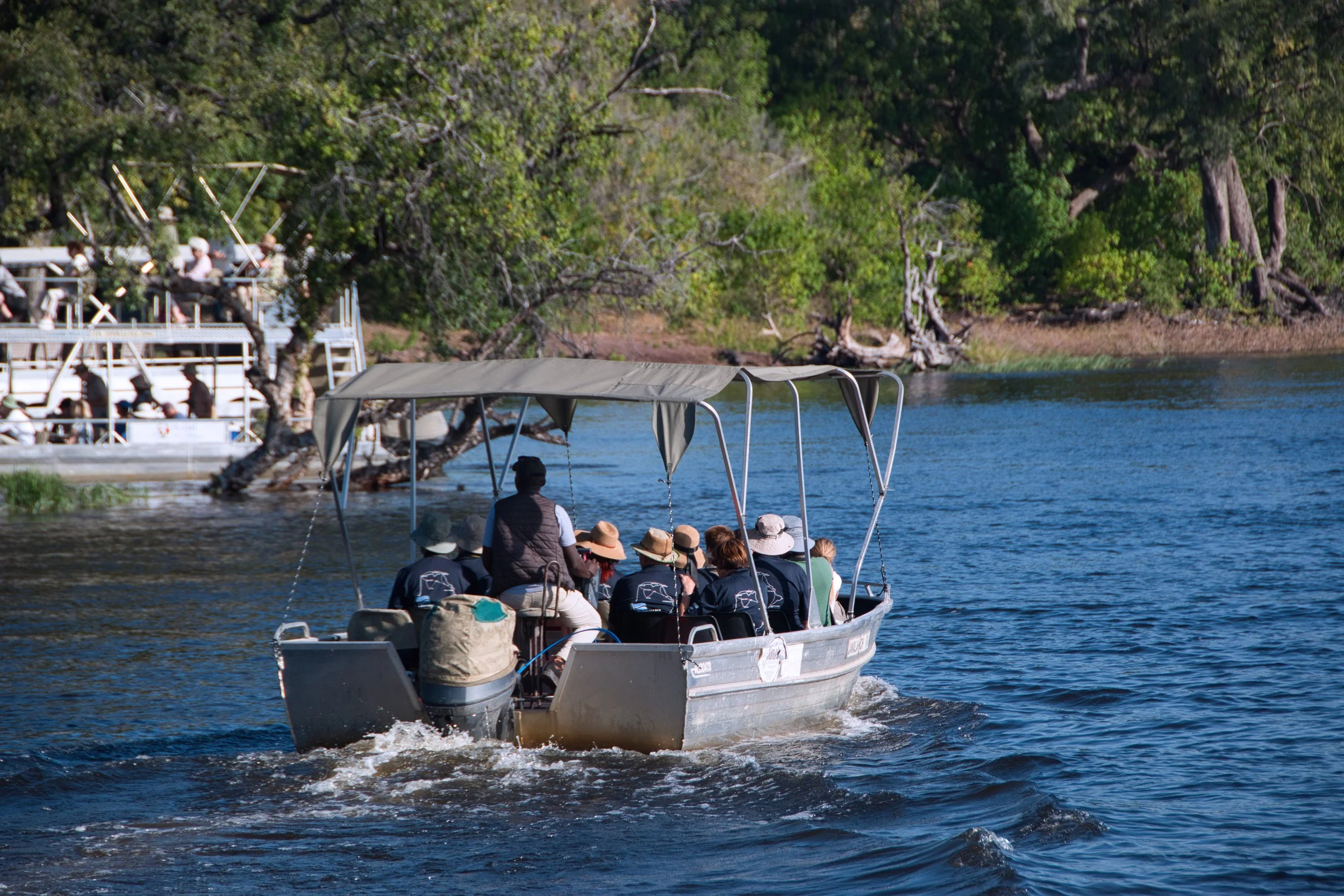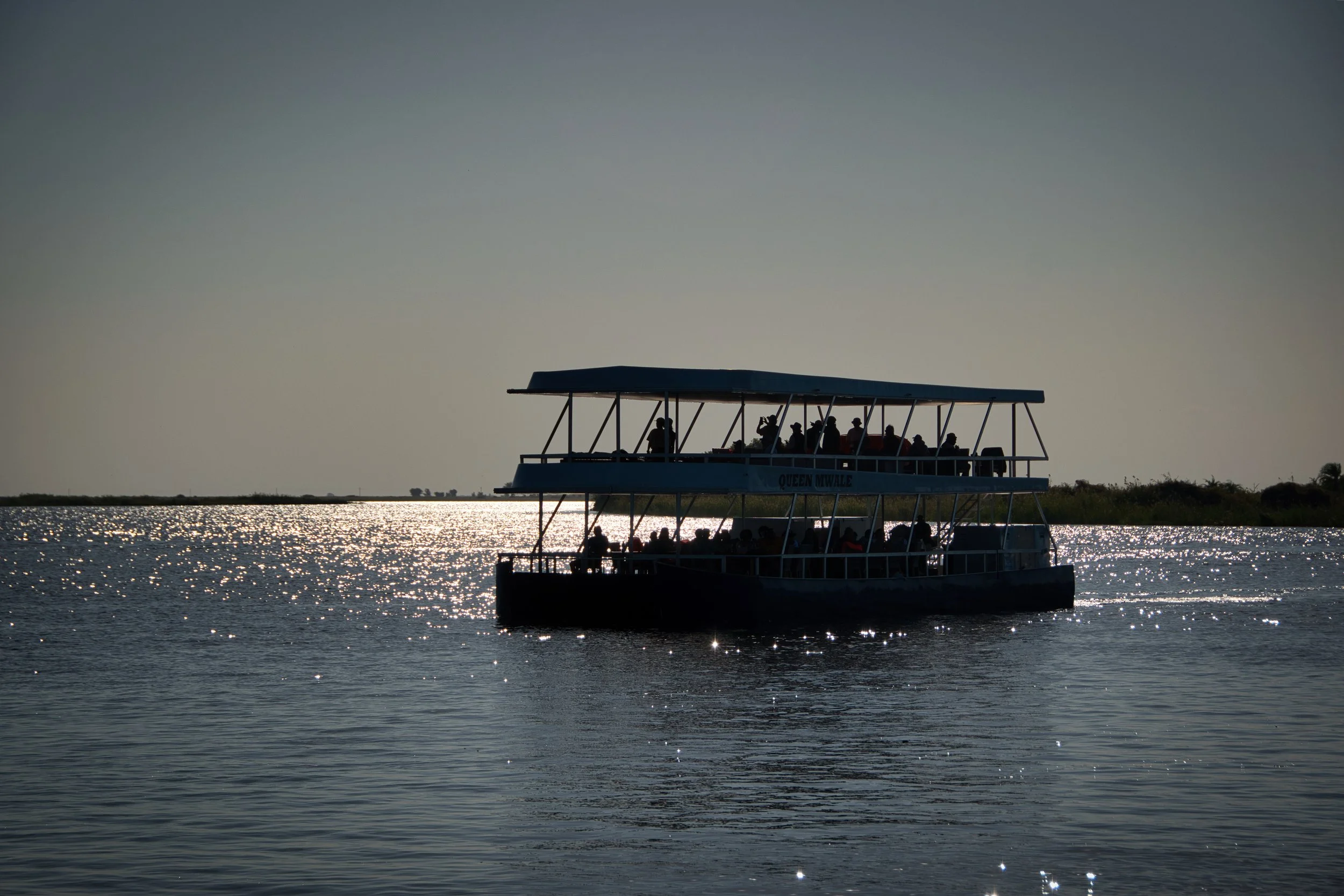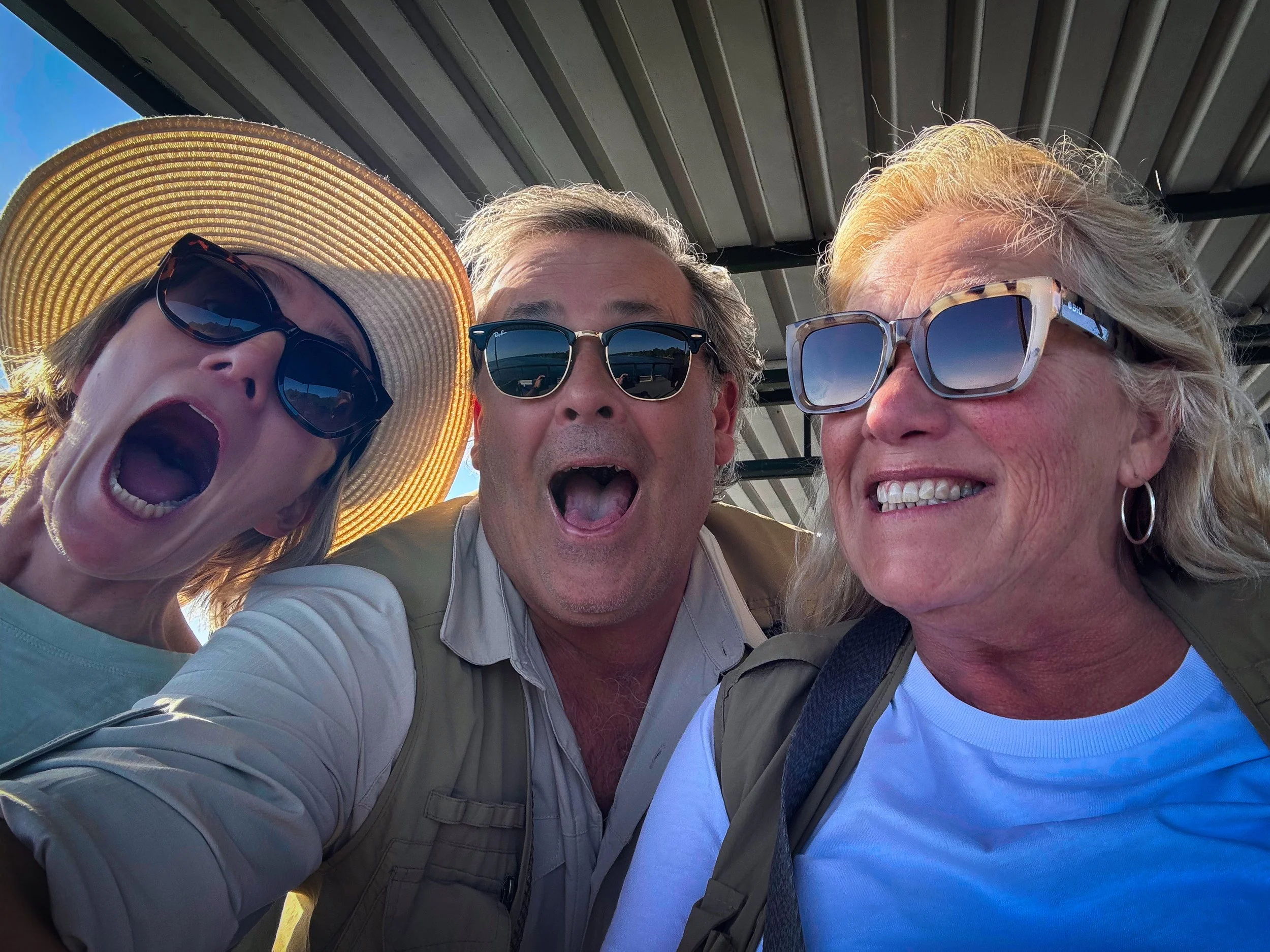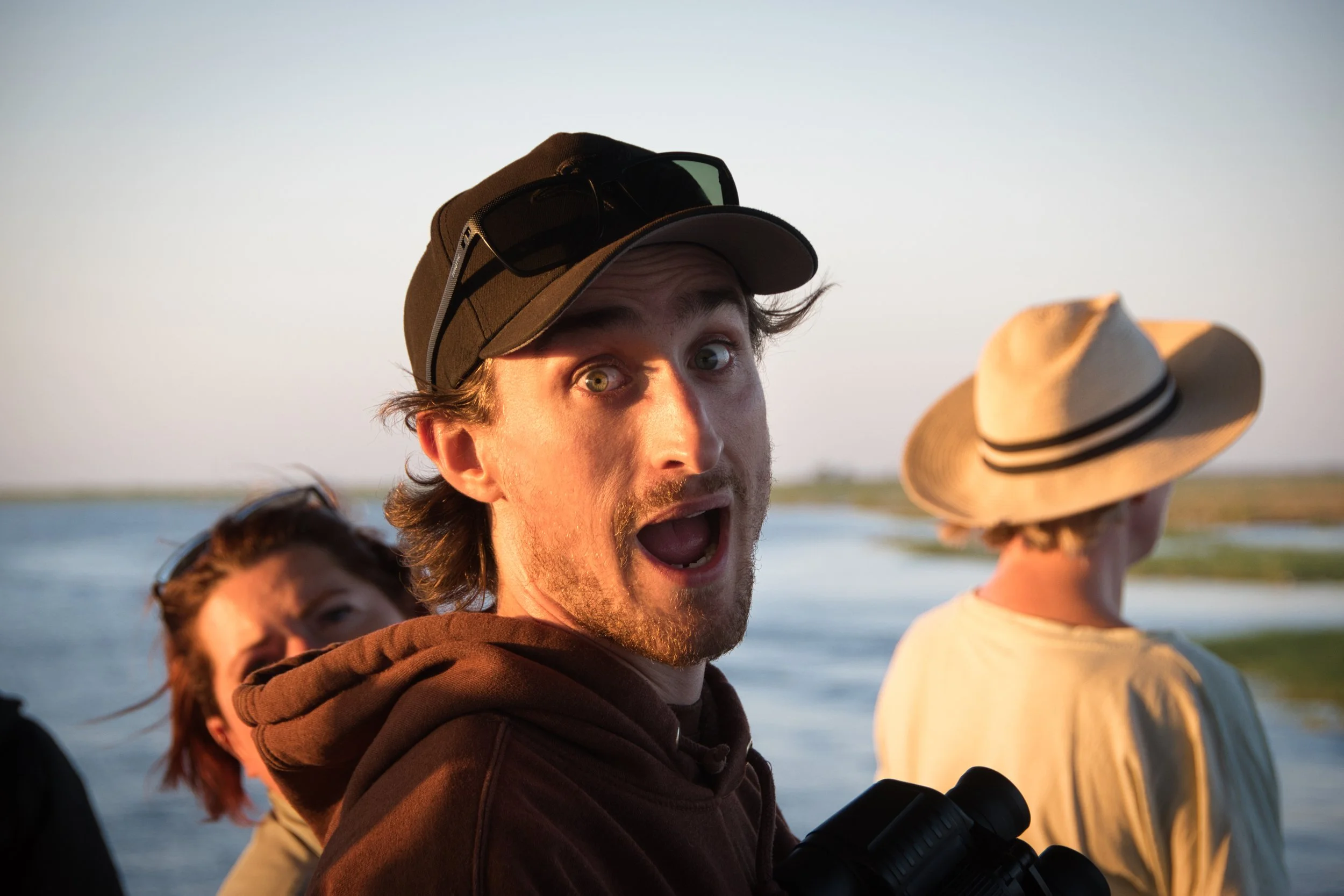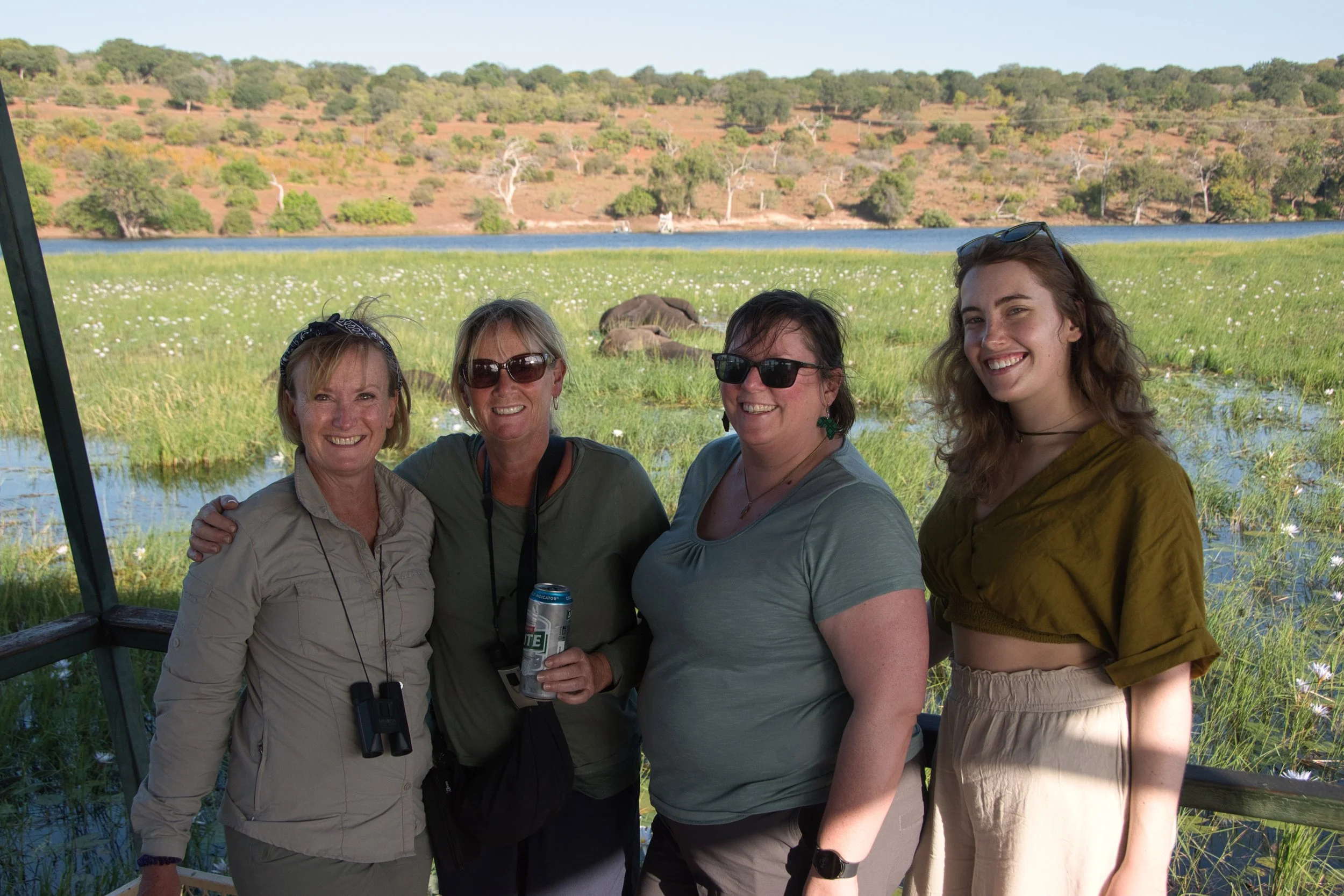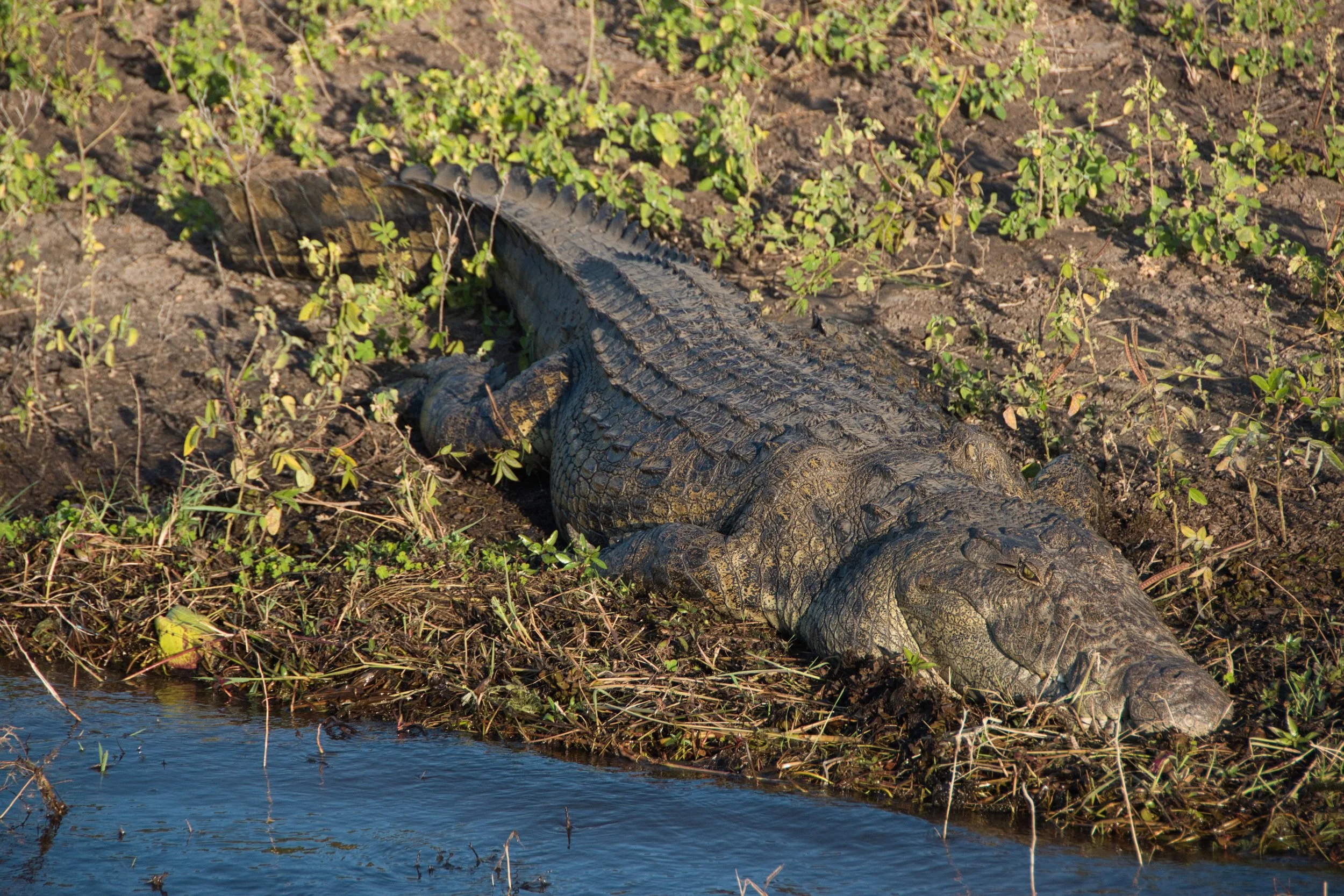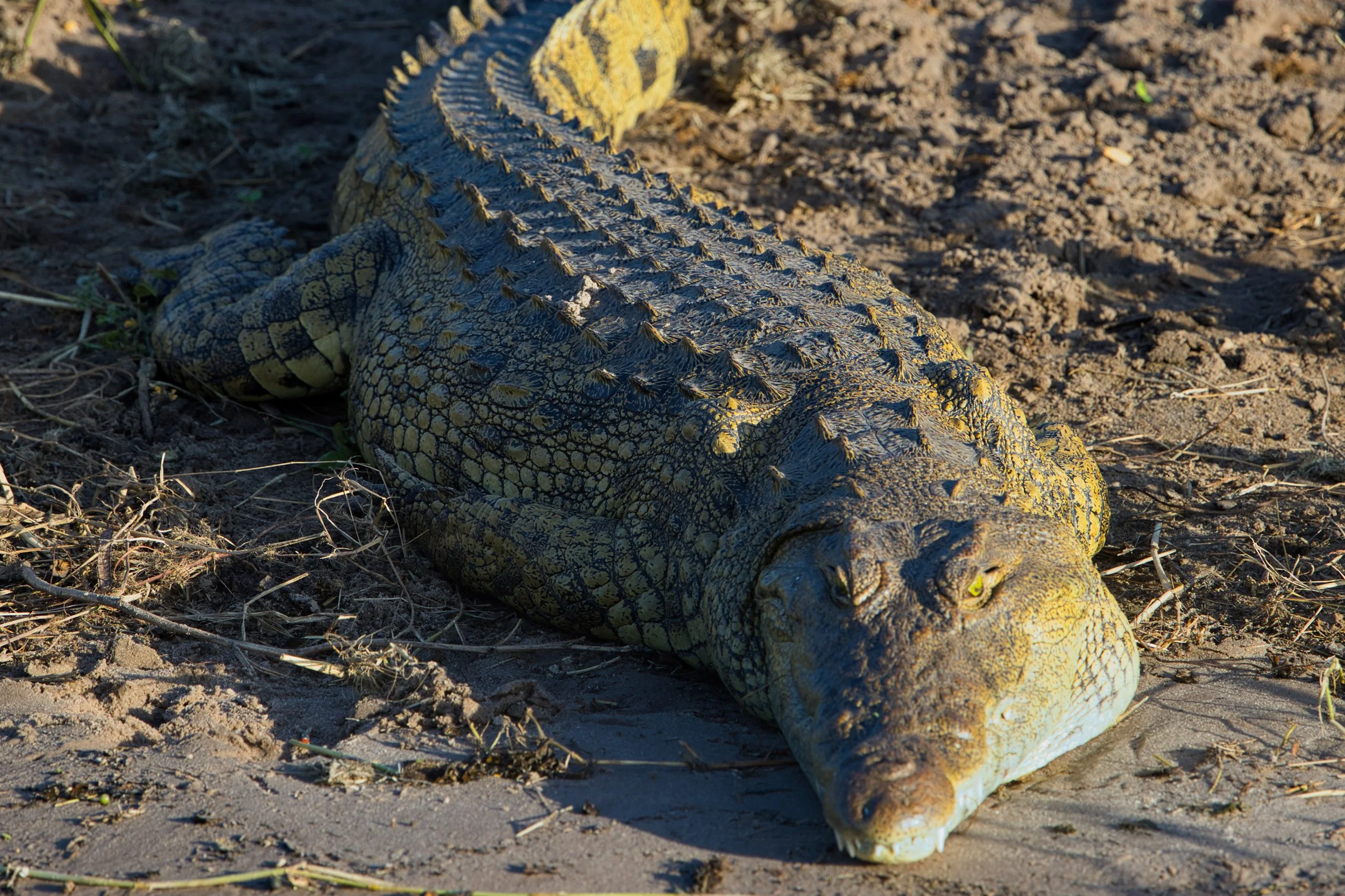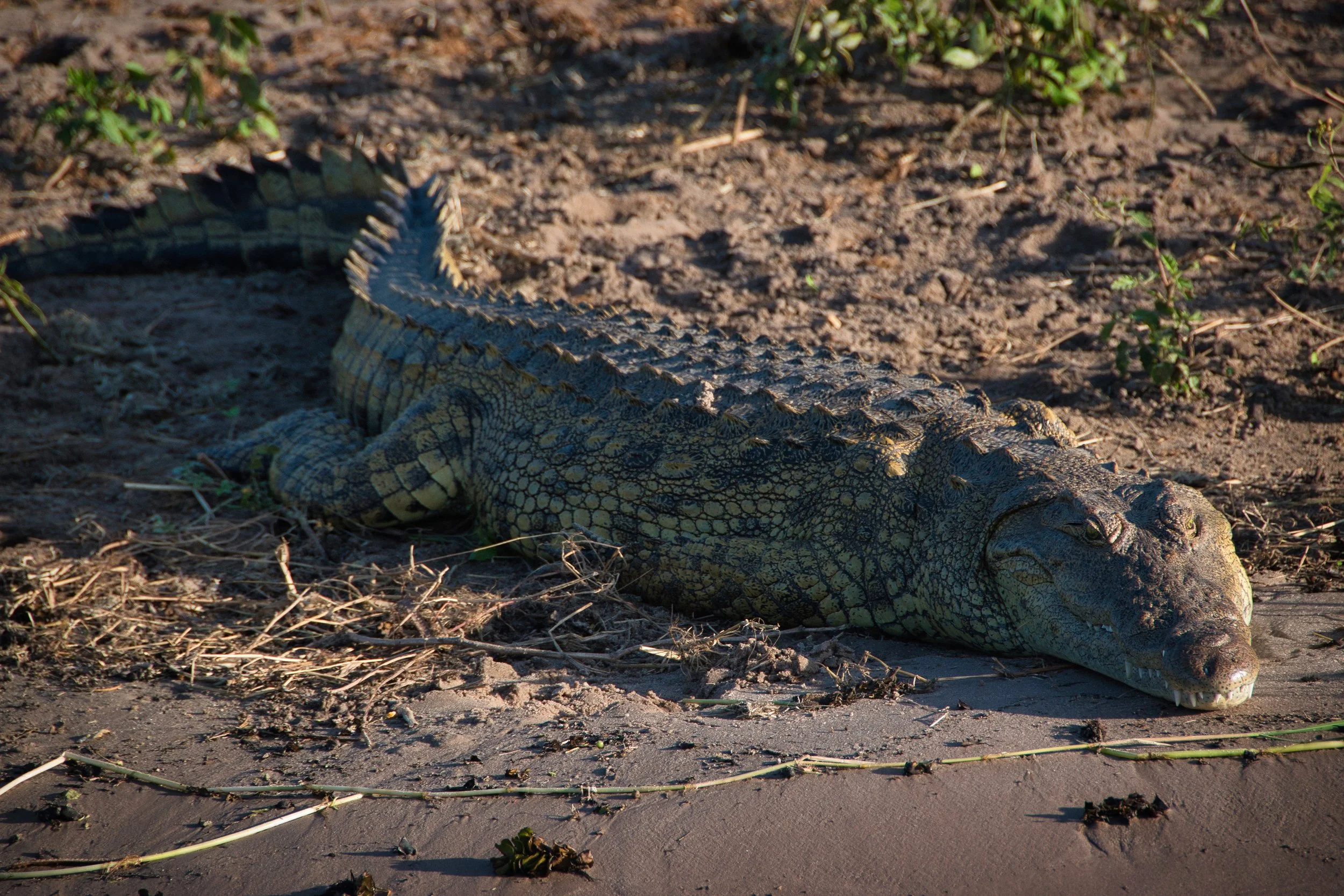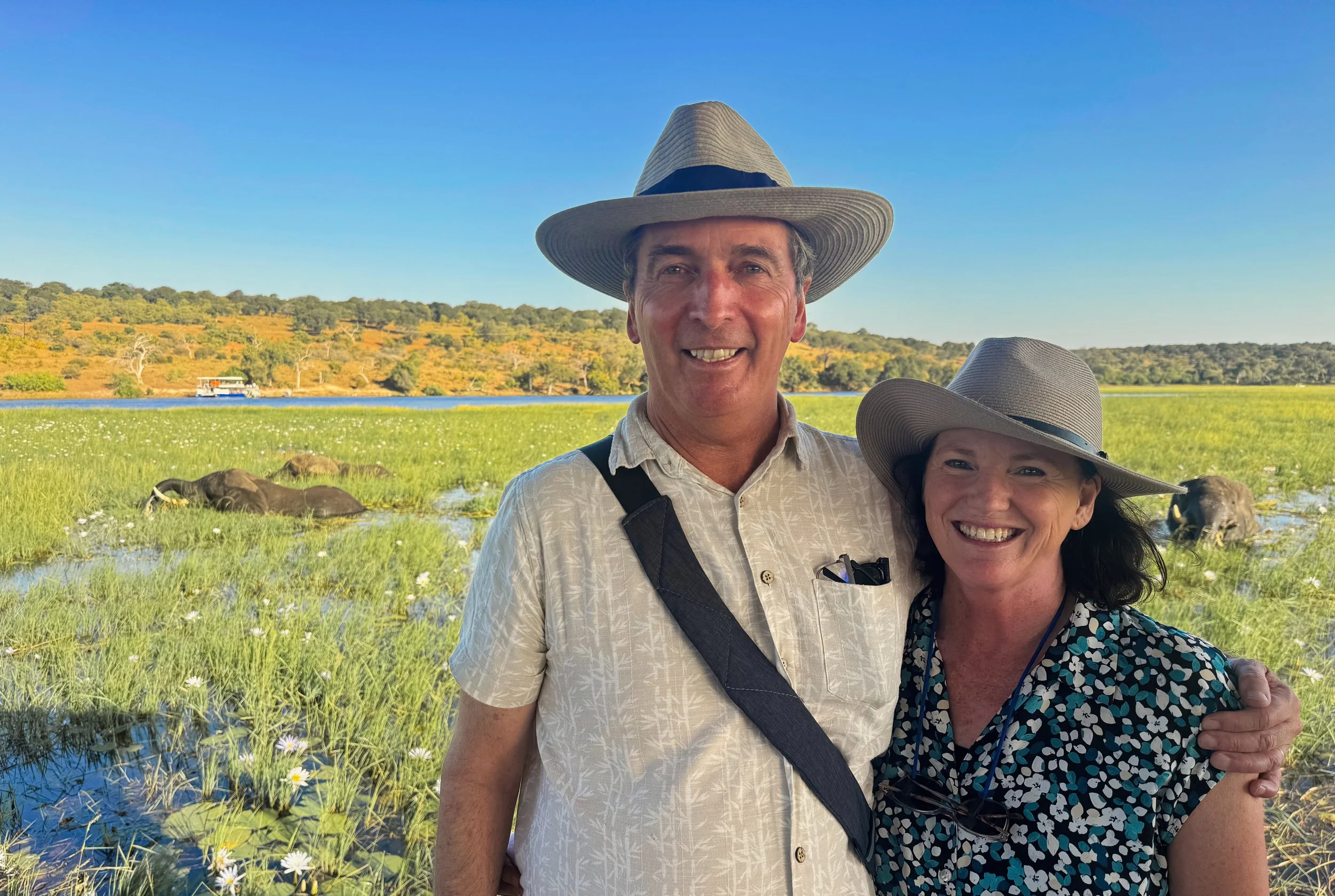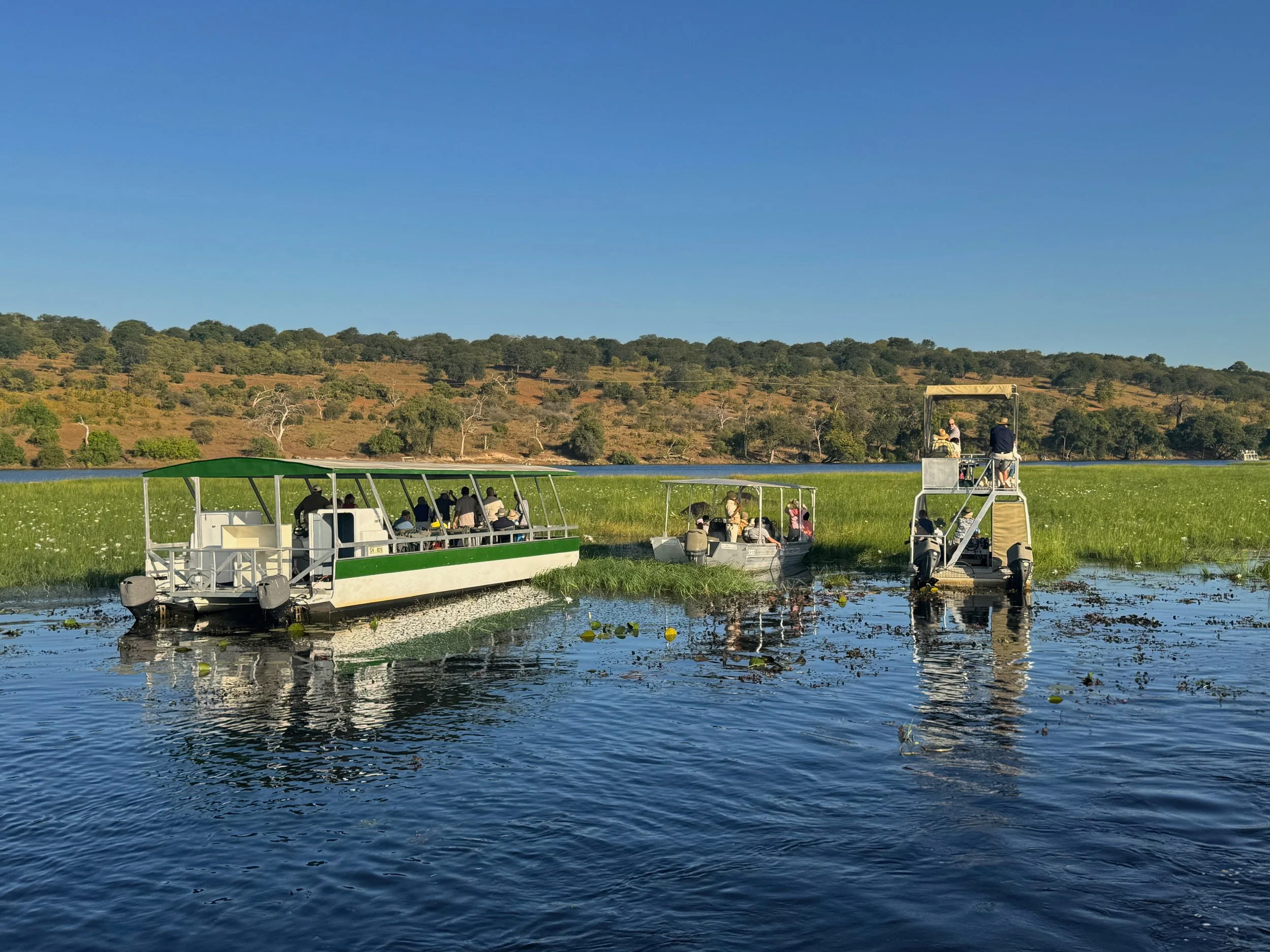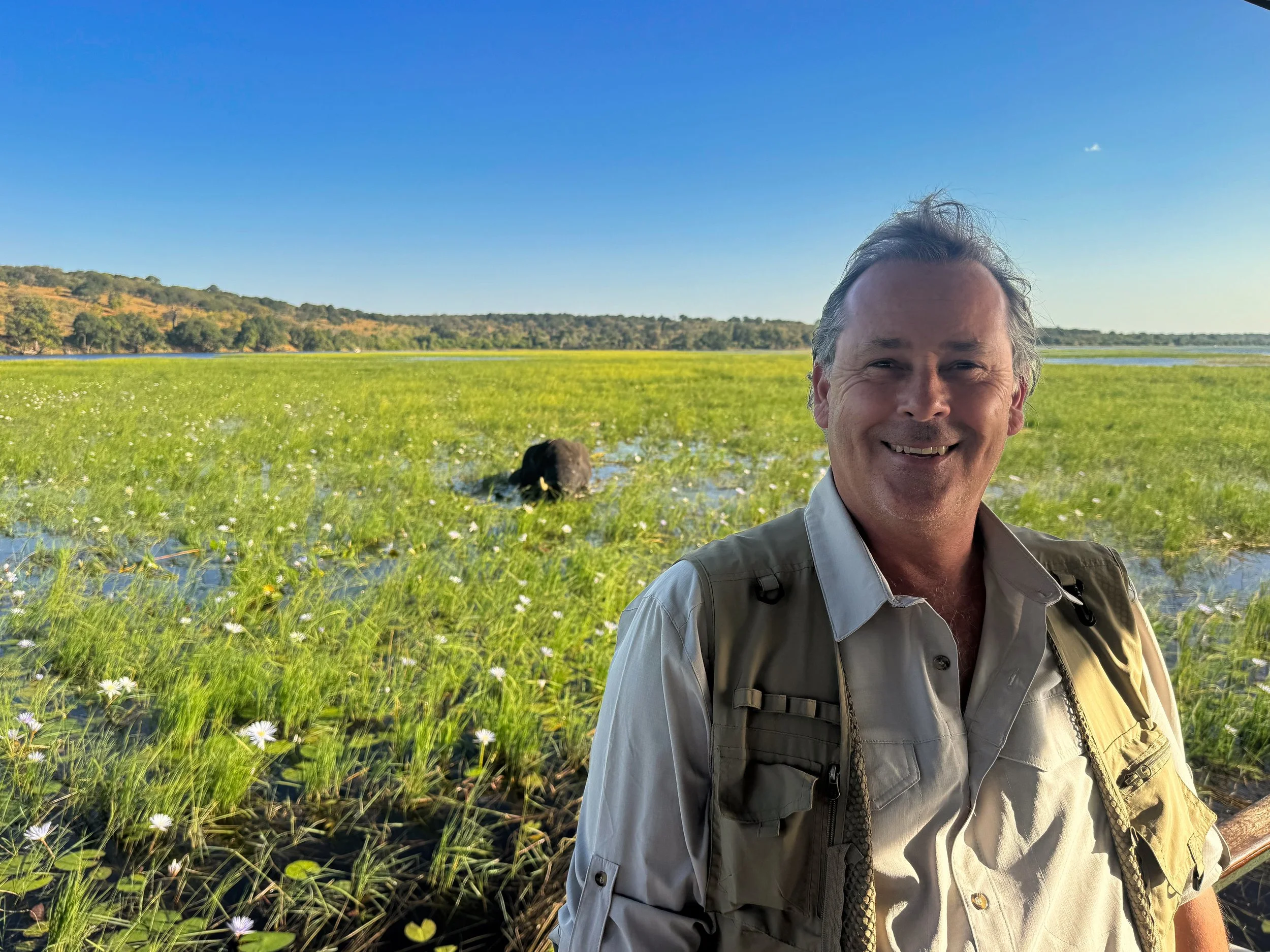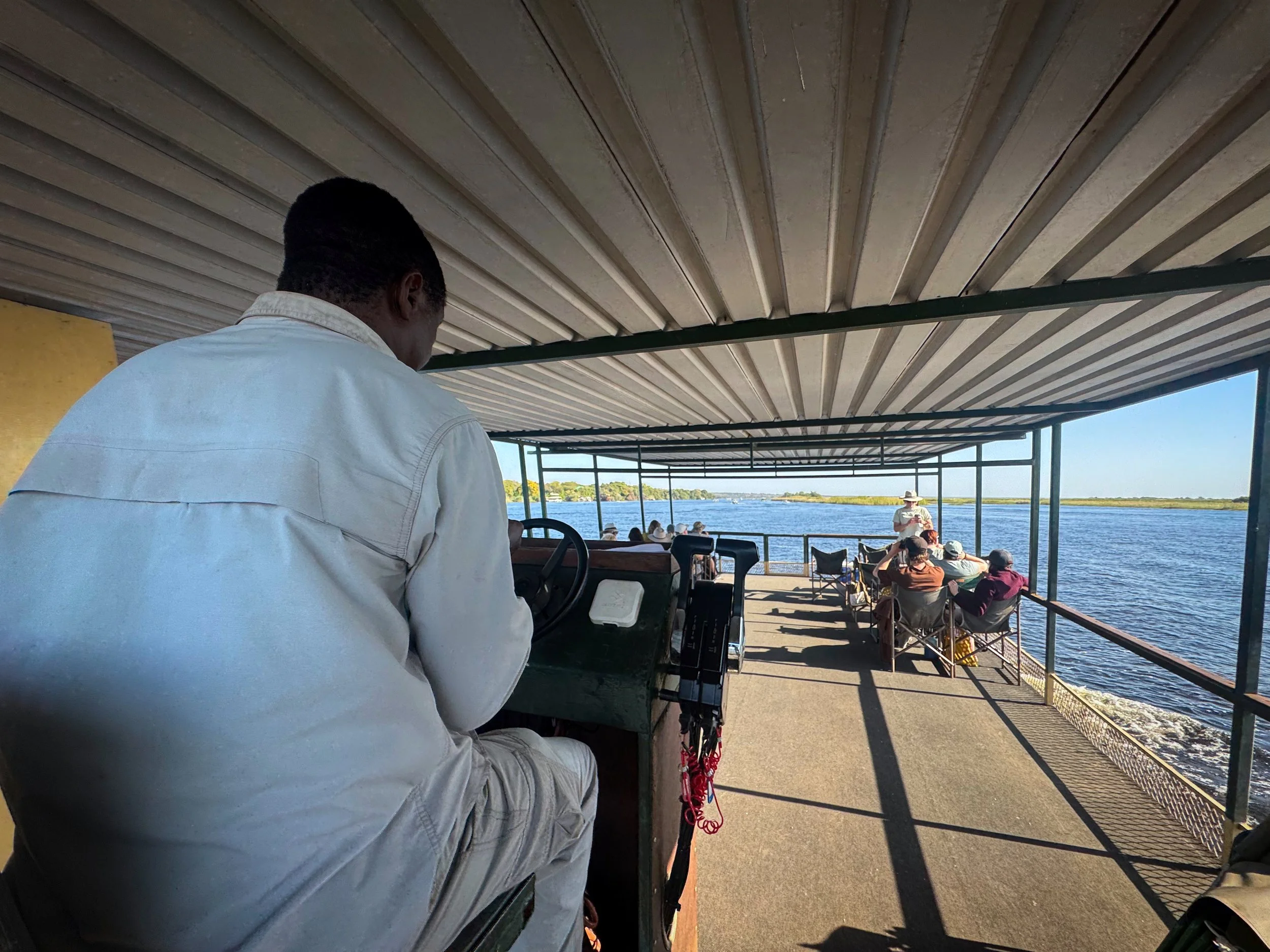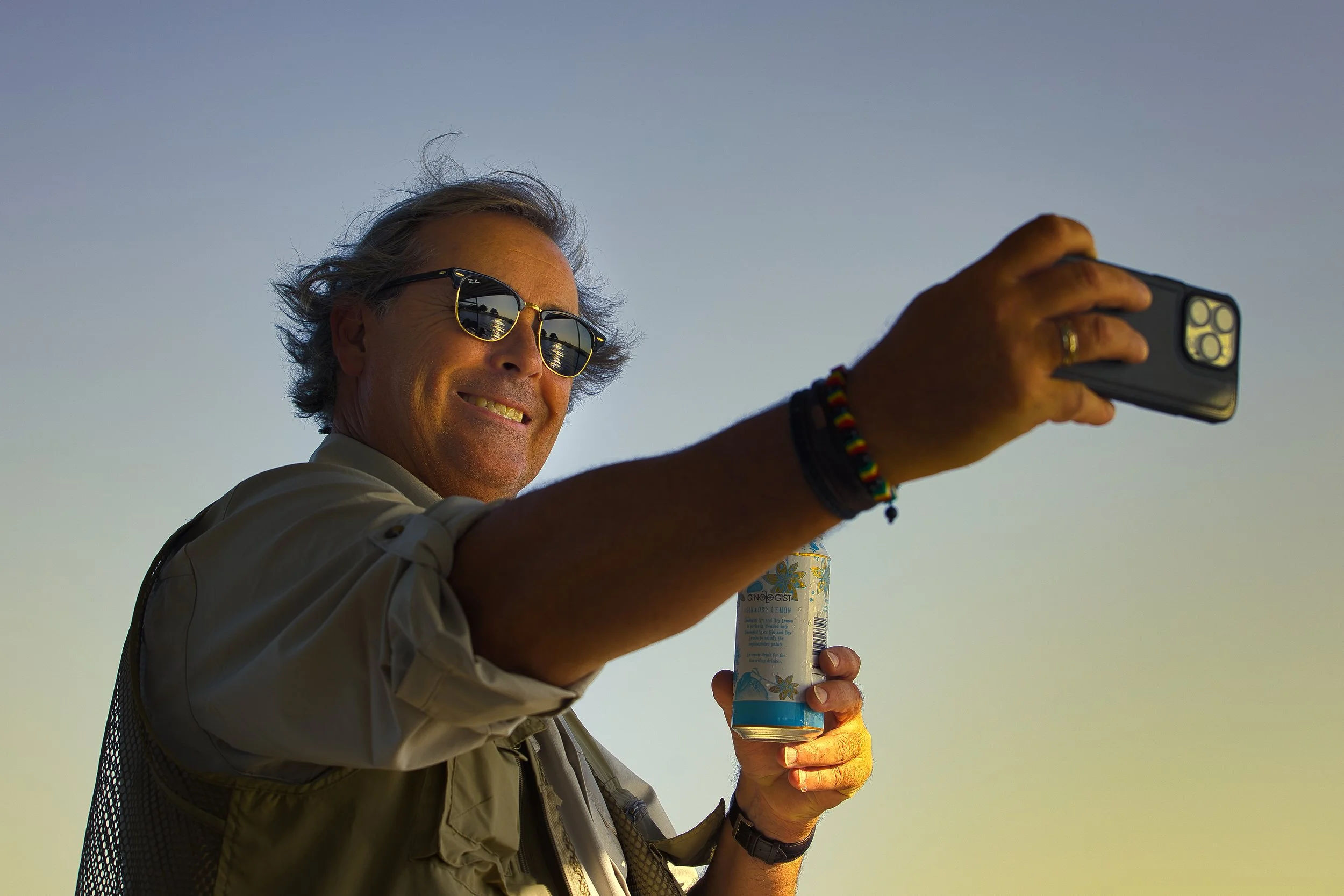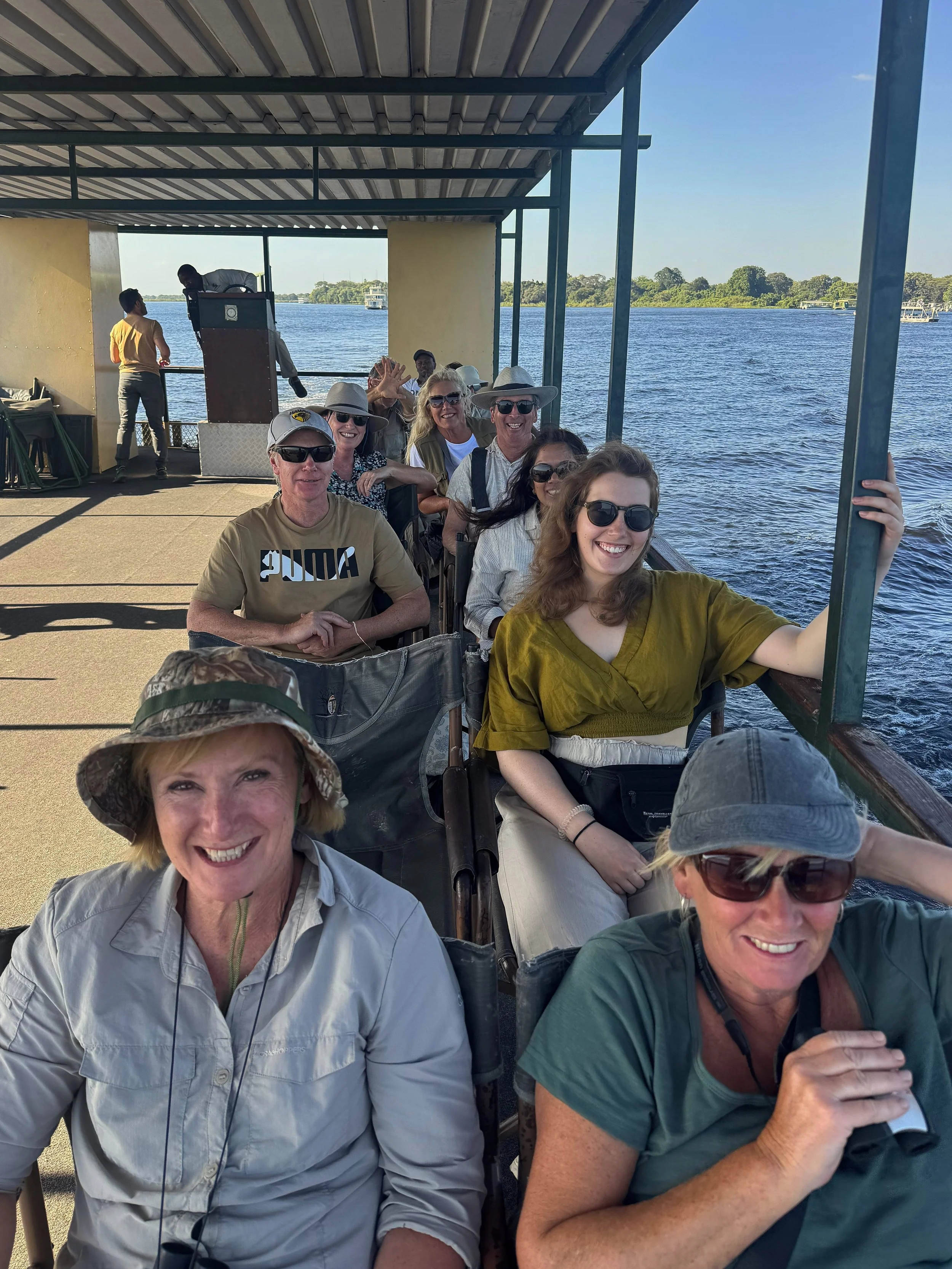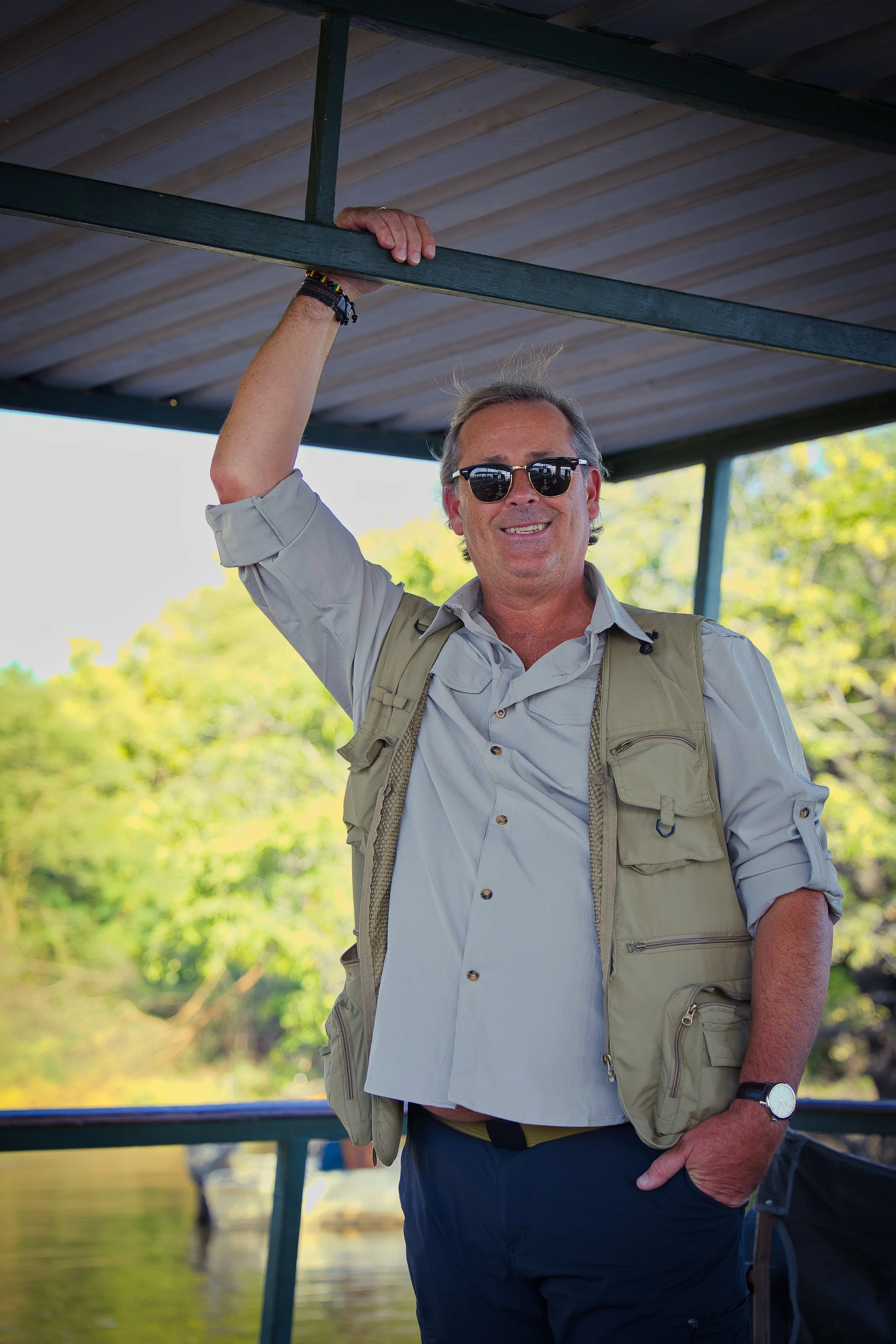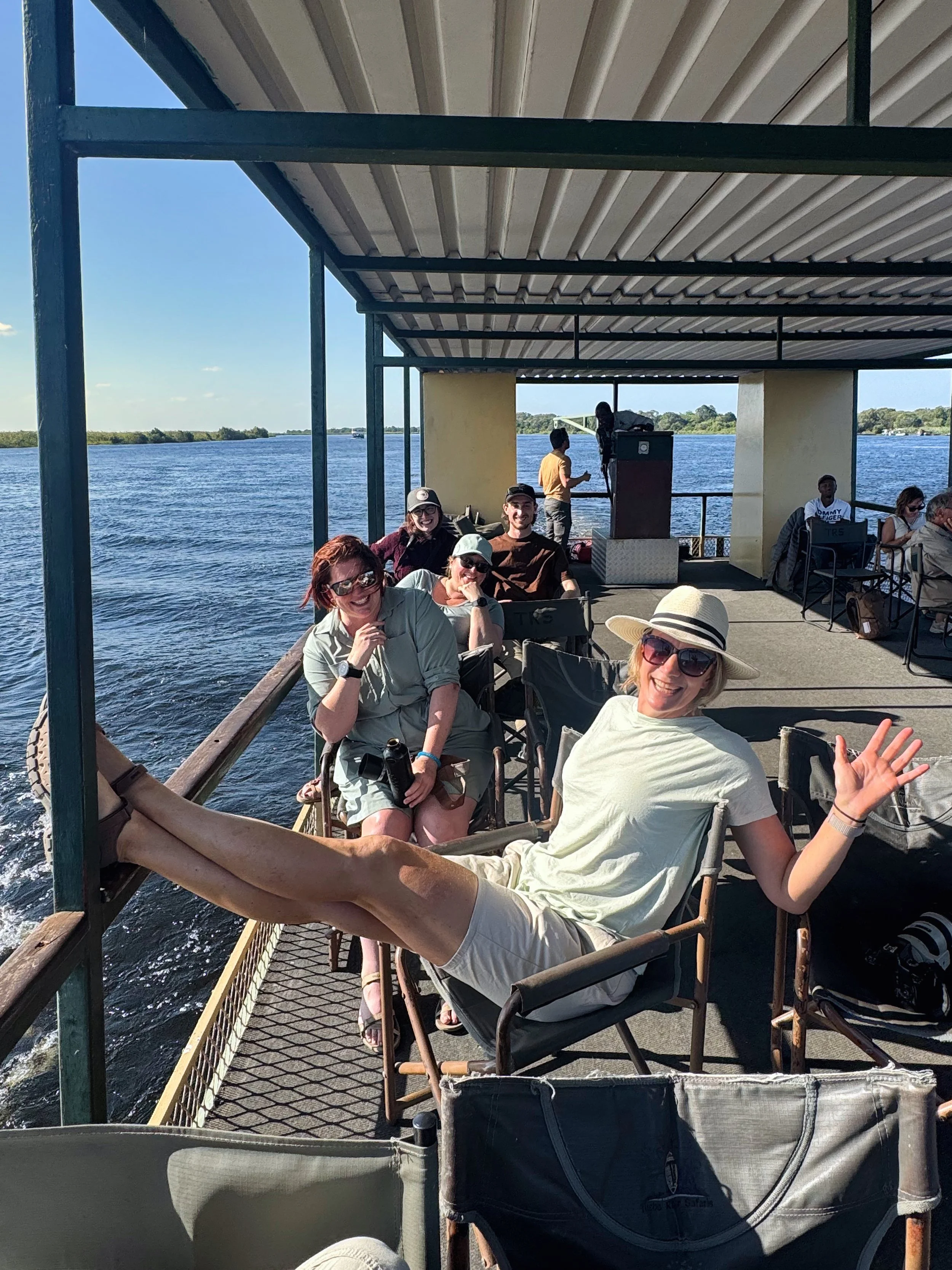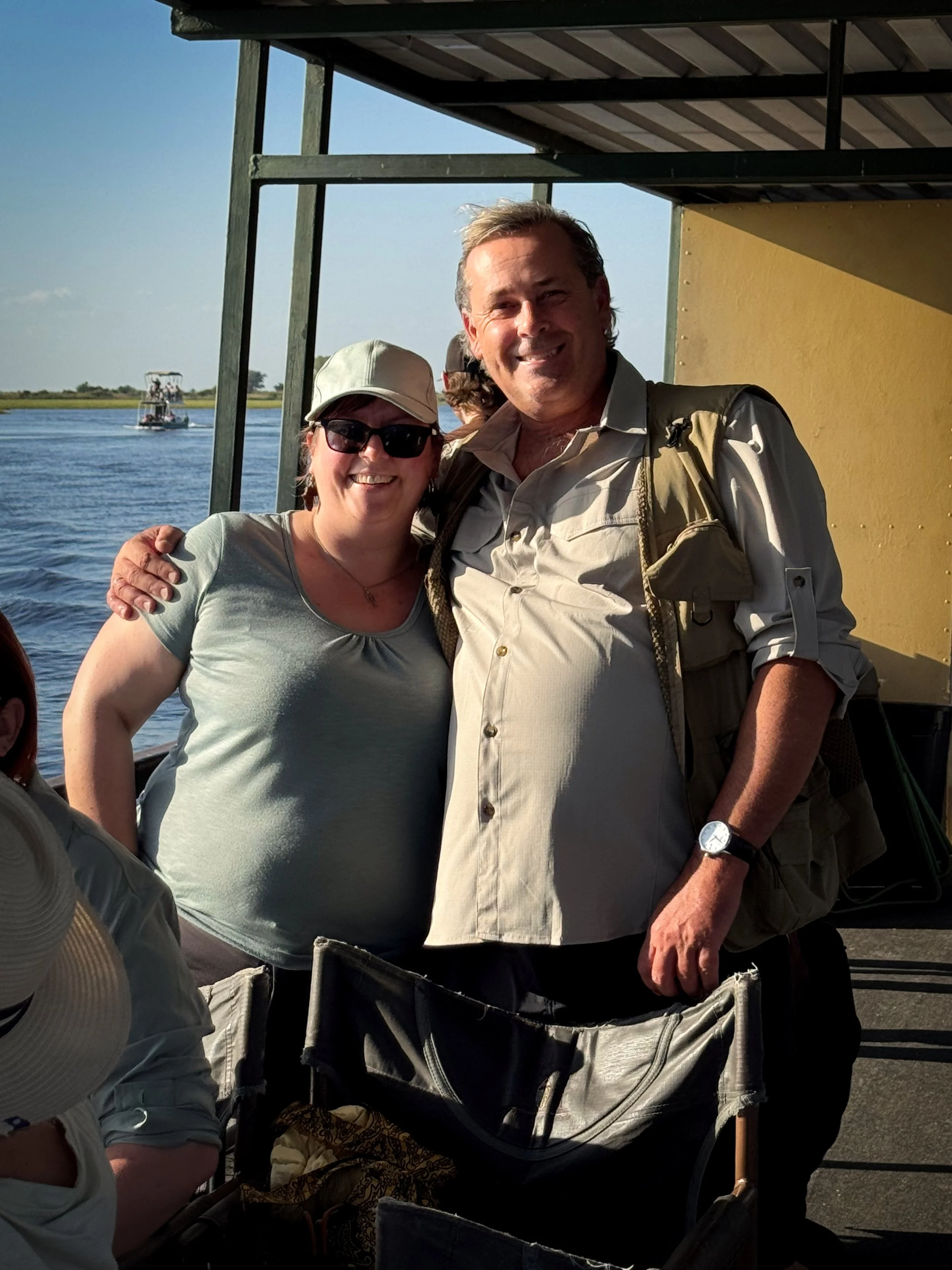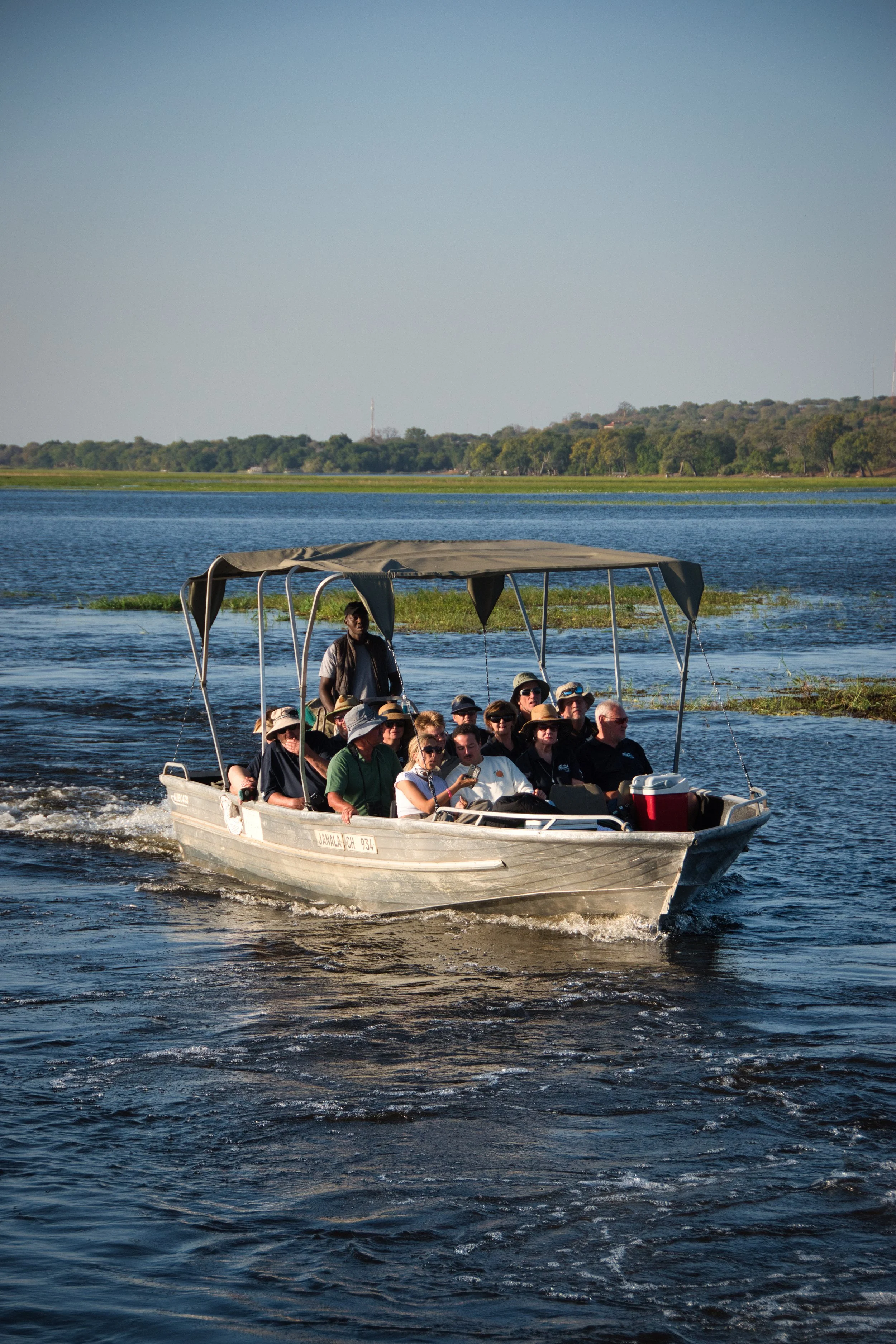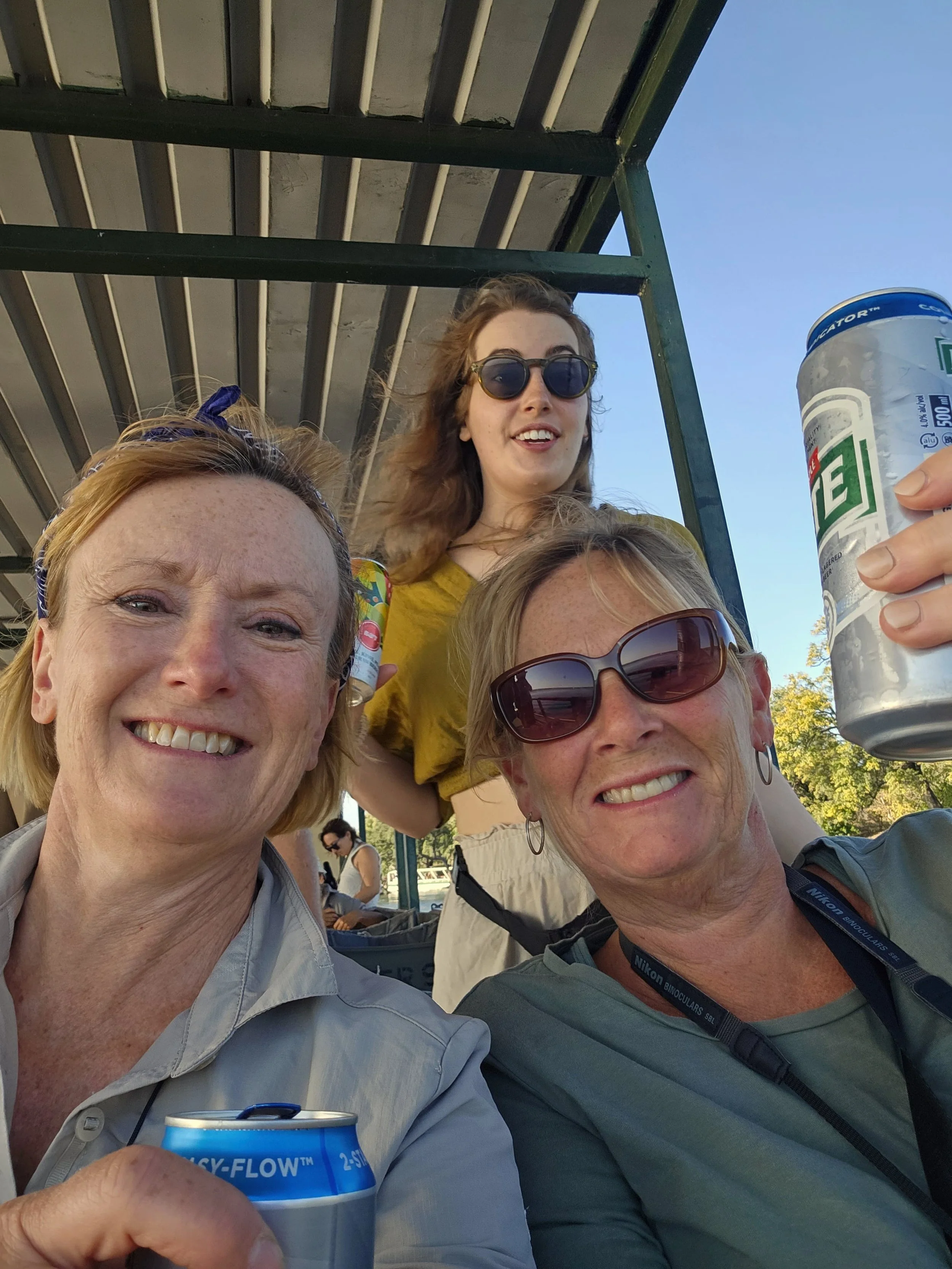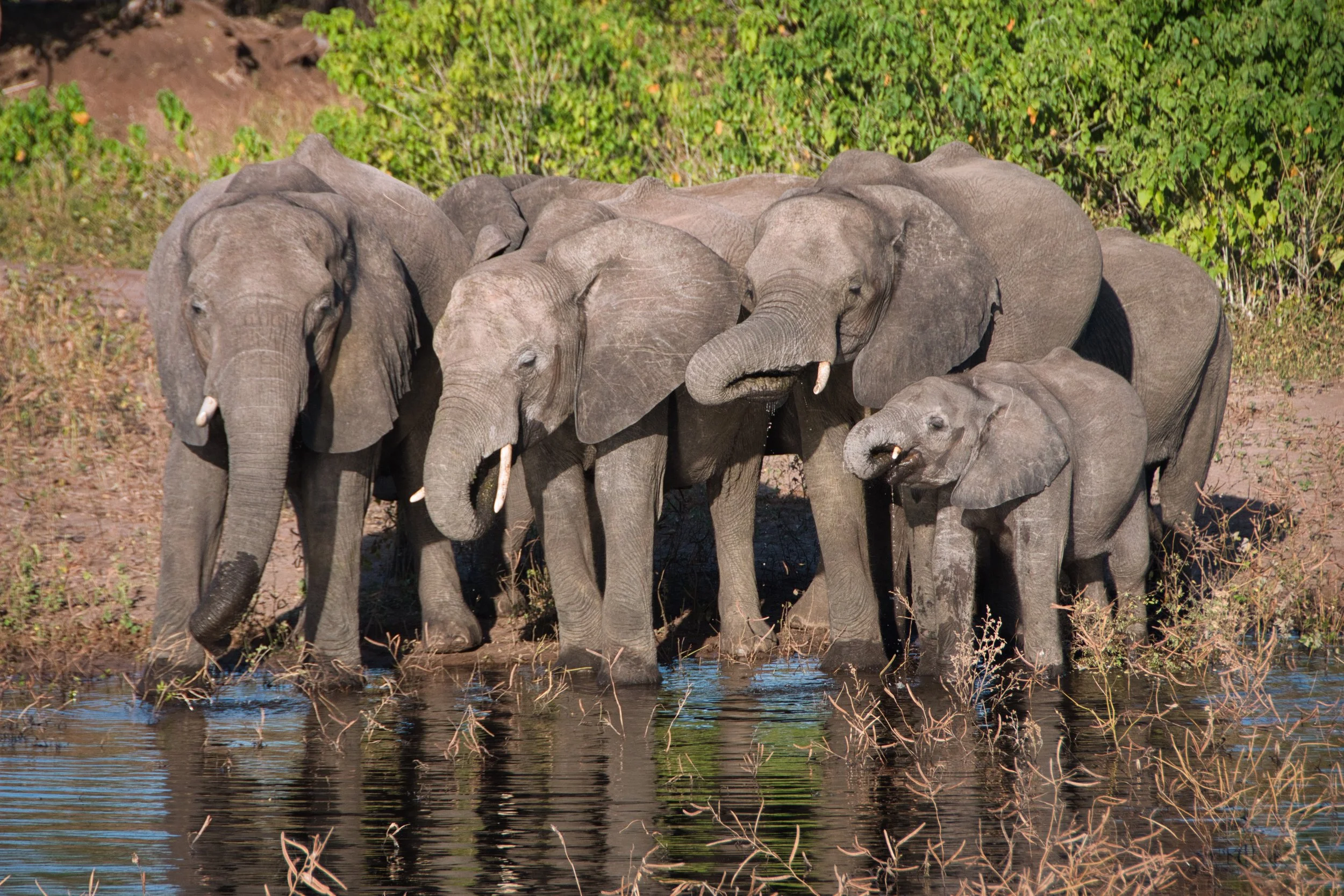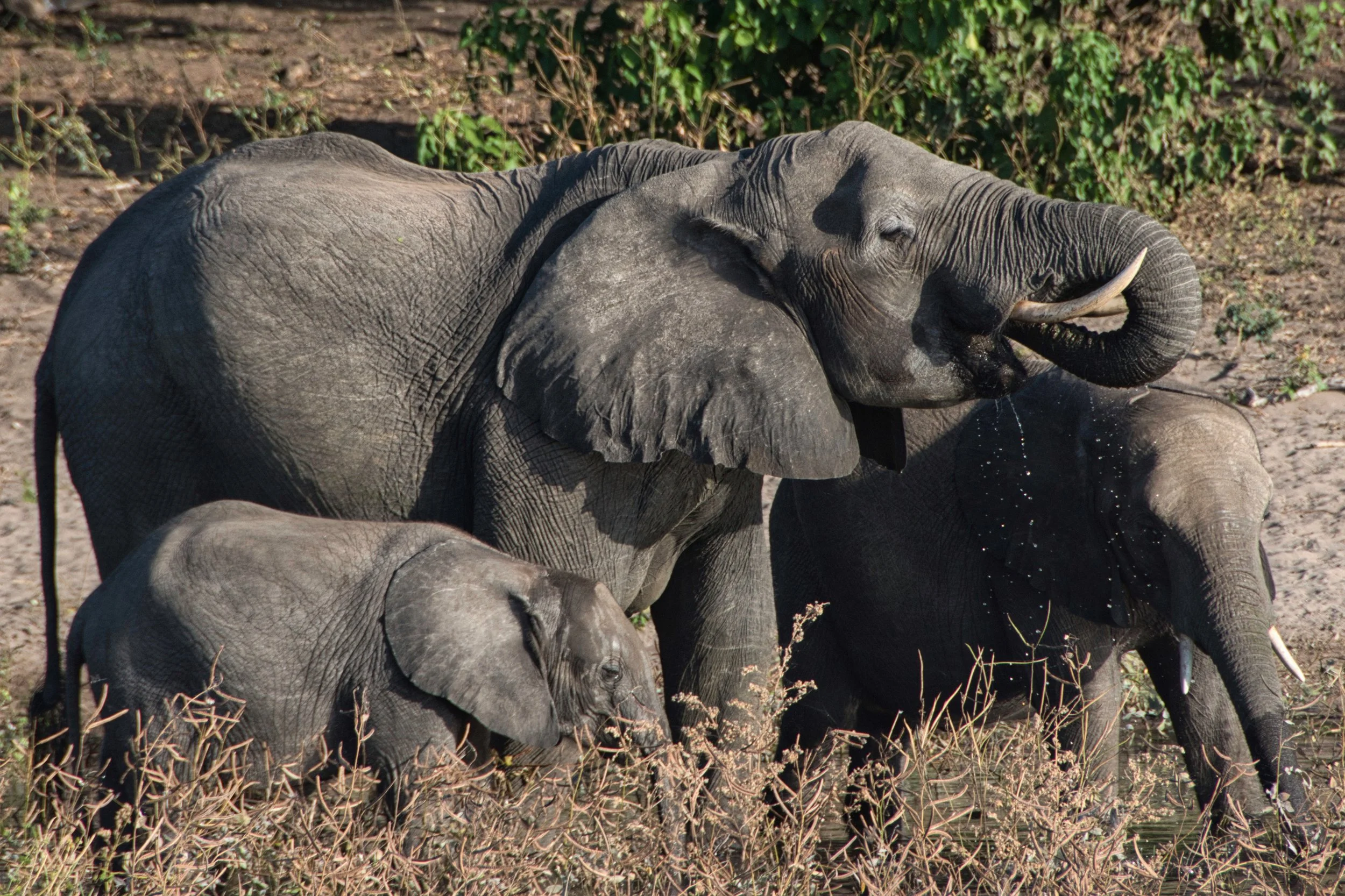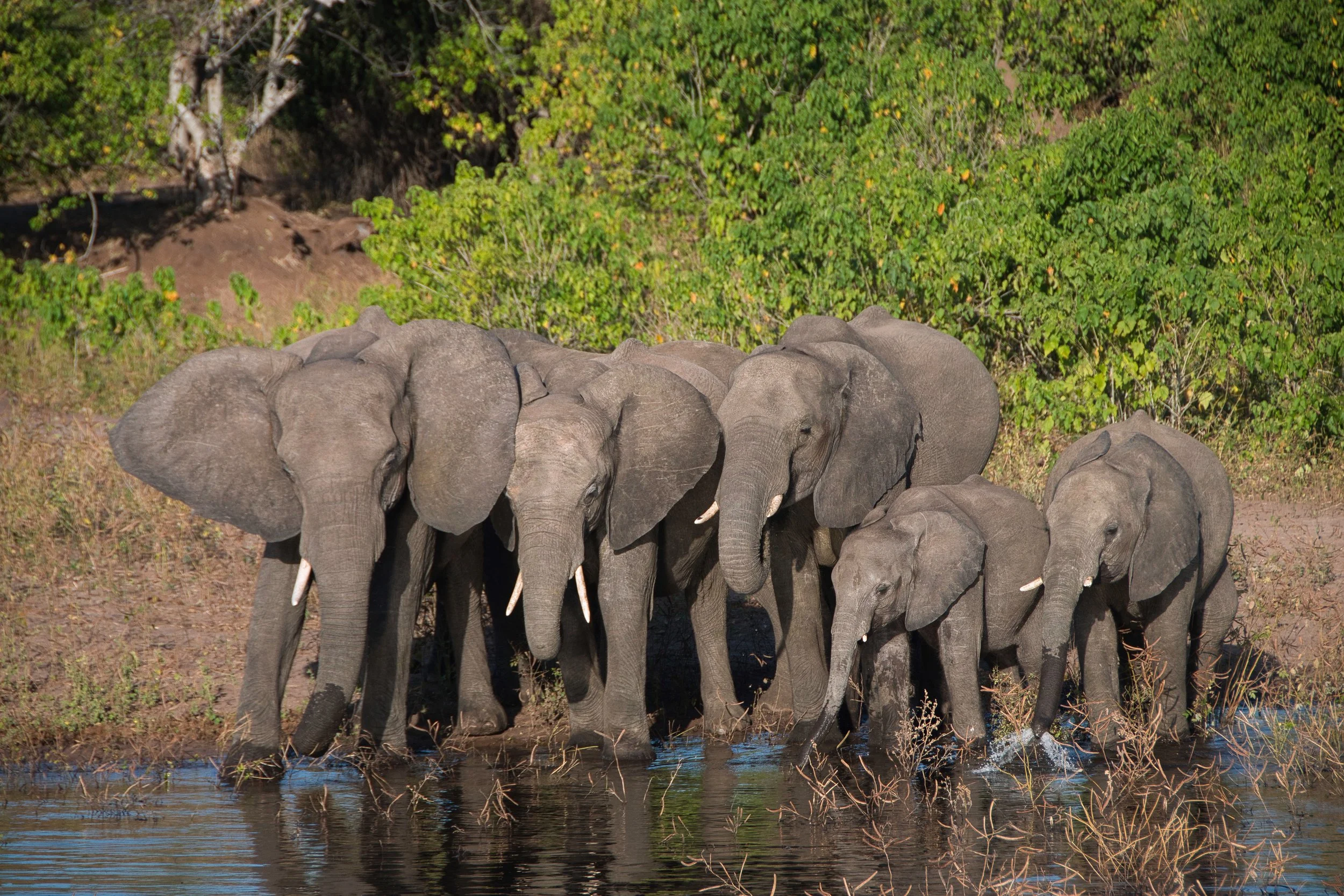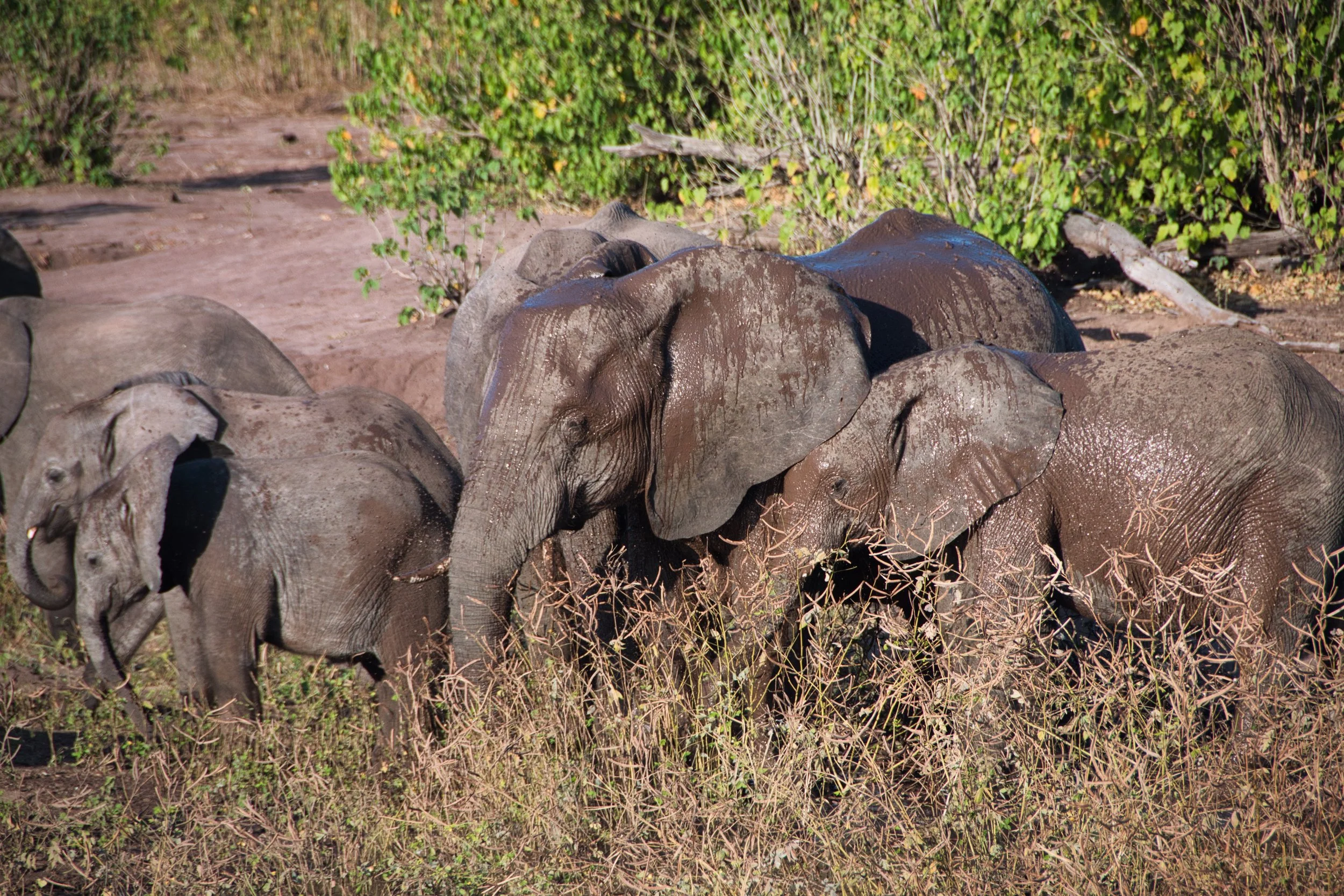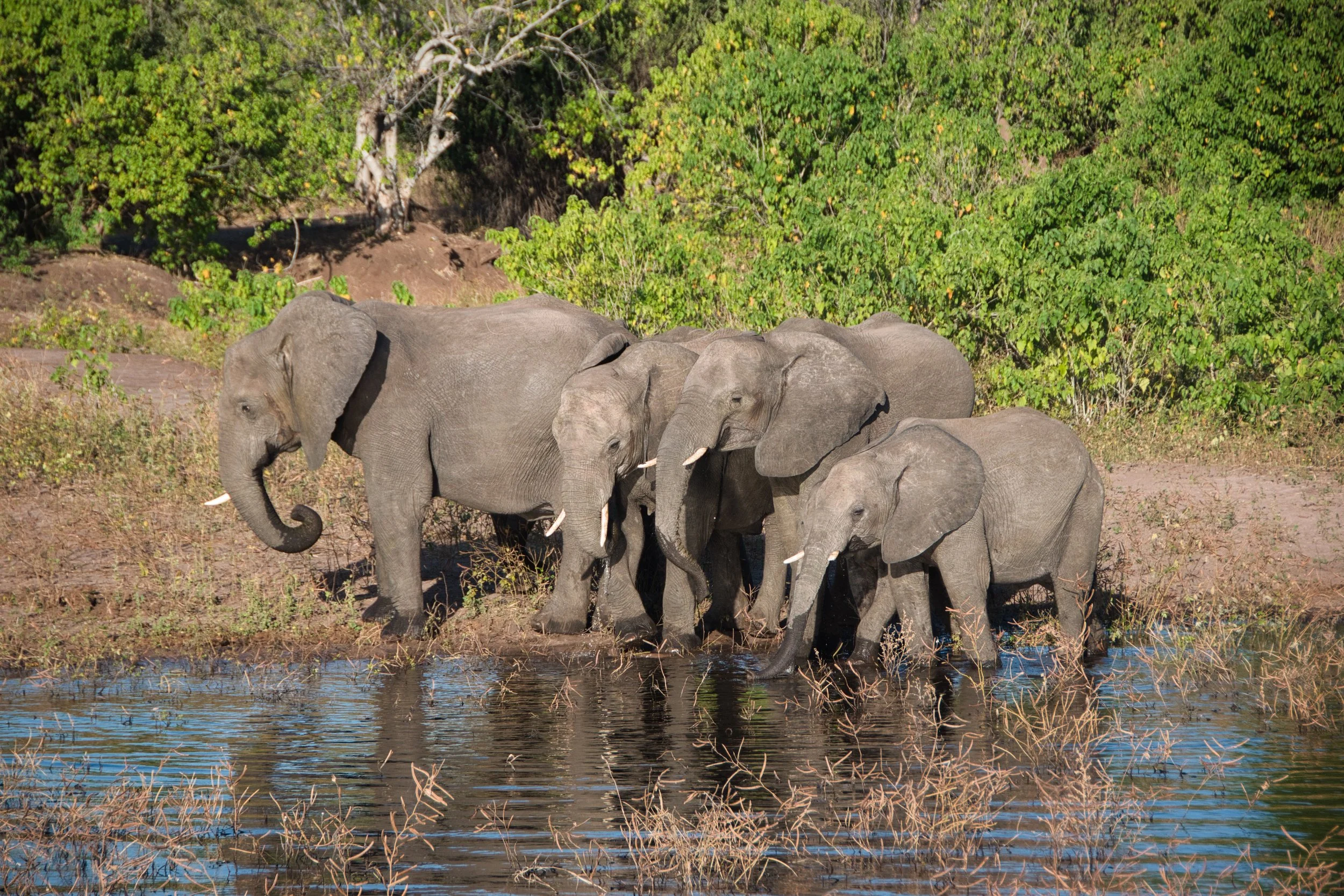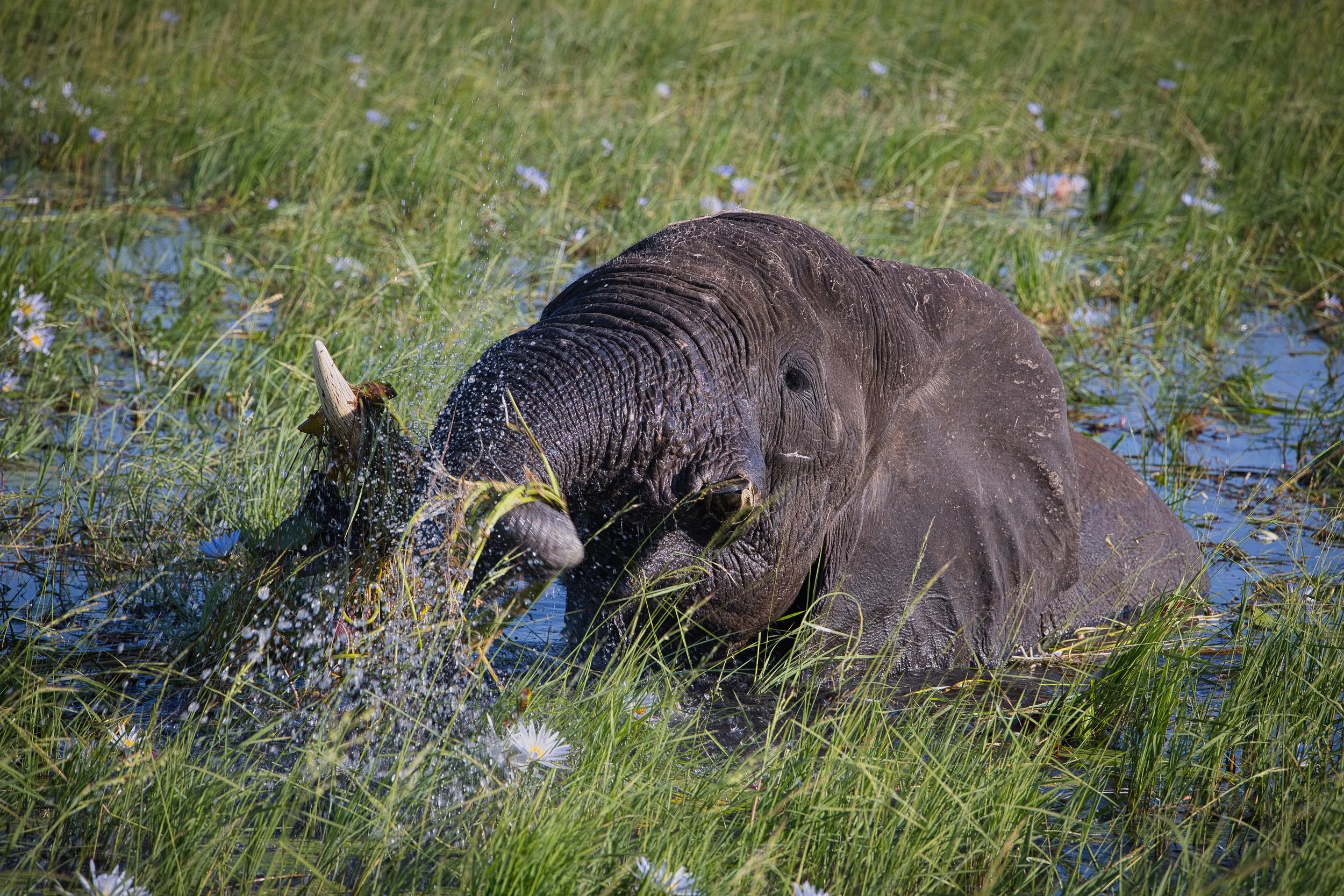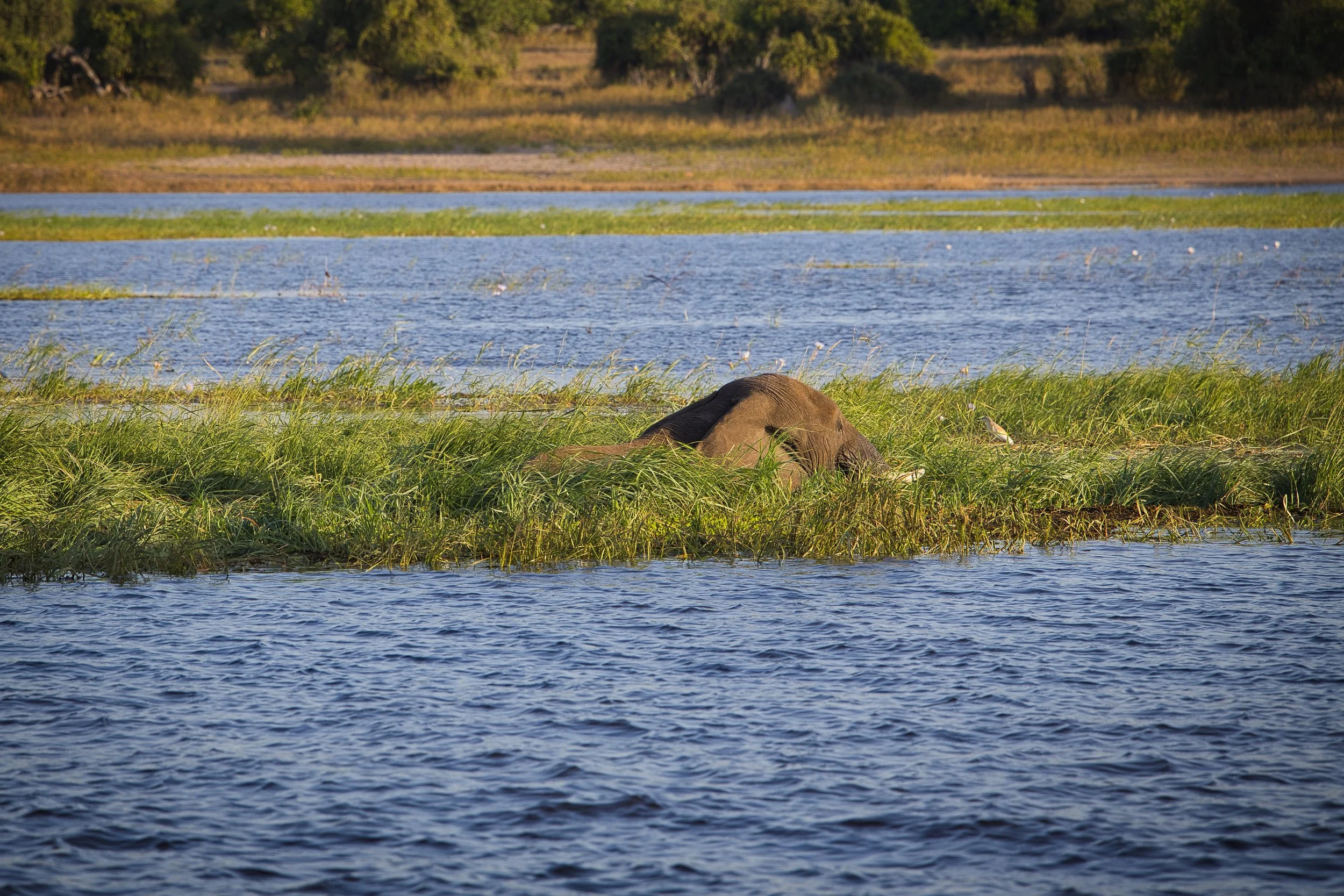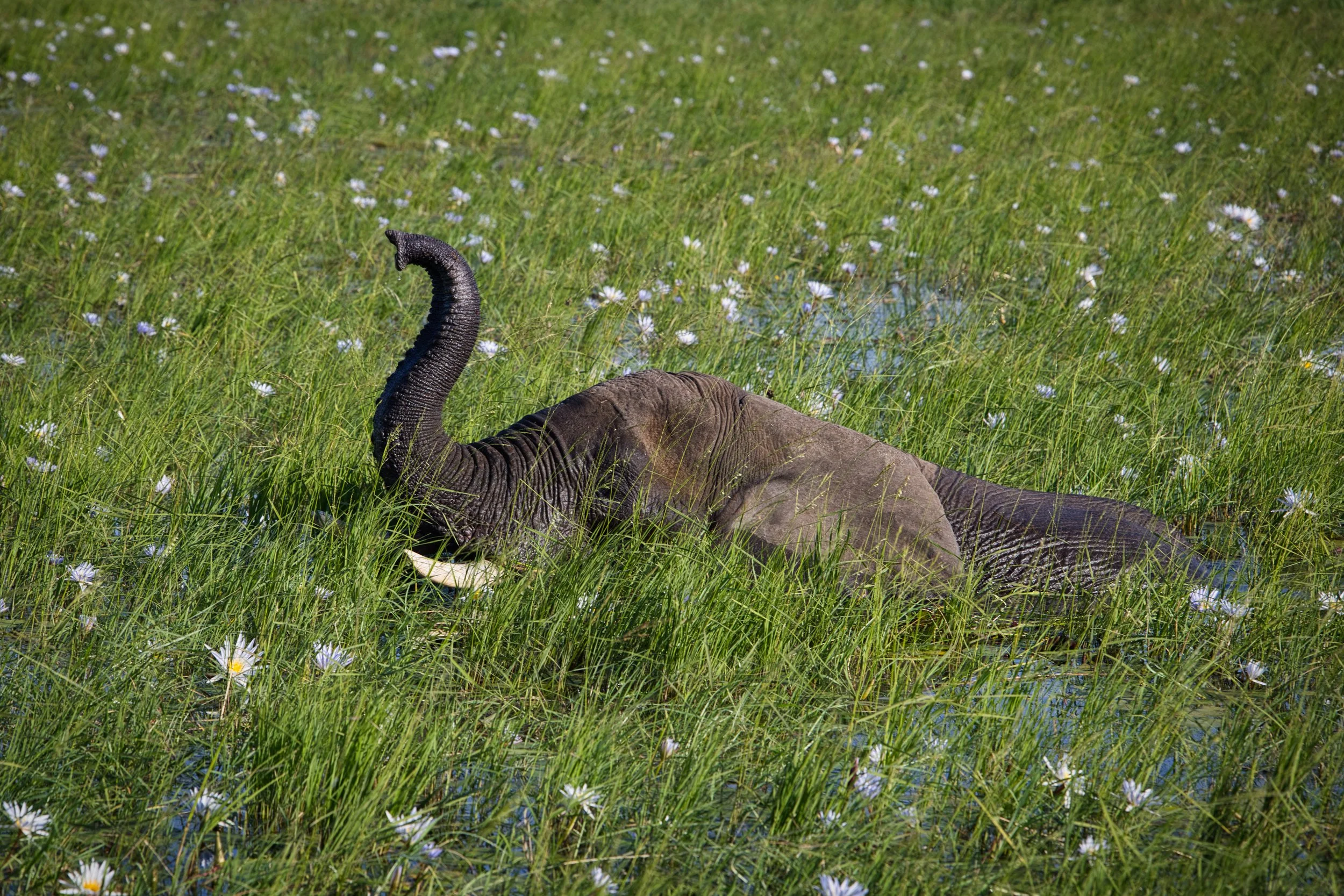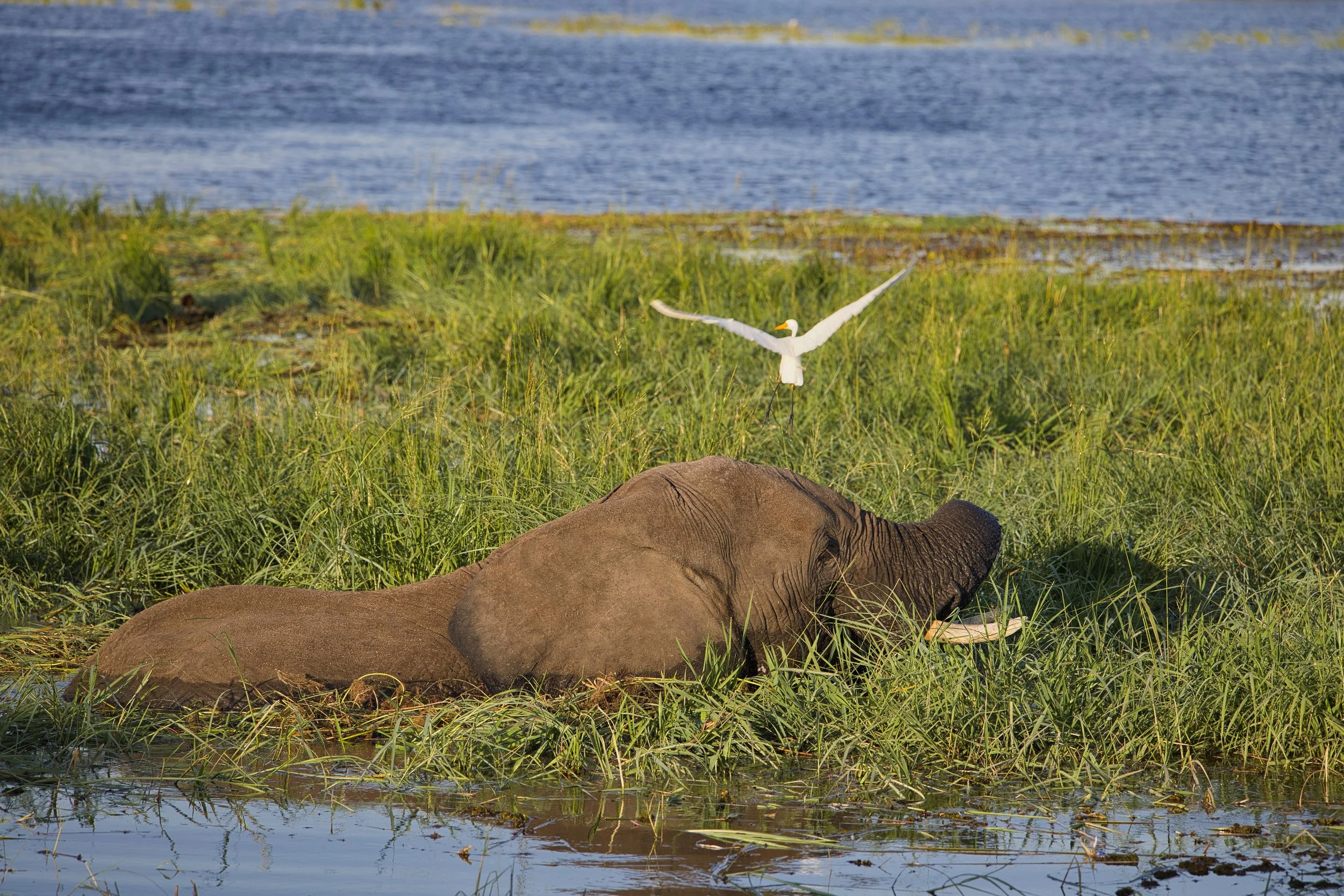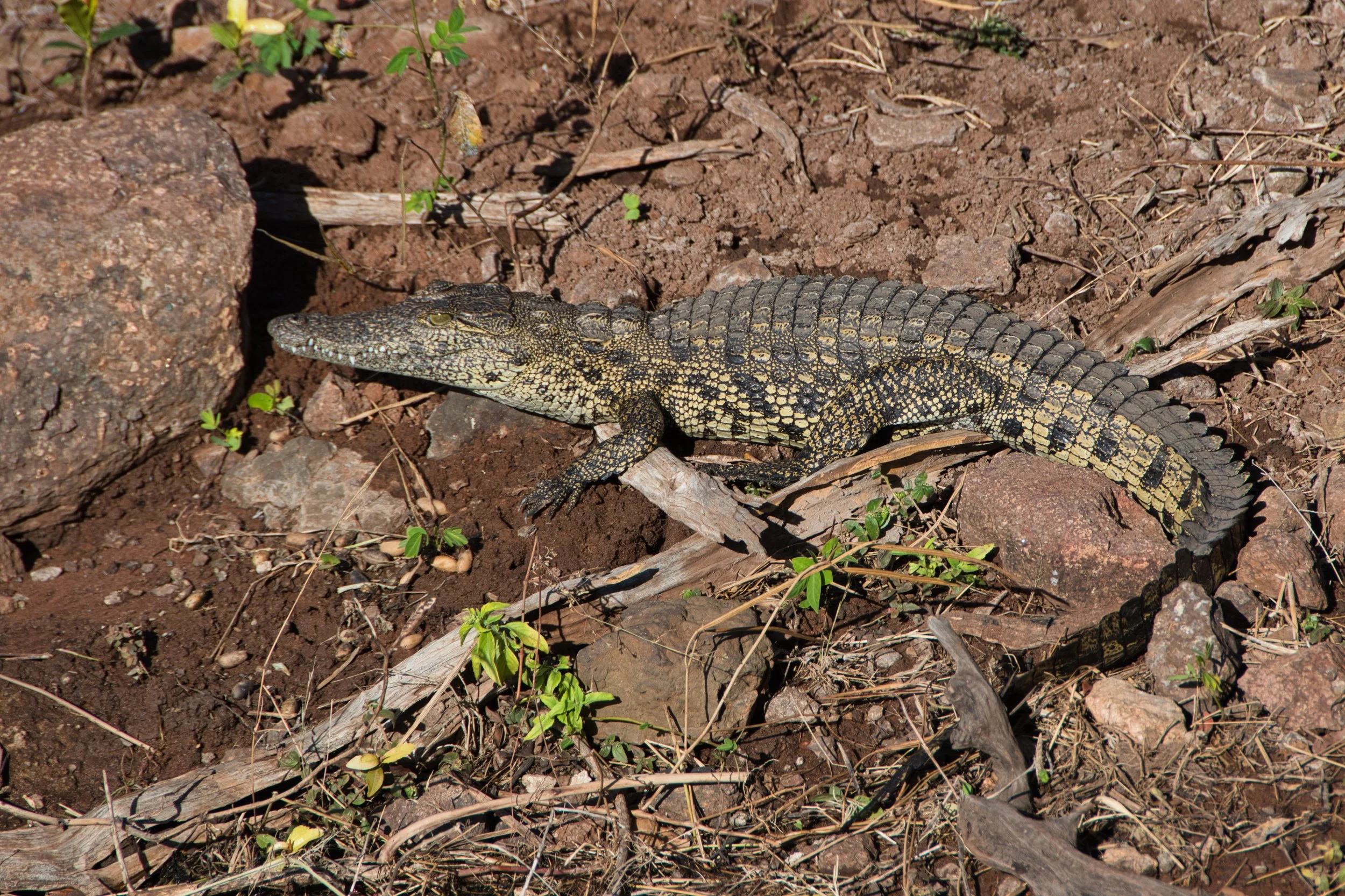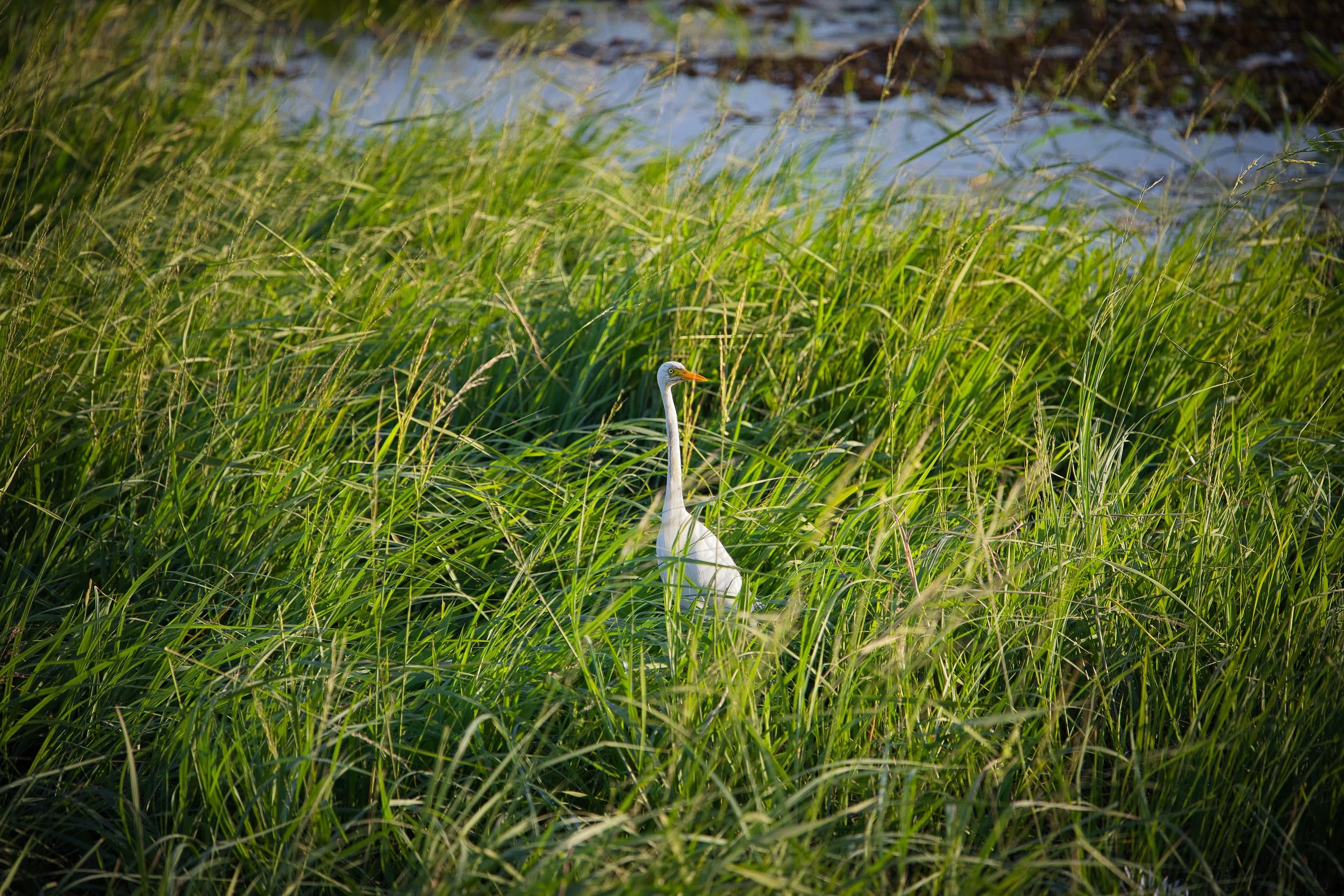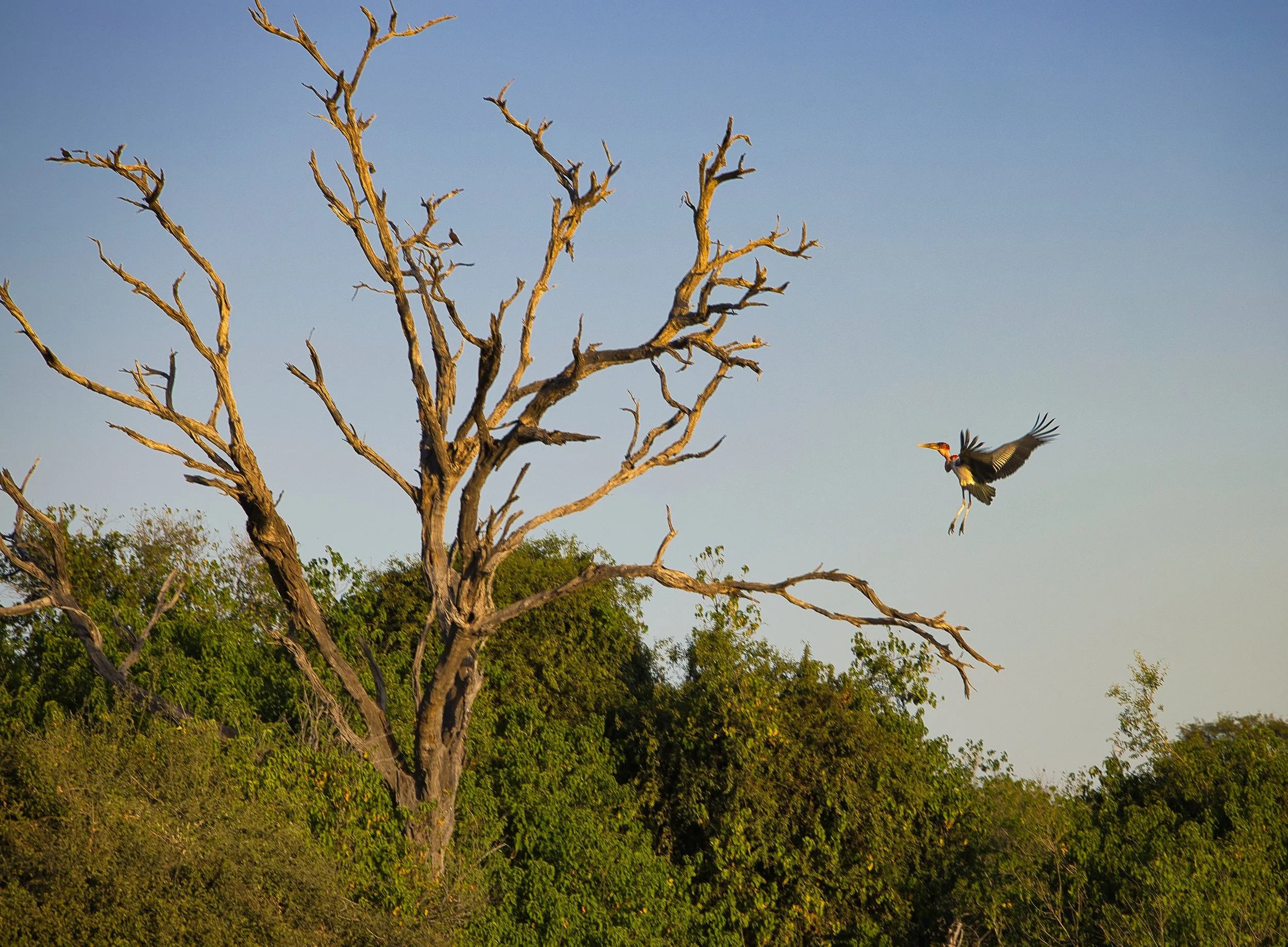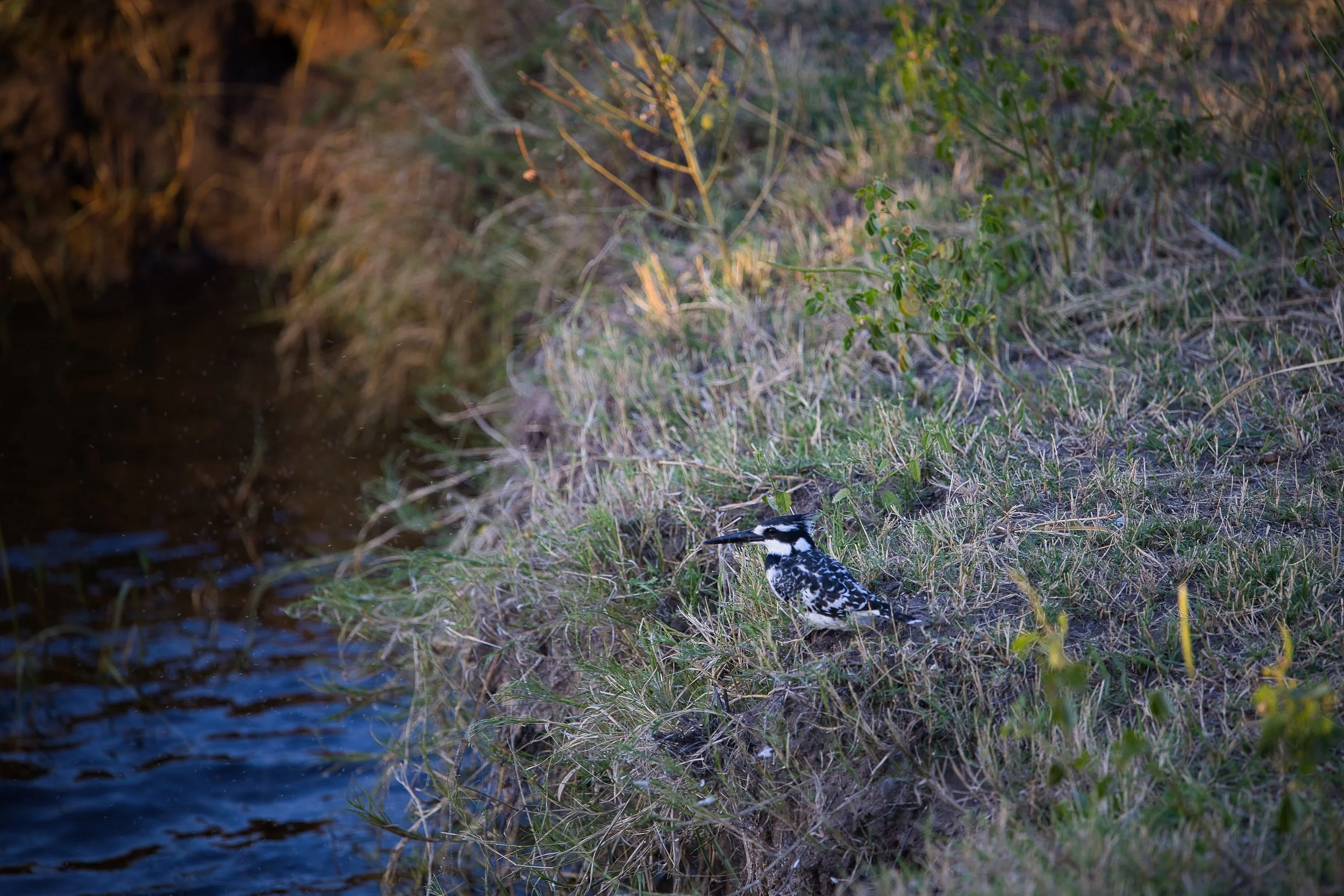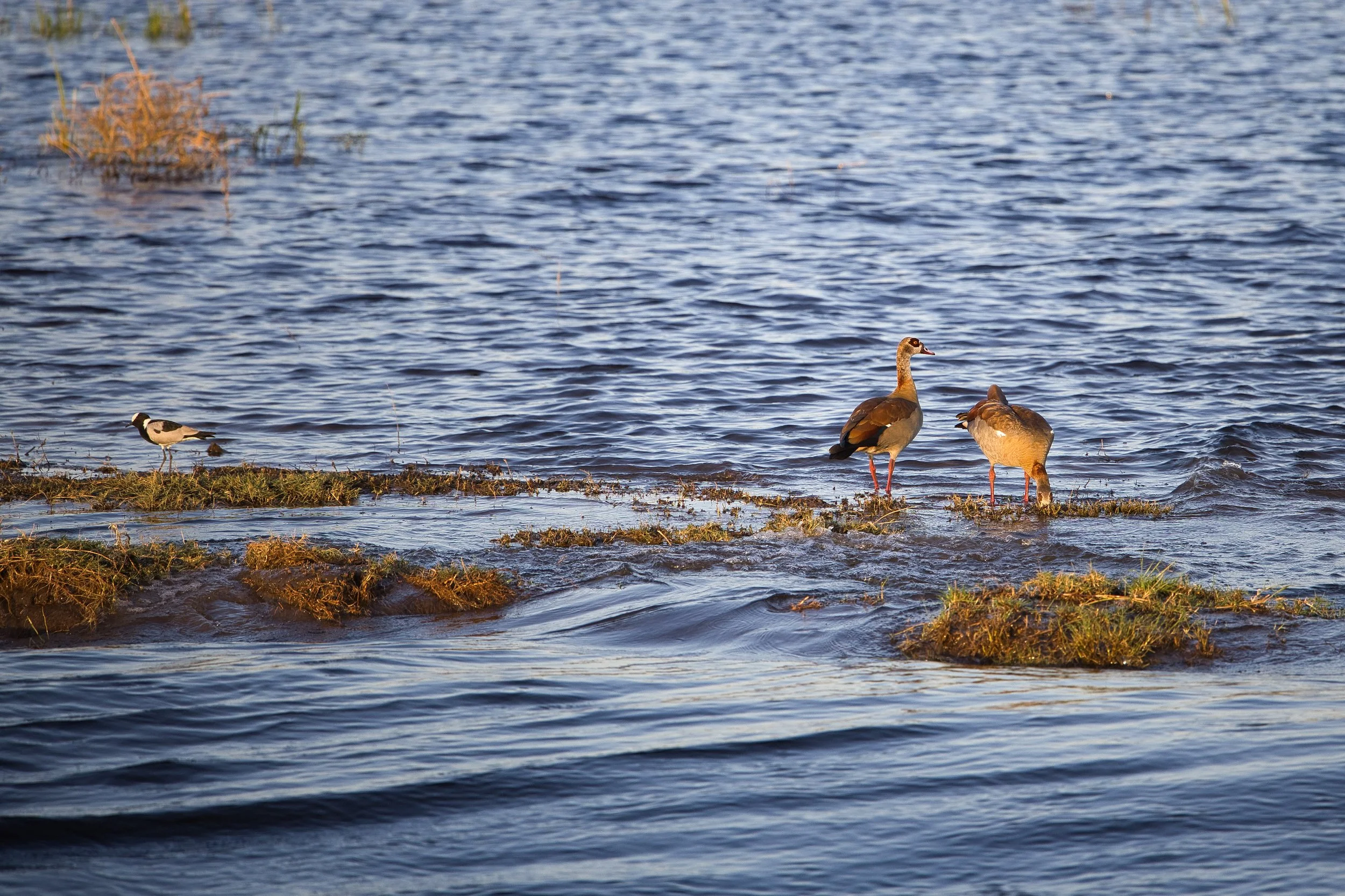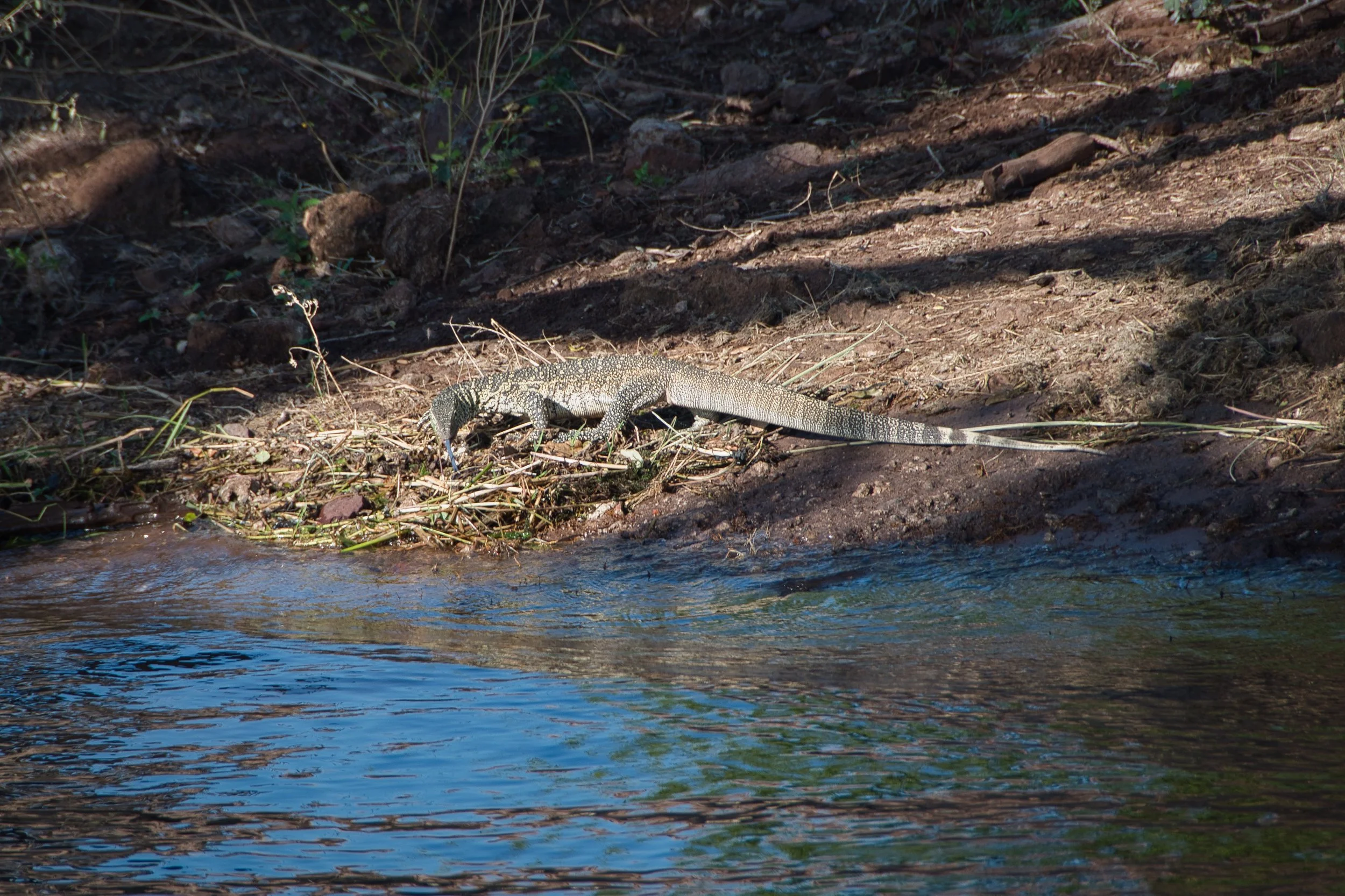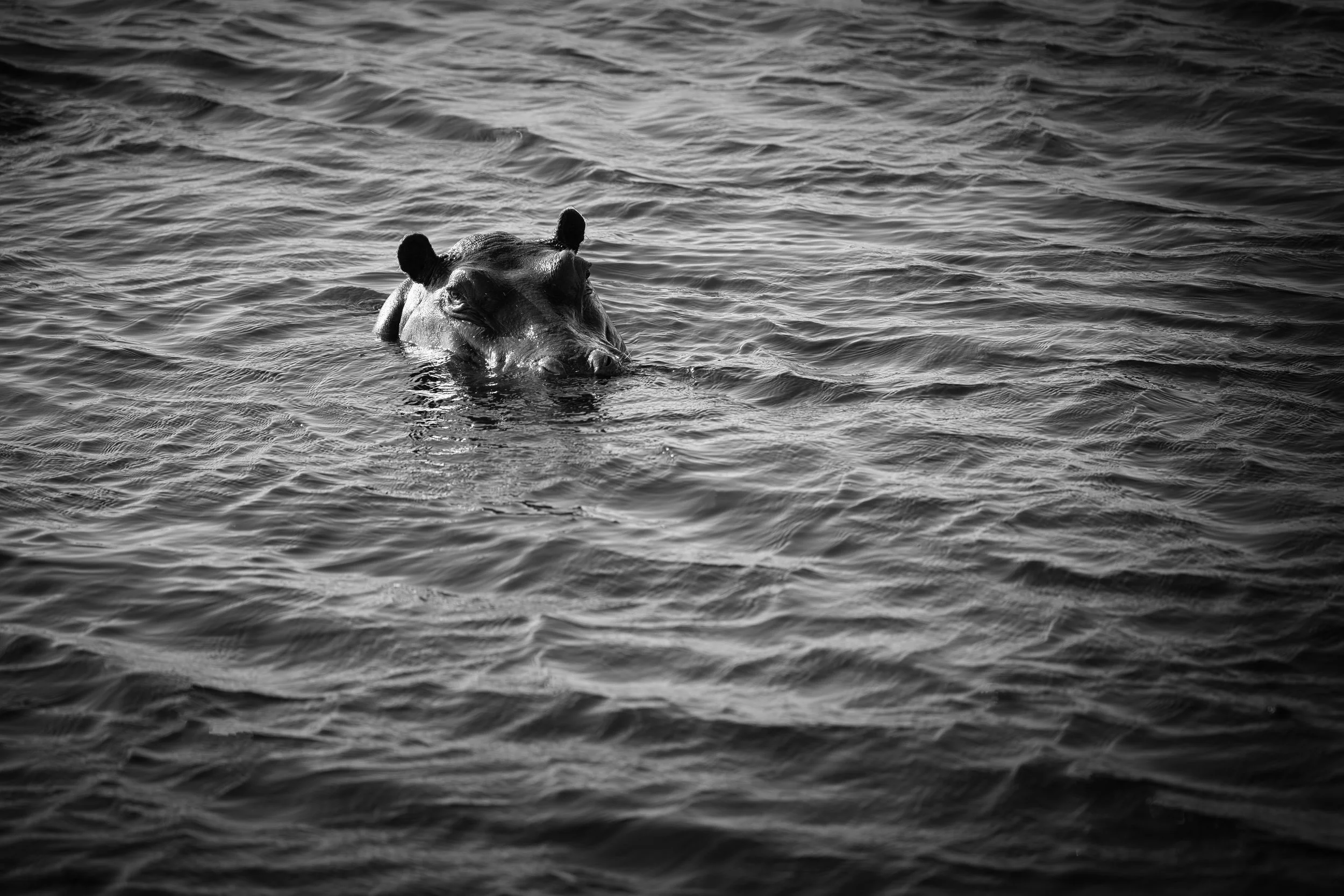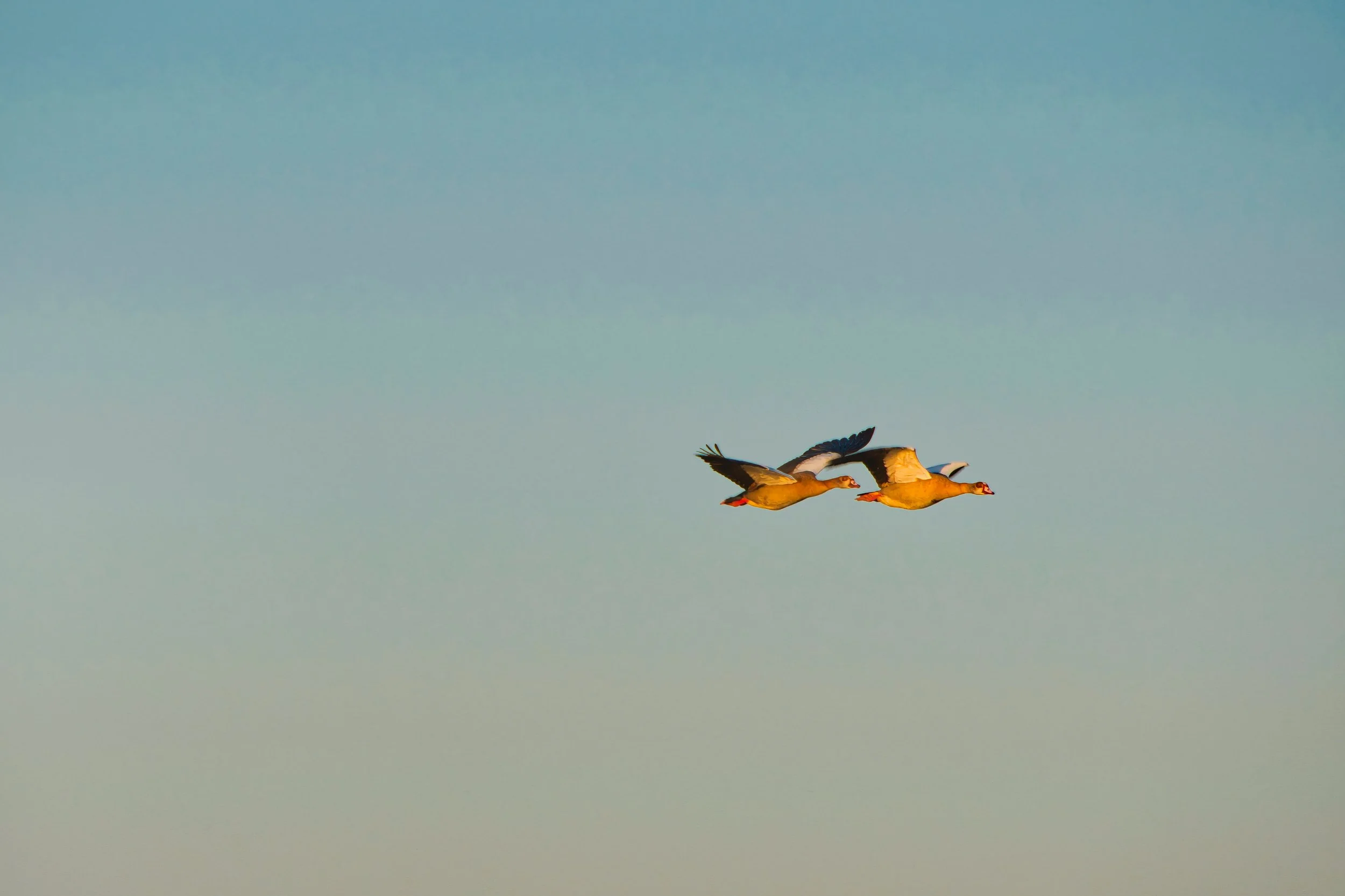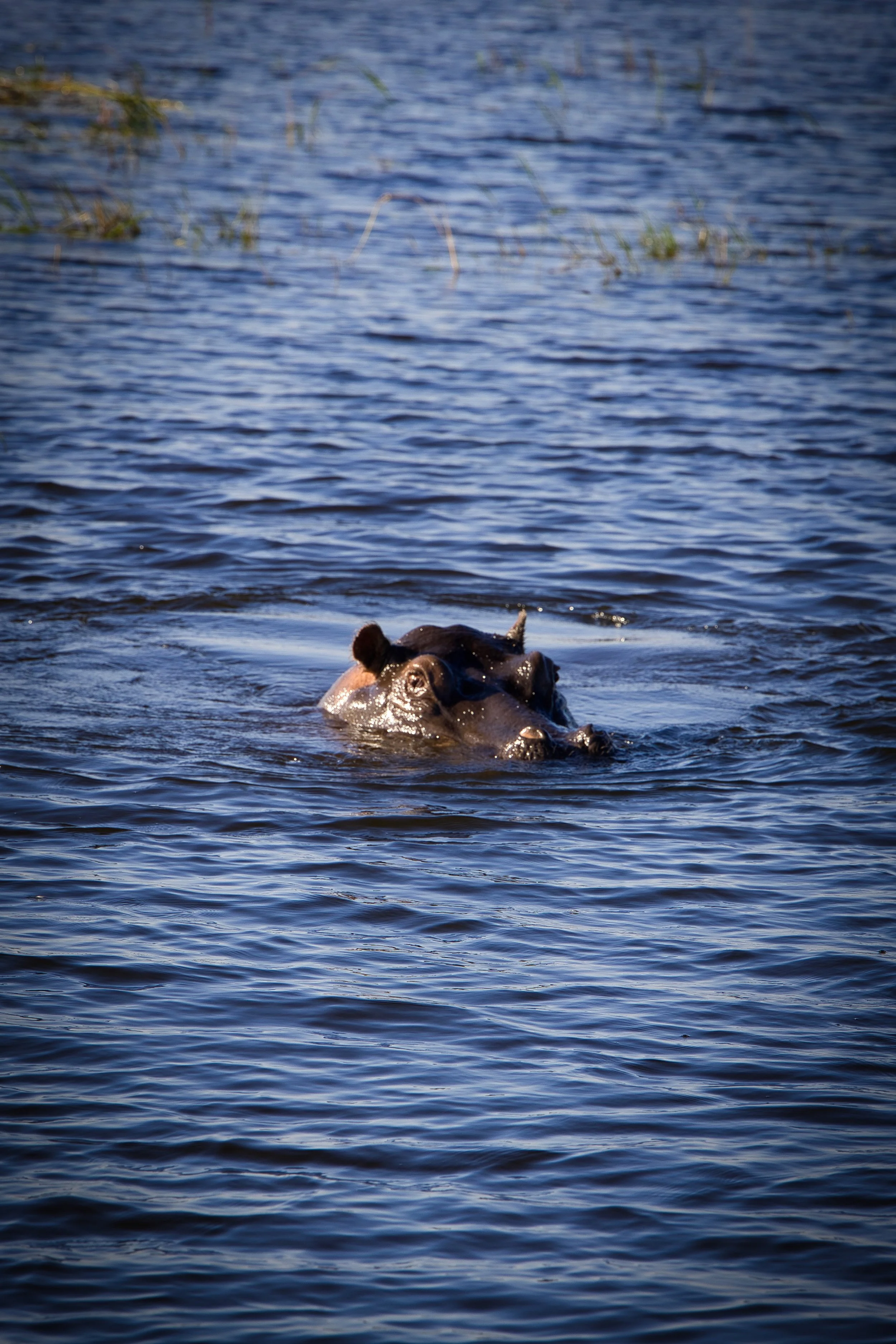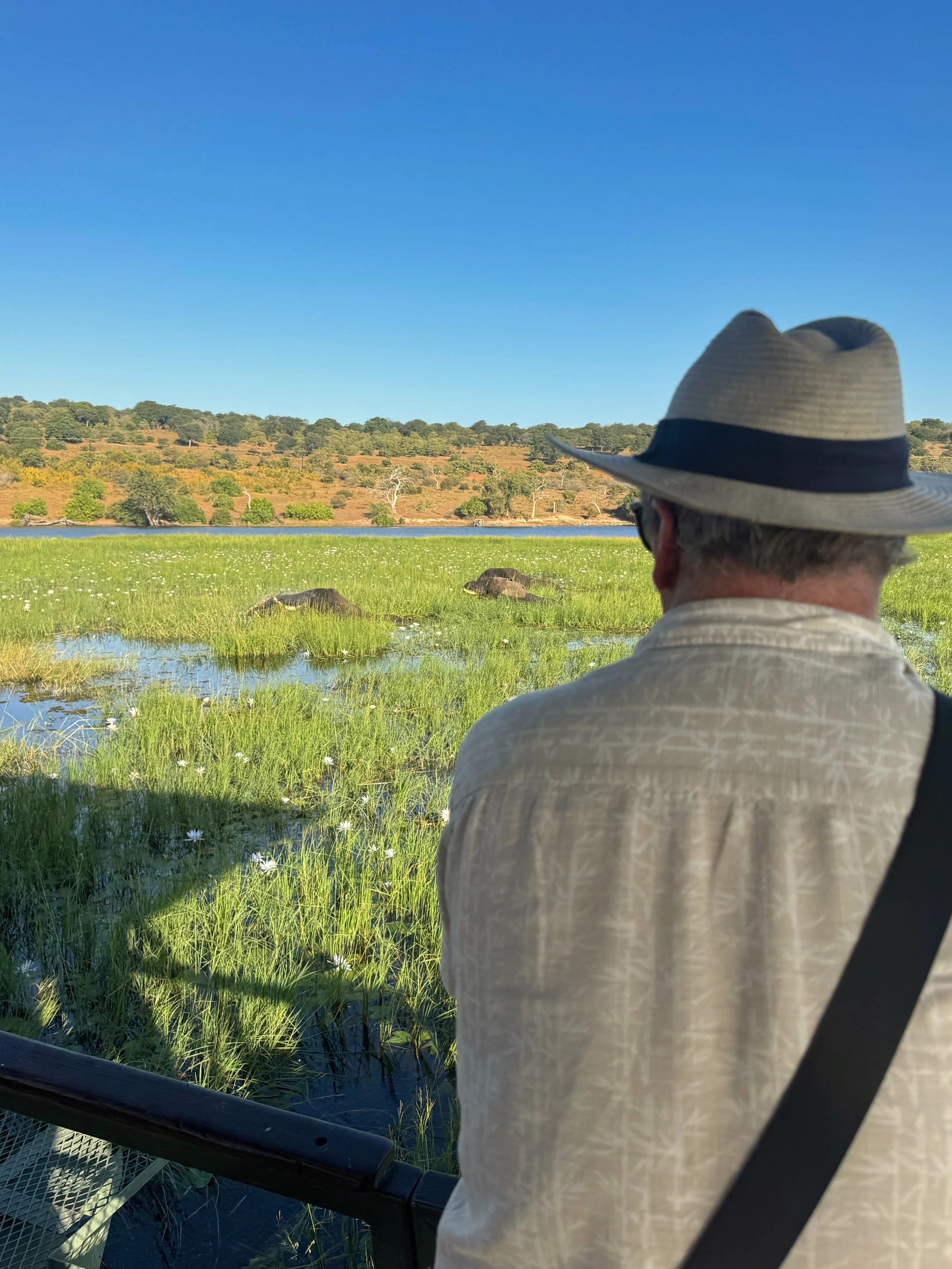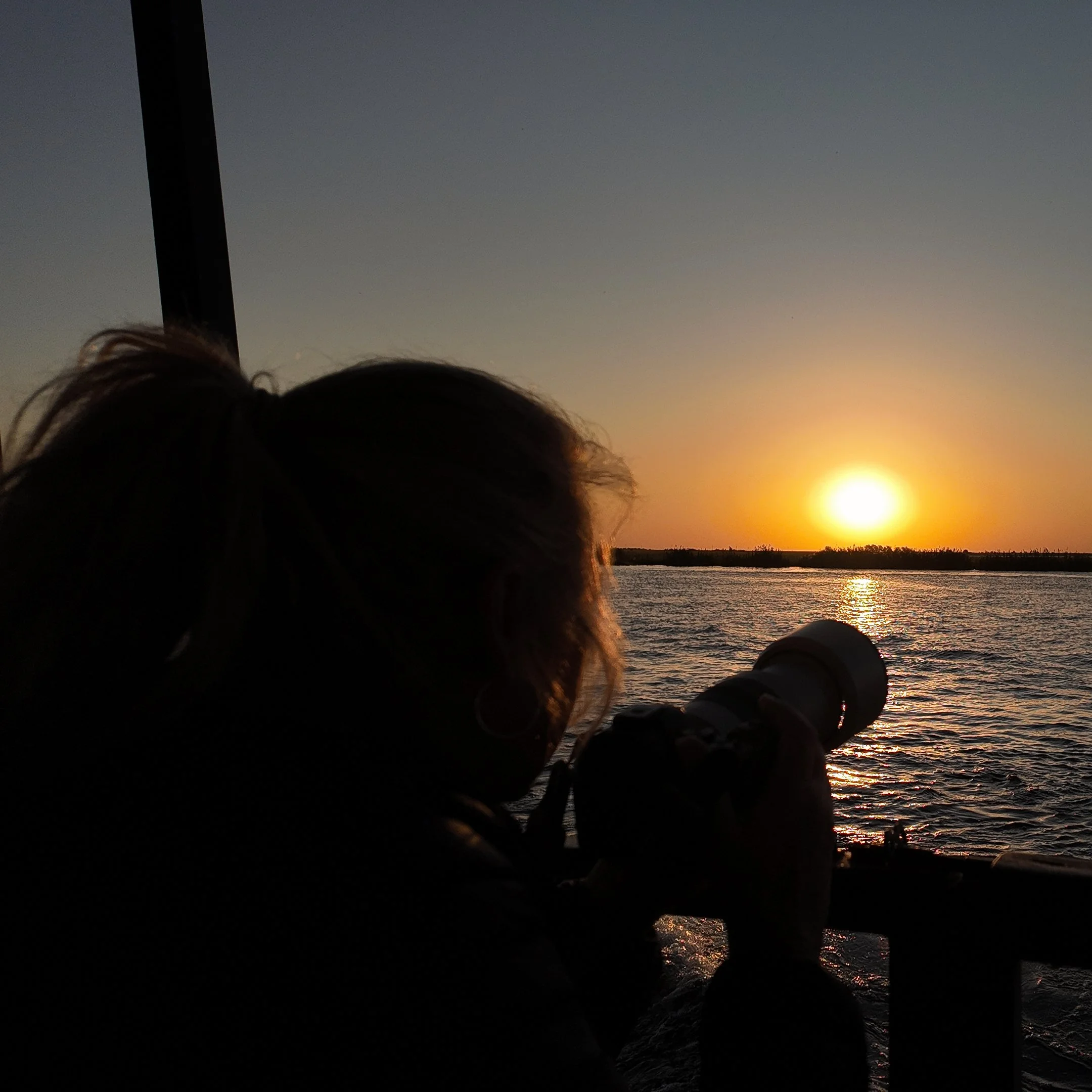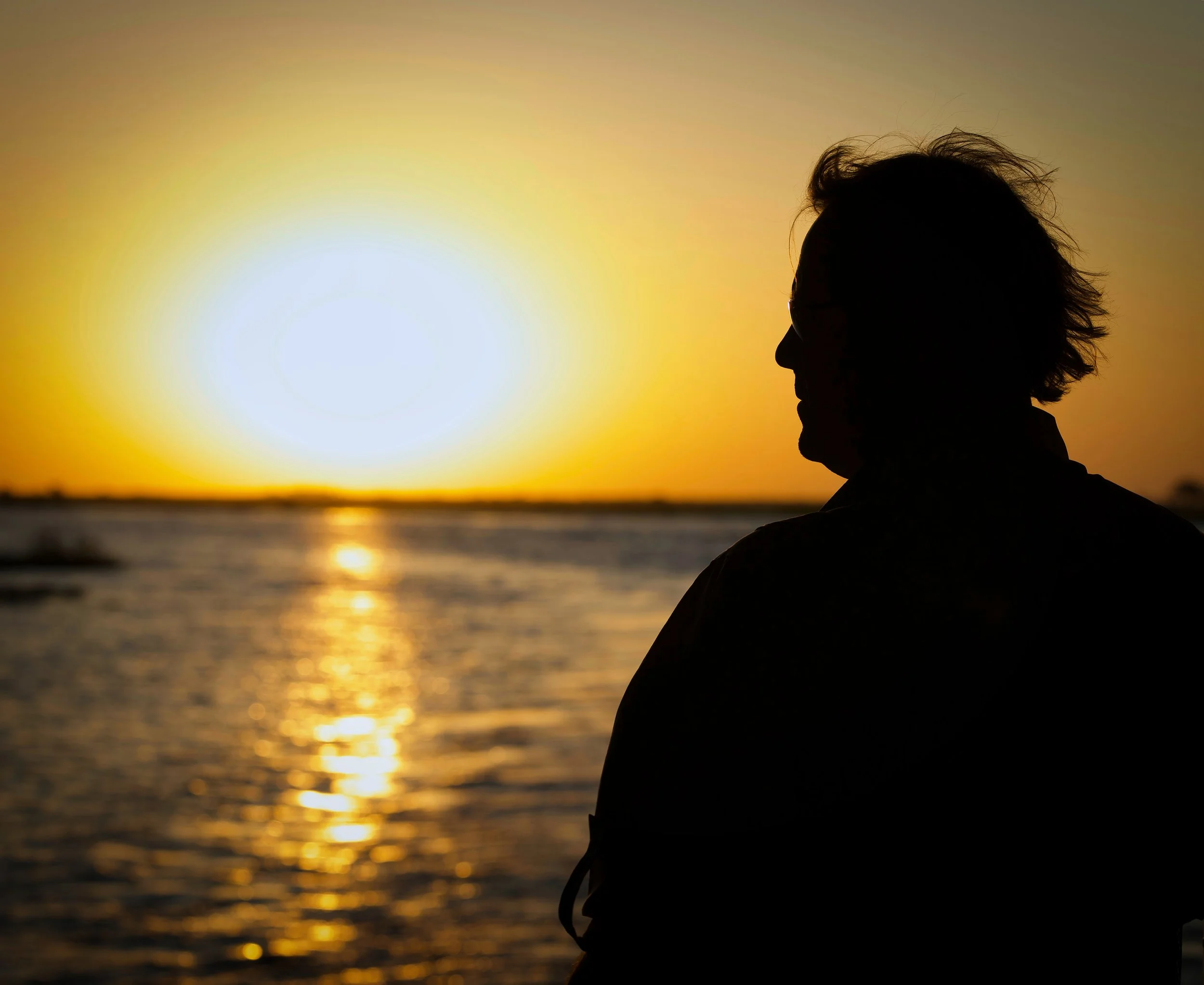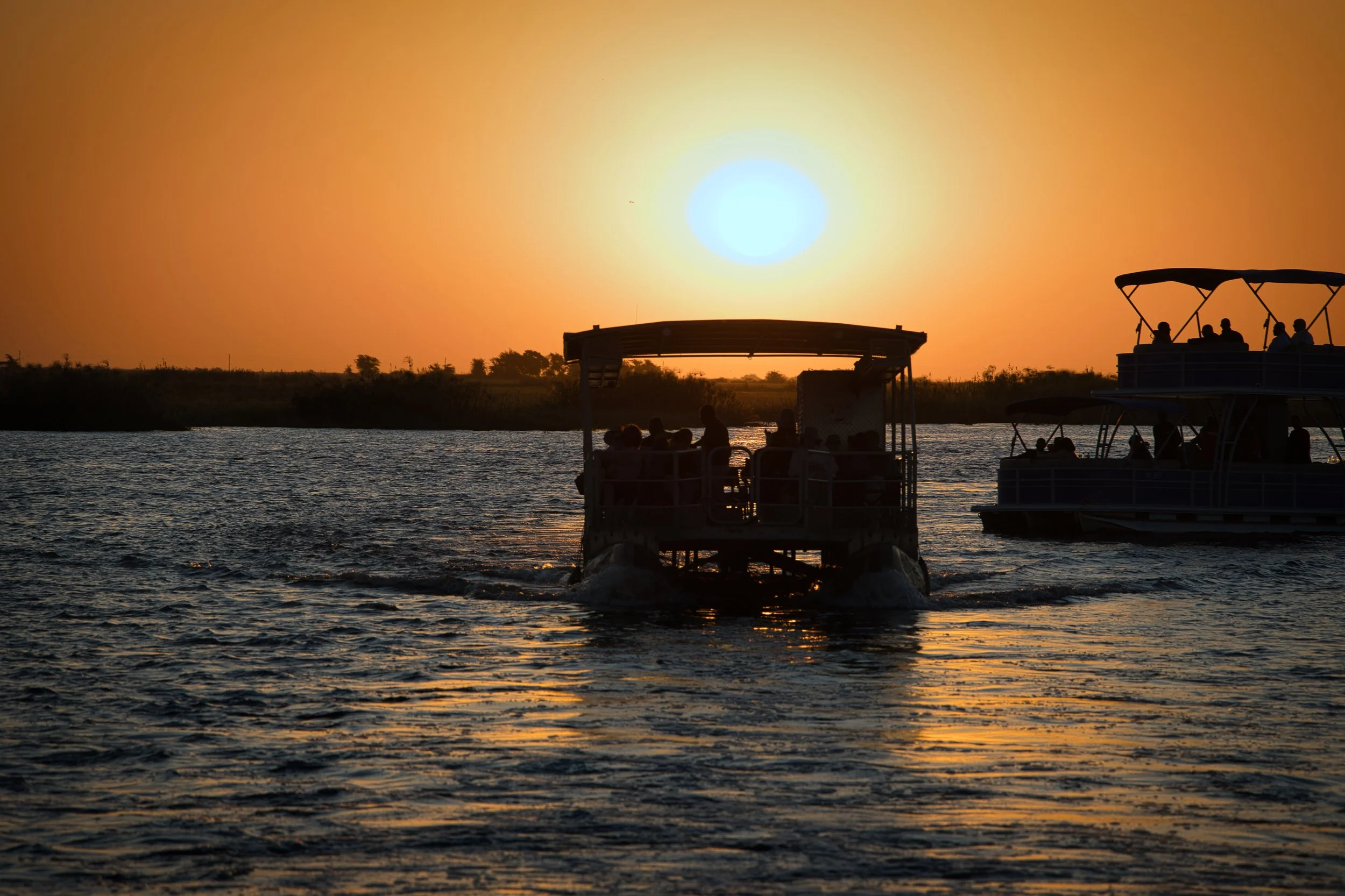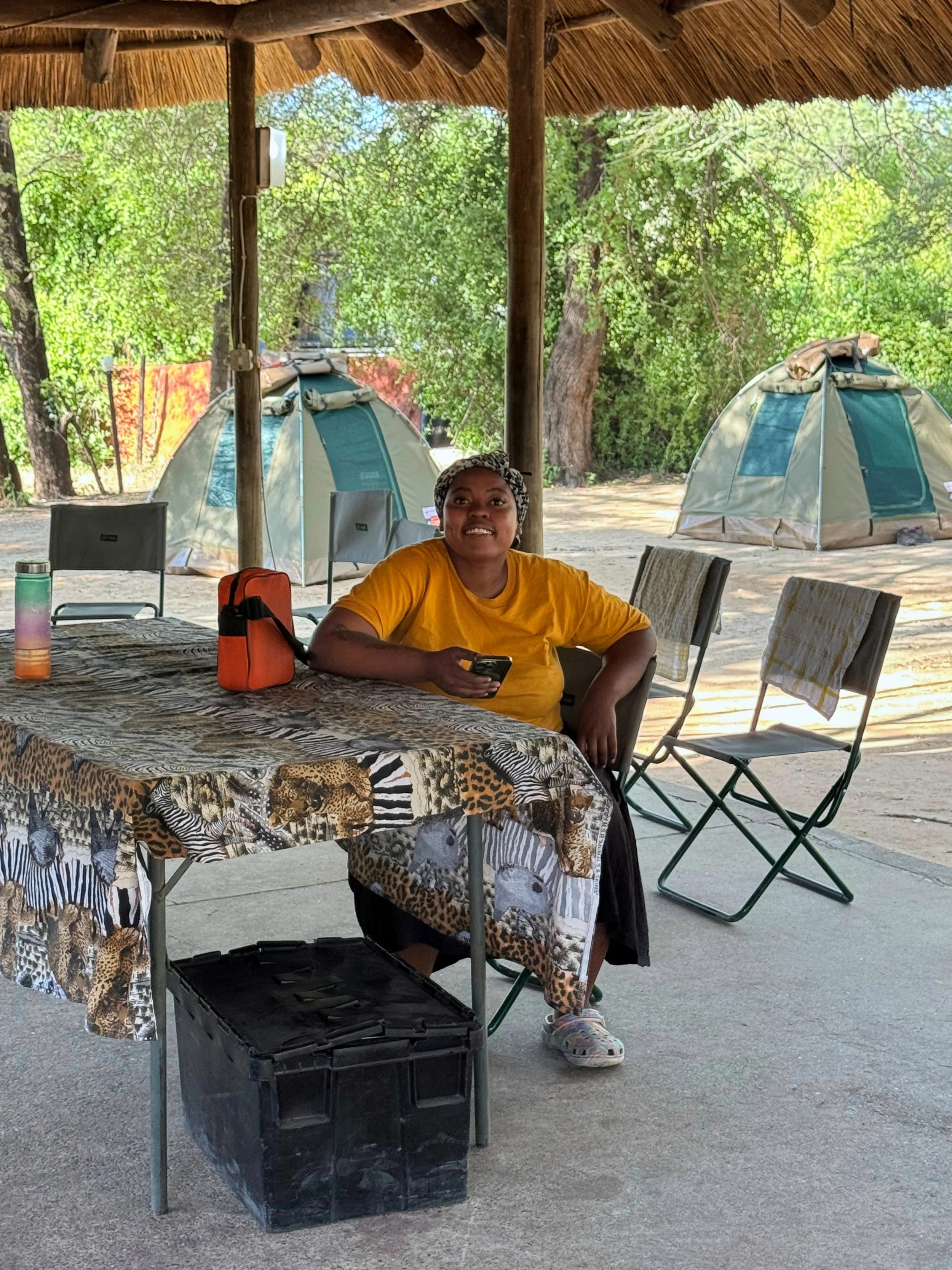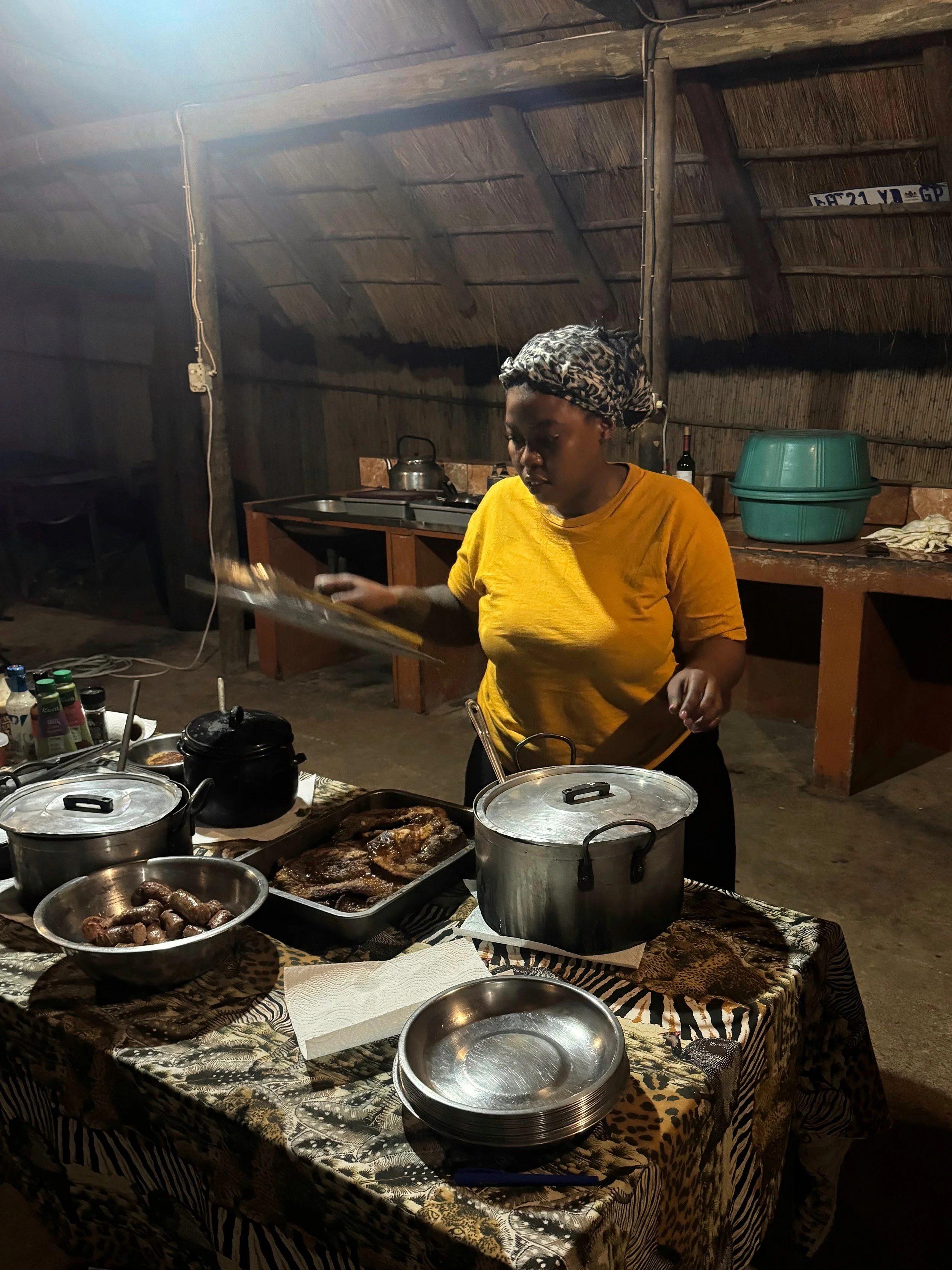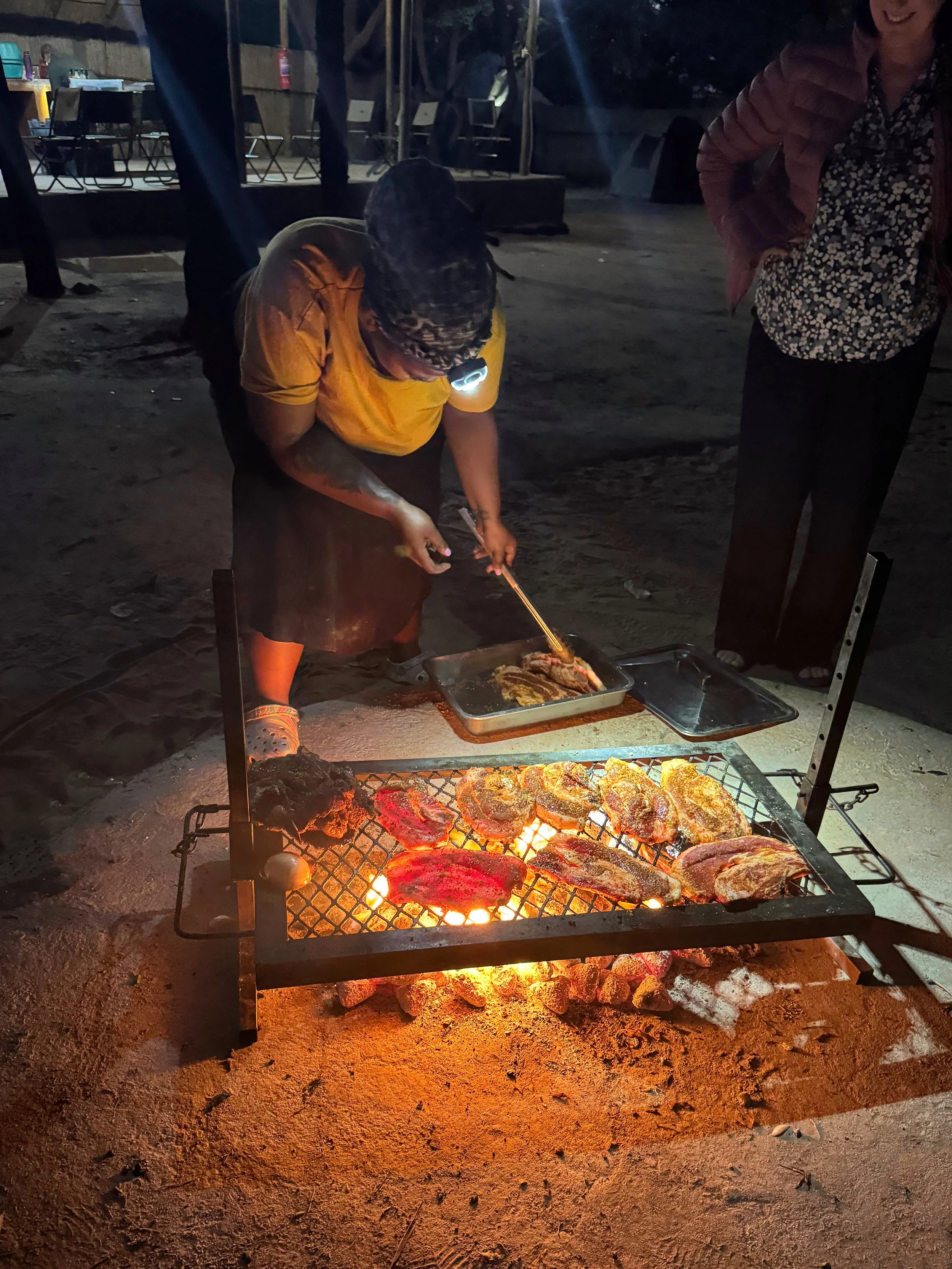Sunset IX - Chobe
For a handful of fellow travellers, their time in Africa was limited to this first 10 day leg to Victoria Falls and as such were determined to see as much as they could while they could. Last night we collectively agreed to a pre-dawn departure to Chobe National Park so they could squeeze in an optional afternoon safari. With similar distances to yesterdays travel we got a mini roadside safari of sorts with numerous sightings of baboons, giraffes, impala, zebra and even a leopard no-one managed to capture. However, by far the most bizarre was a fresh elephant carcass straddling the roads shoulder diligently pecked at by a group of vultures. The bitumen surrounds were covered in white paint, the contents of the truck striking the beast only days ago, rounding out a very peculiar, yet one would imagine common sight in outback Botswana.
Intrepid Tours Johannesburg to Victoria Falls, May 2025
We arrived into the township of Kasane right around midday and got the safarists out of camp on time while we put their tents up for them. With everything established the way we liked it, we checked out the pool, which like a 12 year marriage had clearly been neglected of late, so it was lunch at Thebe Restaurant, the onsite eatery at our digs, the Thebe River Safari Lodge. Some good old fashioned greasy burgers were available which as evidenced below, Ricki added to her collection inhaled thus far on tour while Antony and Fatpap split a simply brilliant crocodile pizza. A few drinks under the very warm sun made for a perfect afternoon before the big show later in the day.
As was now our custom, transport arrived to take us down to the river where we boarded a registrable, if not motley looking punt for our planned river cruise. Having safely loaded the esky and appropriately arranged the deck chairs, we pushed back from the dock with the outboard donks churring up the murky water beneath. Quickly ripping the lids from our chosen drinks we began the westward journey upstream splitting the Chobe River with Botswana to our left and Namibia to our right. Only 4 kilometres downstream at the confluence of the Zambezi and Chobe Rivers was the "African Four Corners" where the borders of Zambia, Zimbabwe, Botswana, and Namibia all meet creating the only international quadripoint in the world.
As an itinerary highlight the Chobe River cruise promised grazing elephants and hippos, and birdlife coming out the wazoo. The Chobe National Park was Botswana's first and most biologically diverse and widely known for its large elephant population estimated to be around 50,000. The original inhabitants of the area were the San bushmen, nomadic hunter-gatherers constantly moving from place to place in search of food. At the beginning of the 20th century the region now known as Botswana was divided into different land tenure systems. At that time a major part of the park's area was classified as crown land and the idea of a national park protecting local wildlife and to promote tourism was first proposed in 1931. 24,000 km2 around the Chobe district were officially pronounced a non-hunting area that expanded to 31,600 km2 two years later. In 1968 the reserve was declared a national park.
The elephants living here are Kalahari elephants, the largest in herd size of all known populations and characterised by rather brittle ivory and short tusks due to a calcium deficiency in the soil. And they were plentiful. Along the banks families sauntered to the waters edge to drink and spray mud on their hides to protect from the sun and help counter any ticks while carefully navigating the lazy crocodiles slothing around with one eye open for a potential meal straying too close to their monstrous jaws. It was a real life National Geographic episode.
On the river proper dozens more elephants stood waist deep in the grasses feeding on the seemingly endless source. Wrapping their trunks around clumps of grass and ripping them from the submerged ground, they thrashed it against the water to remove all dirt and other impurities. They were oblivious to us and the slew of other boats pushing in for a closer look and just went about their daily foraging. Hippos too swam indiscriminately just below the surface, popping their snouts and ears above the surface every so often to receive paparazzi style clicks from the scores of cameras waiting for such movement. With their daylight hours spent entirely in the water, that would pretty much be it for hippopotamus views until sundown. The birdlife though was plentiful with even a pair of those ceramic ducks found on most living-room walls in the late 1970’s coming to life and flying across a void of blue sky.
The cruise naturally ended with a spectacular sunset which some of us never tired of photographing and judging by this website, never tire of posting. Now, if this writer could digress slightly to offer some social commentary on the whole experience, it would be as judgment of the sheer number of boats and tourists on the river and its banks during our visit. Fulling understanding the importance of tourism, both as a revenue source and in spreading the ecological word, its seems counter productive to have, one would guess, hundreds of boats clambering for a closer view, churning up the water in the process, and disturbing the animals by getting all up in their grill. It mayhaps be time to limited daily number as they have done successfully in numerous other sanctuaries around the world. Now, that is said while sanctimoniously sitting on the very deck of one of those boats but is an honest observation creating some conflict between wildlife and tourism that would be further pondered many times on our onward journey.
Back at camp Nola flamed up the fire before covering it with freshly butchered African steaks. My God. The smoking flame grilled ribeyes were carnivore heaven with the blokes particularly quieter than usual during dinner. There would be another safari well before first light tomorrow so the meeker folk retired early while those with little self control continued drinking, digesting Nola’s wildebeest and meaninglessly chatting as had become the nightly custom.
